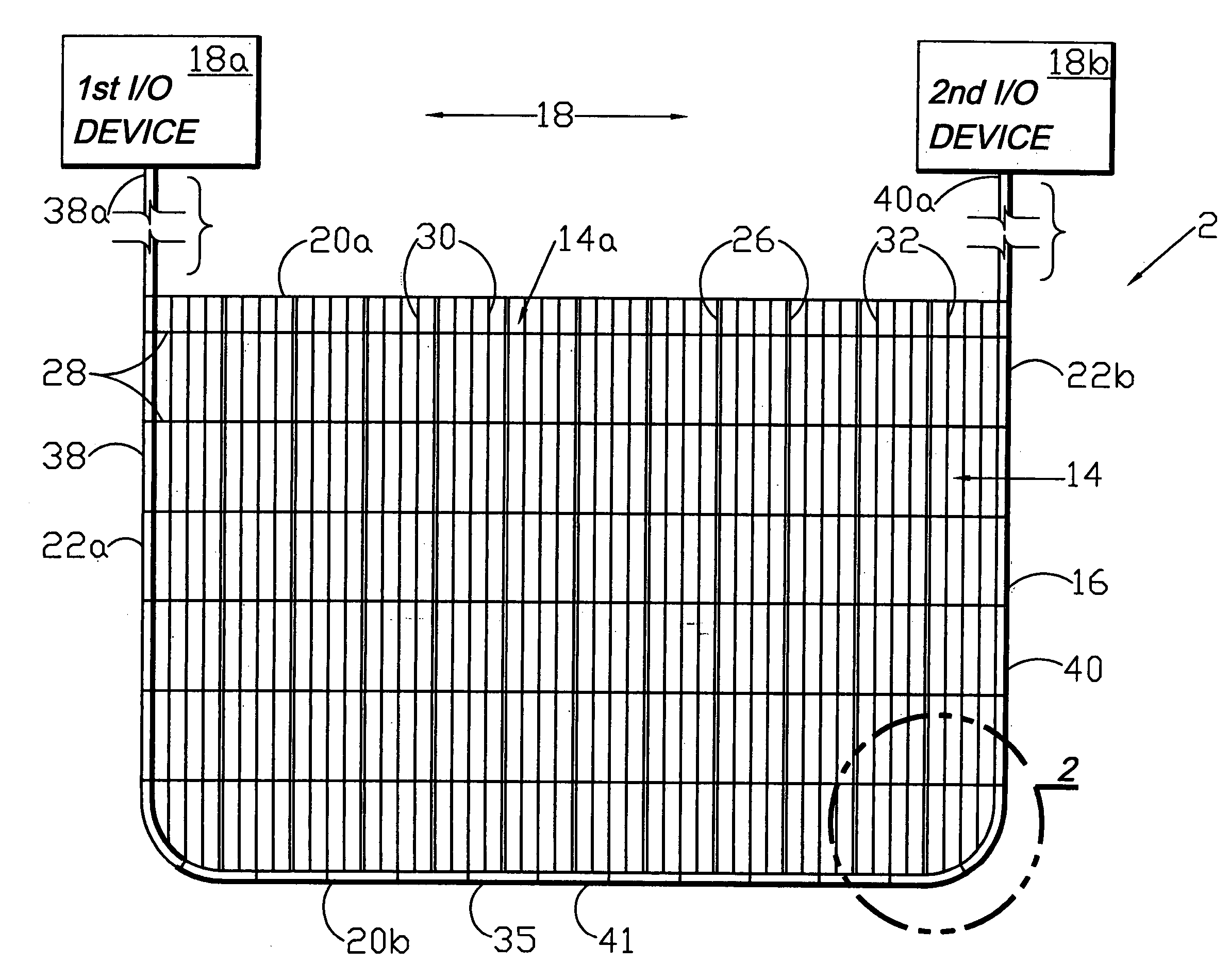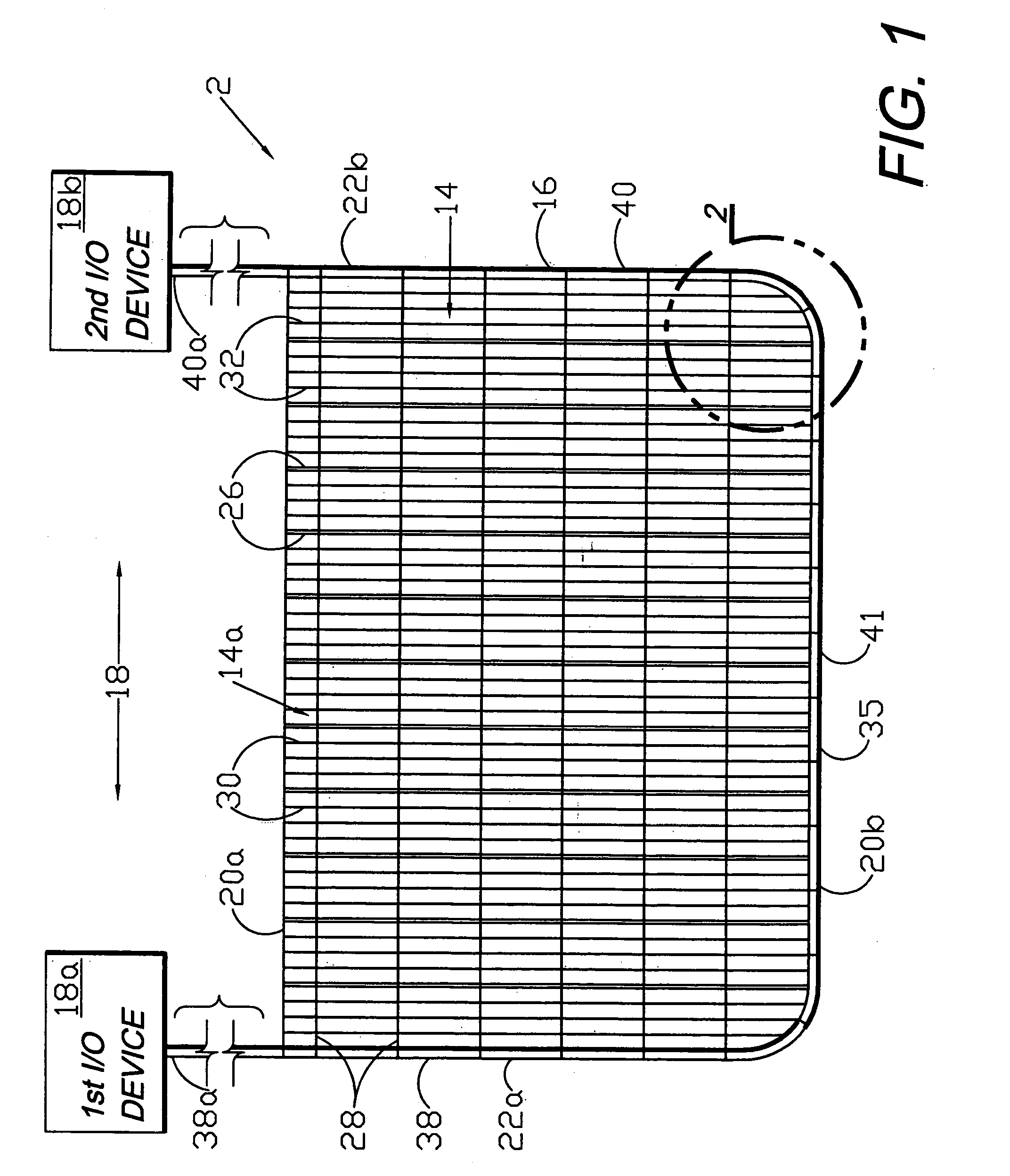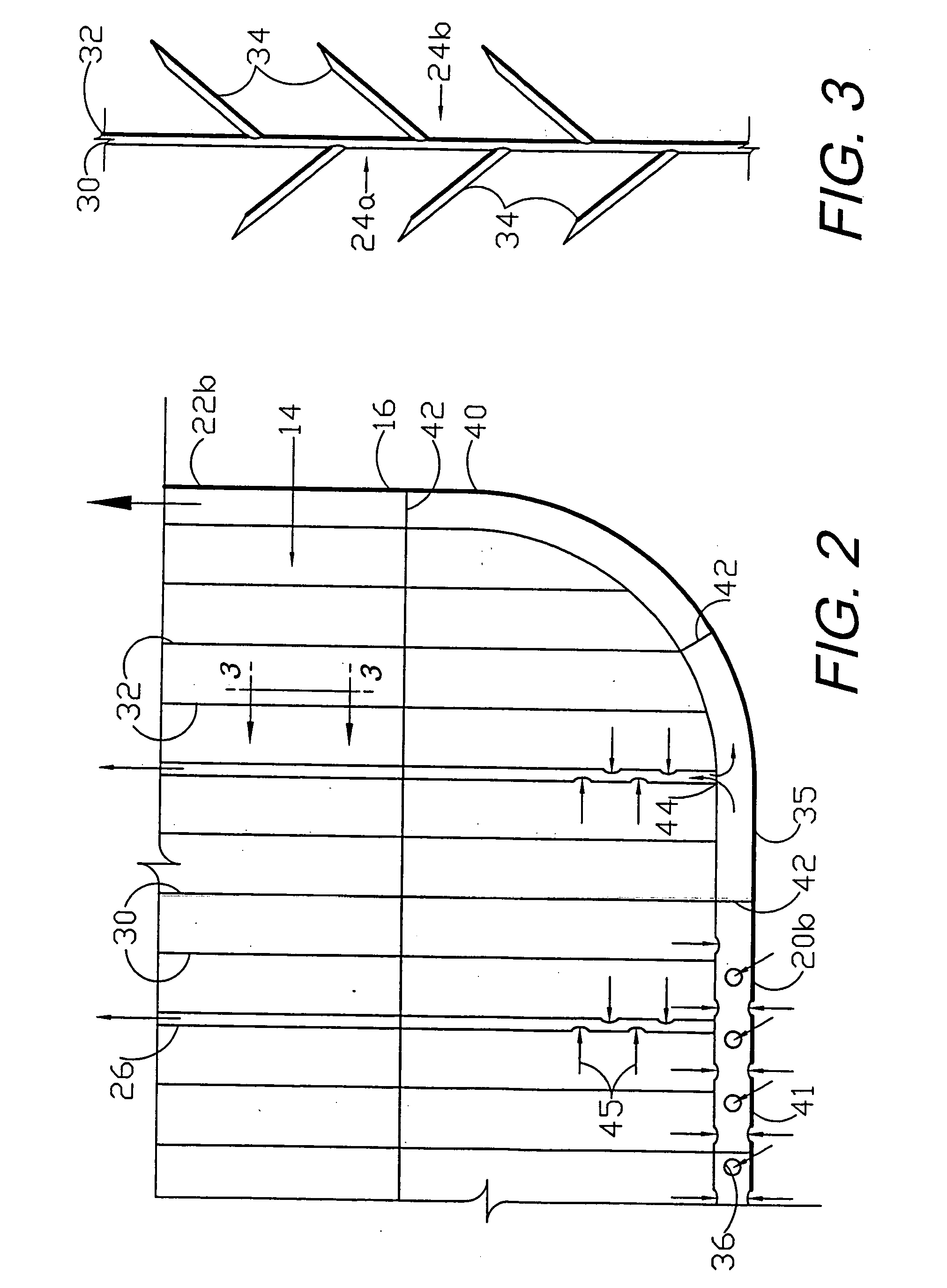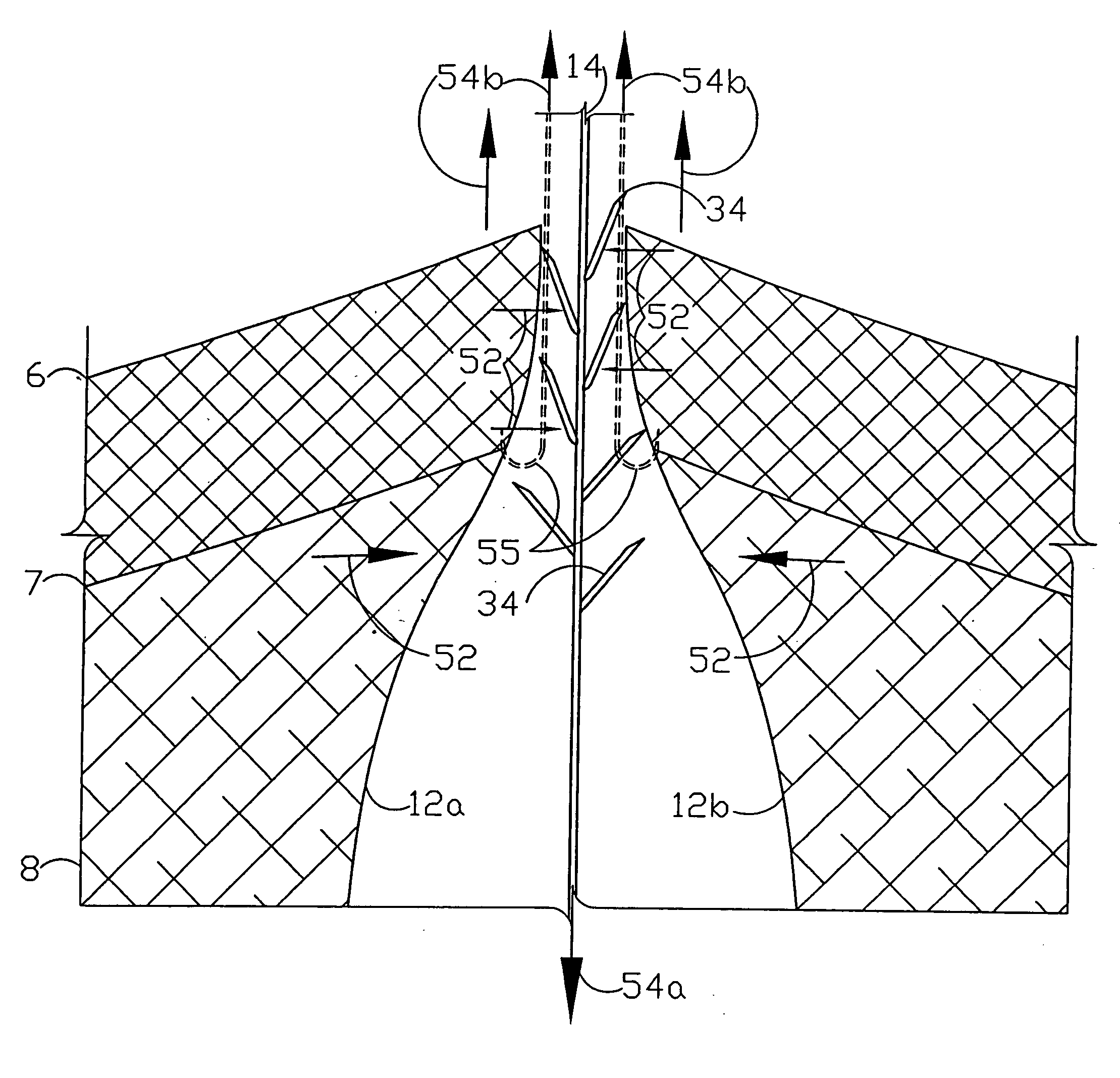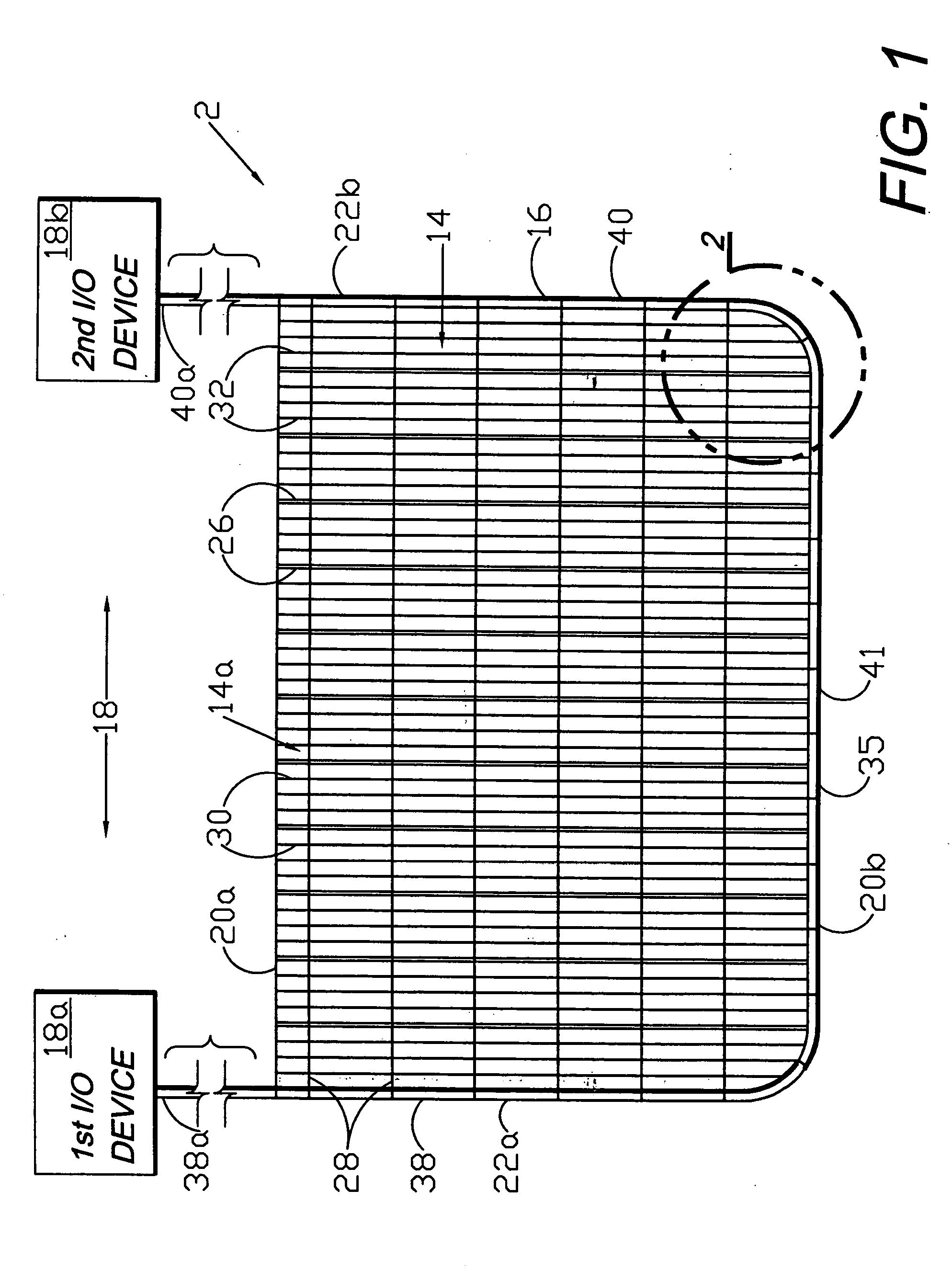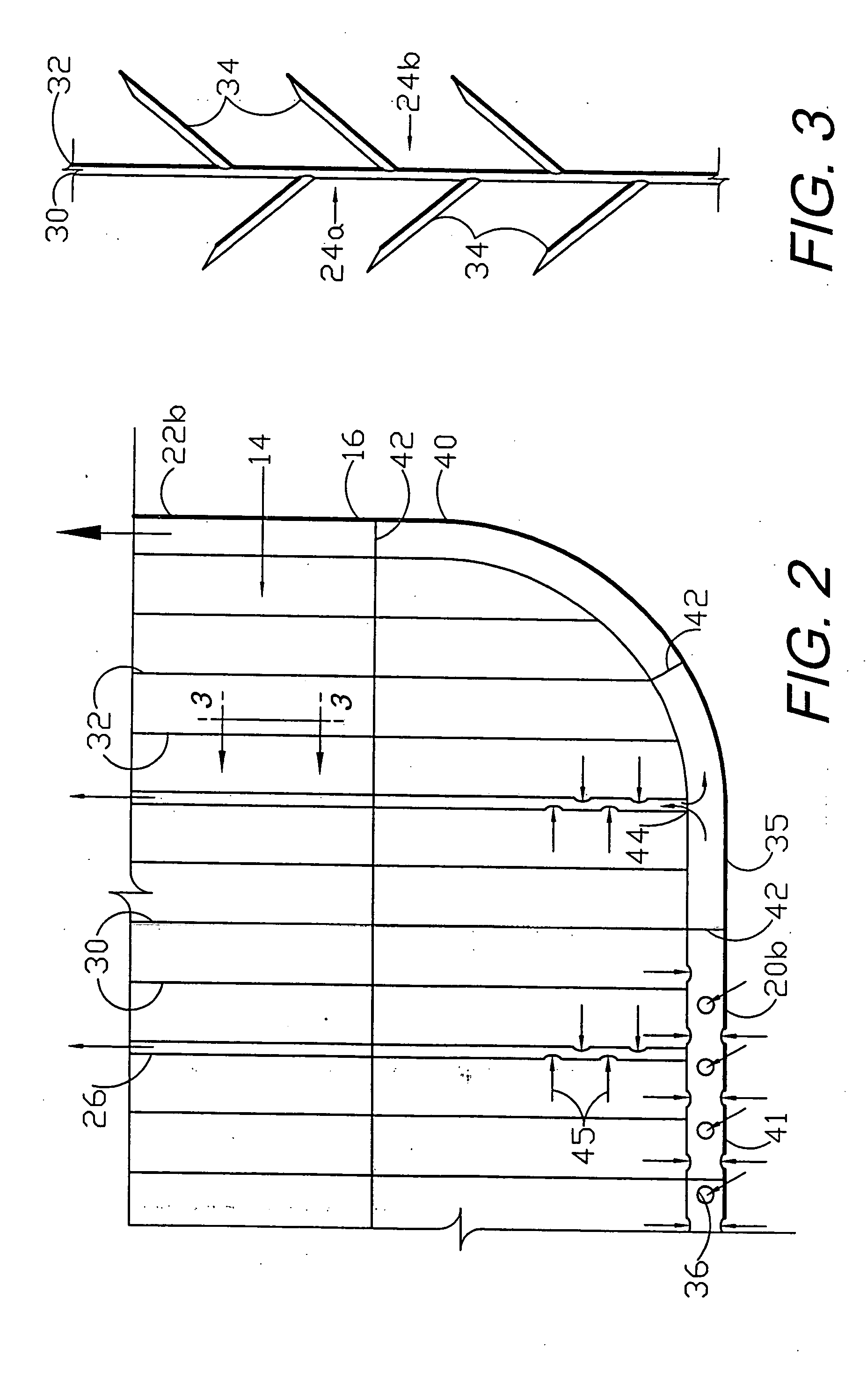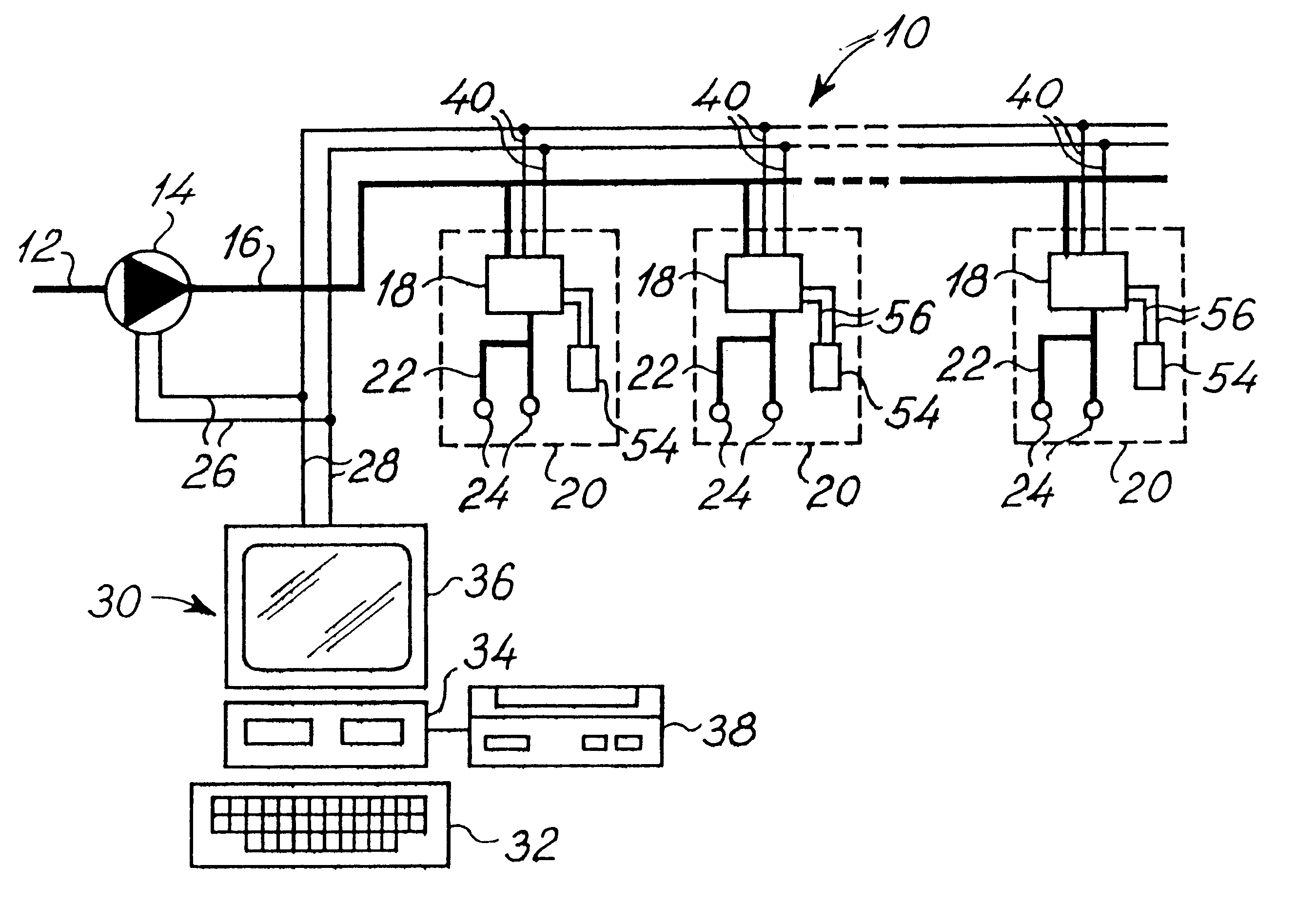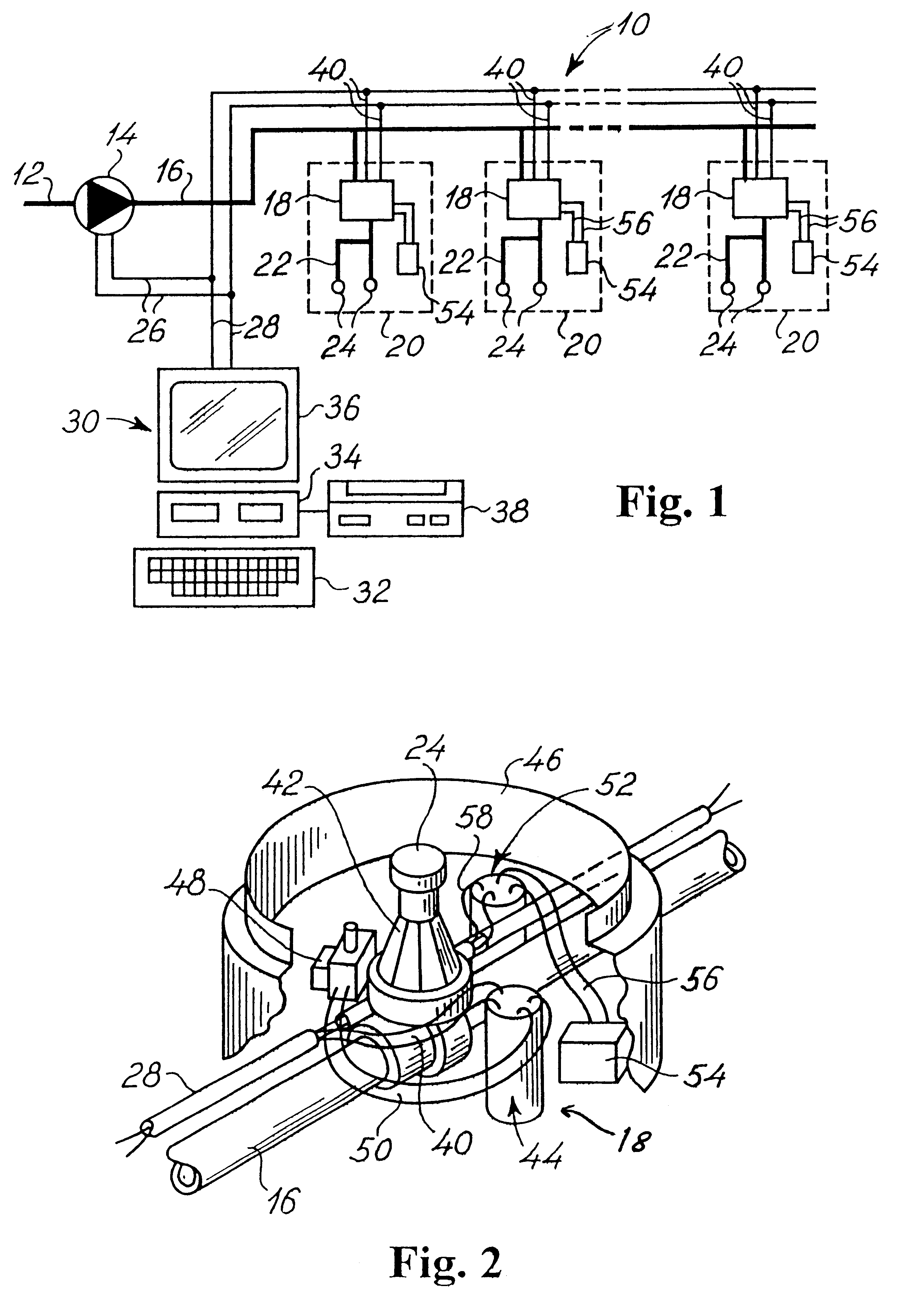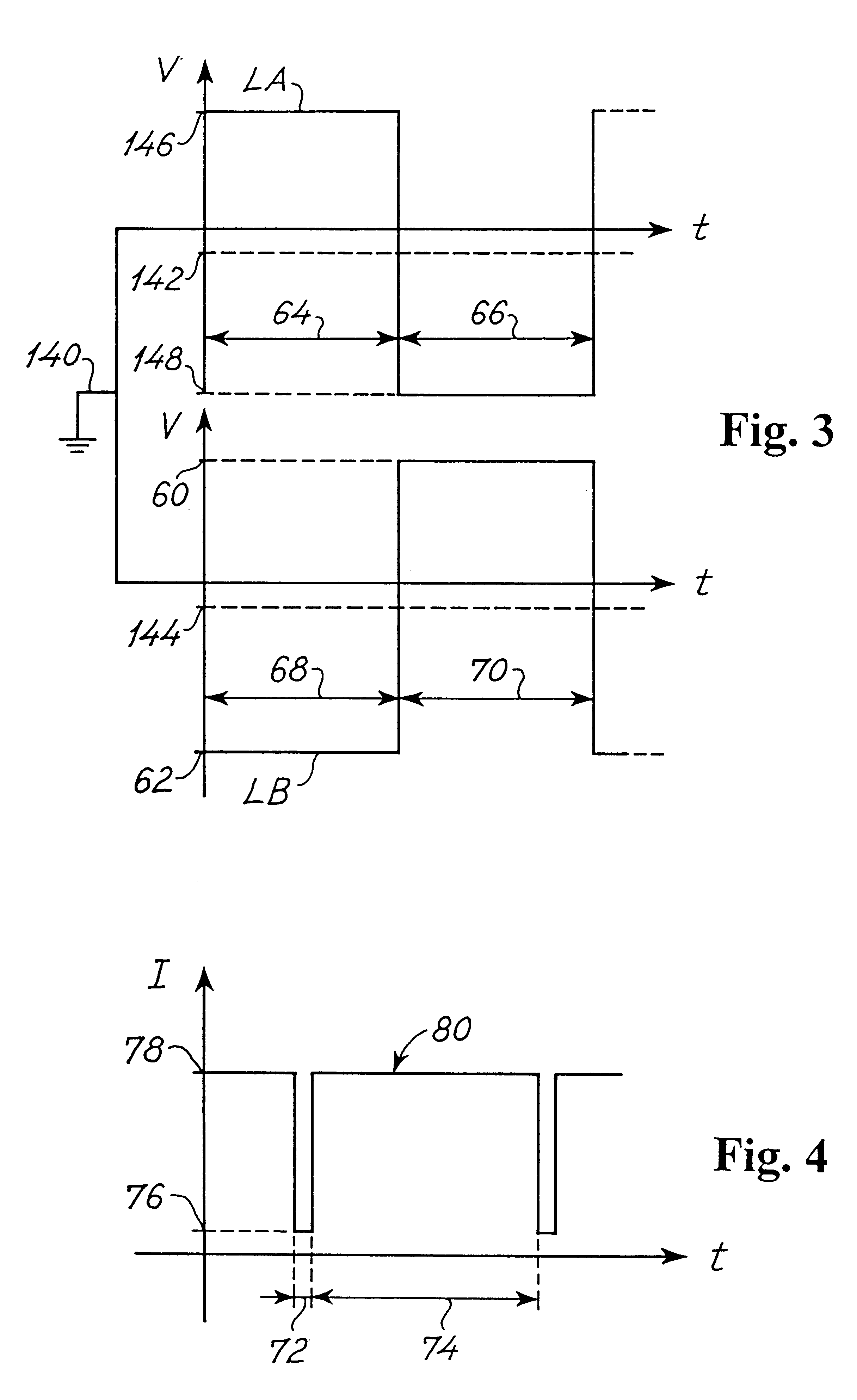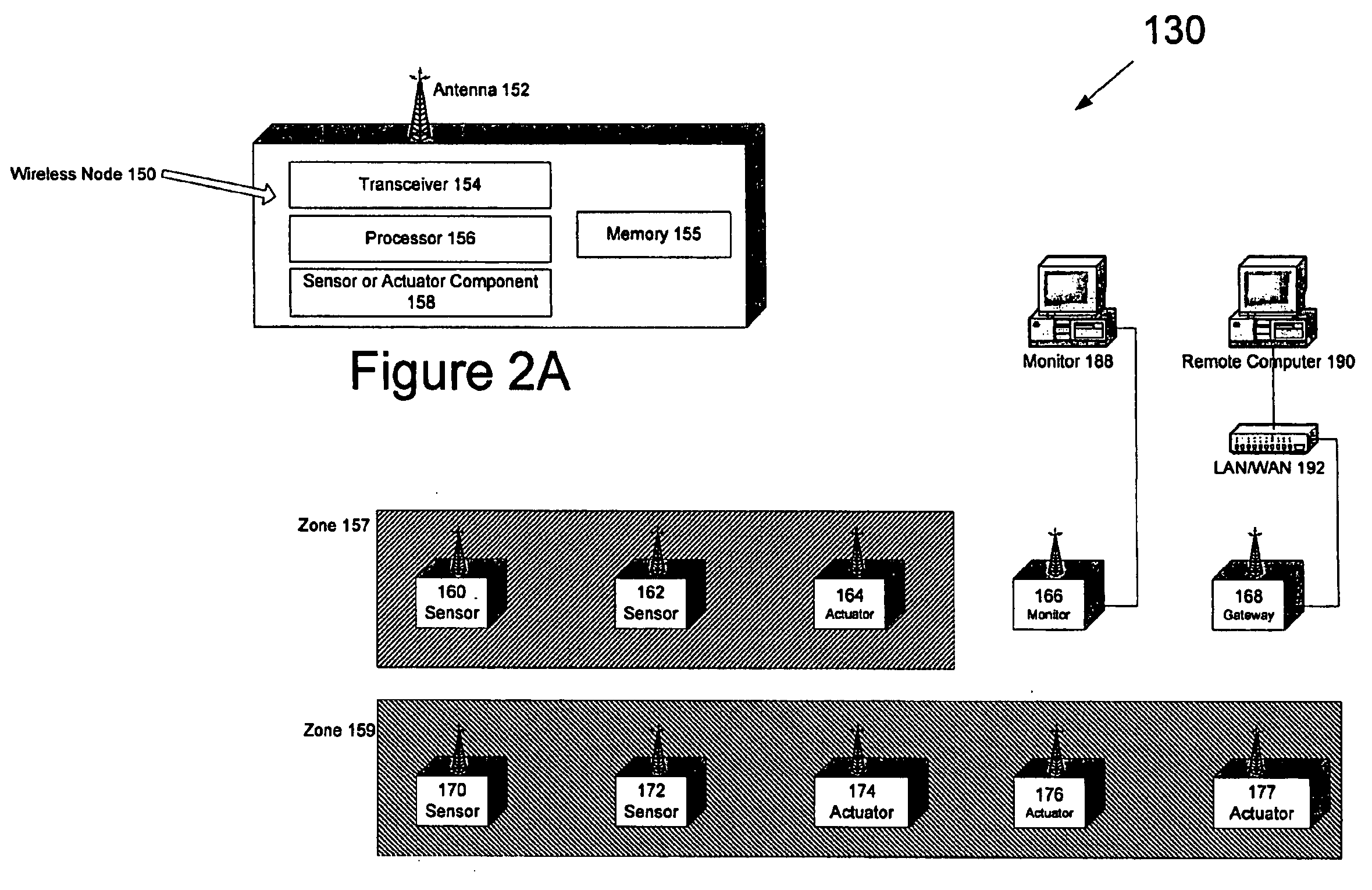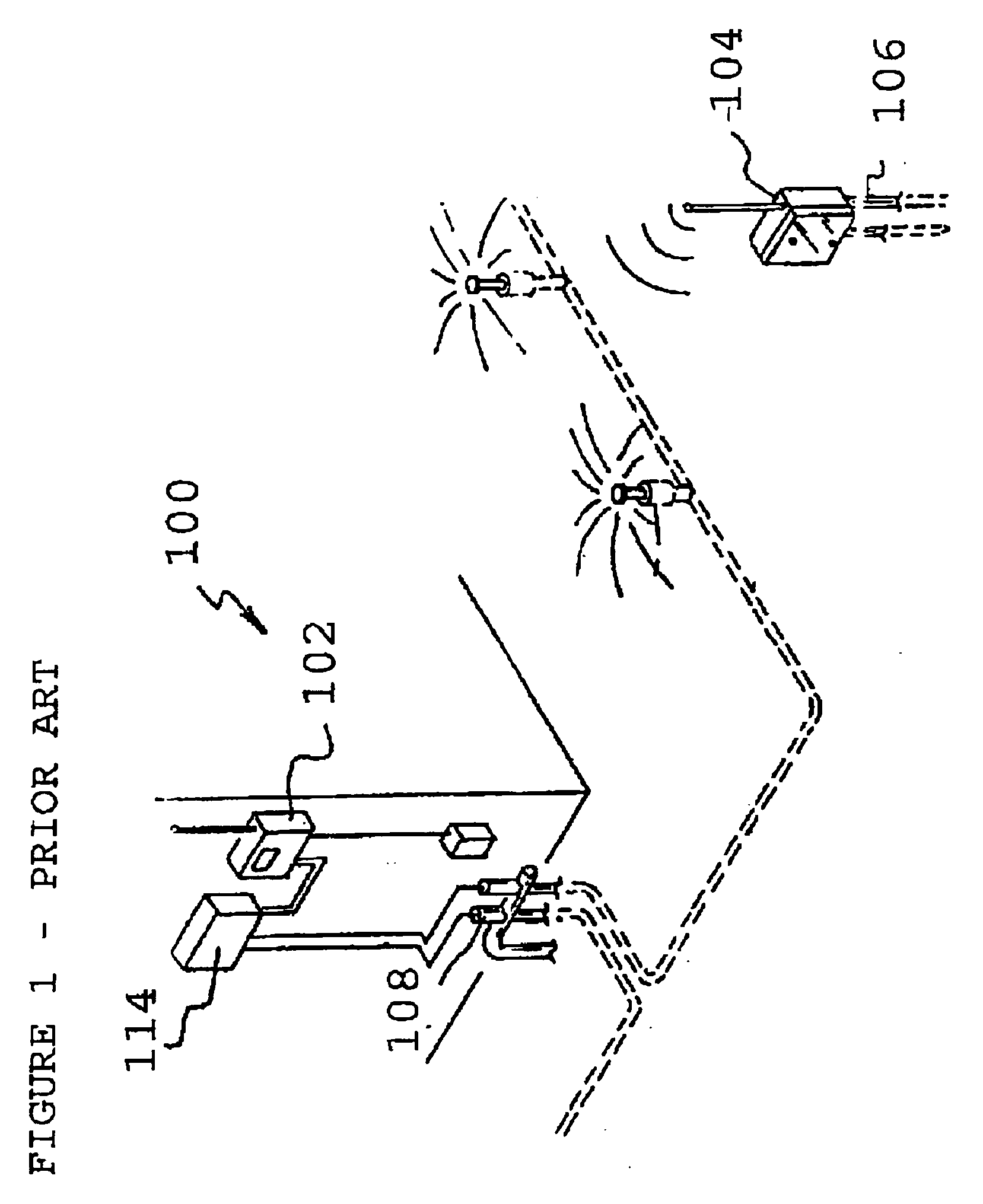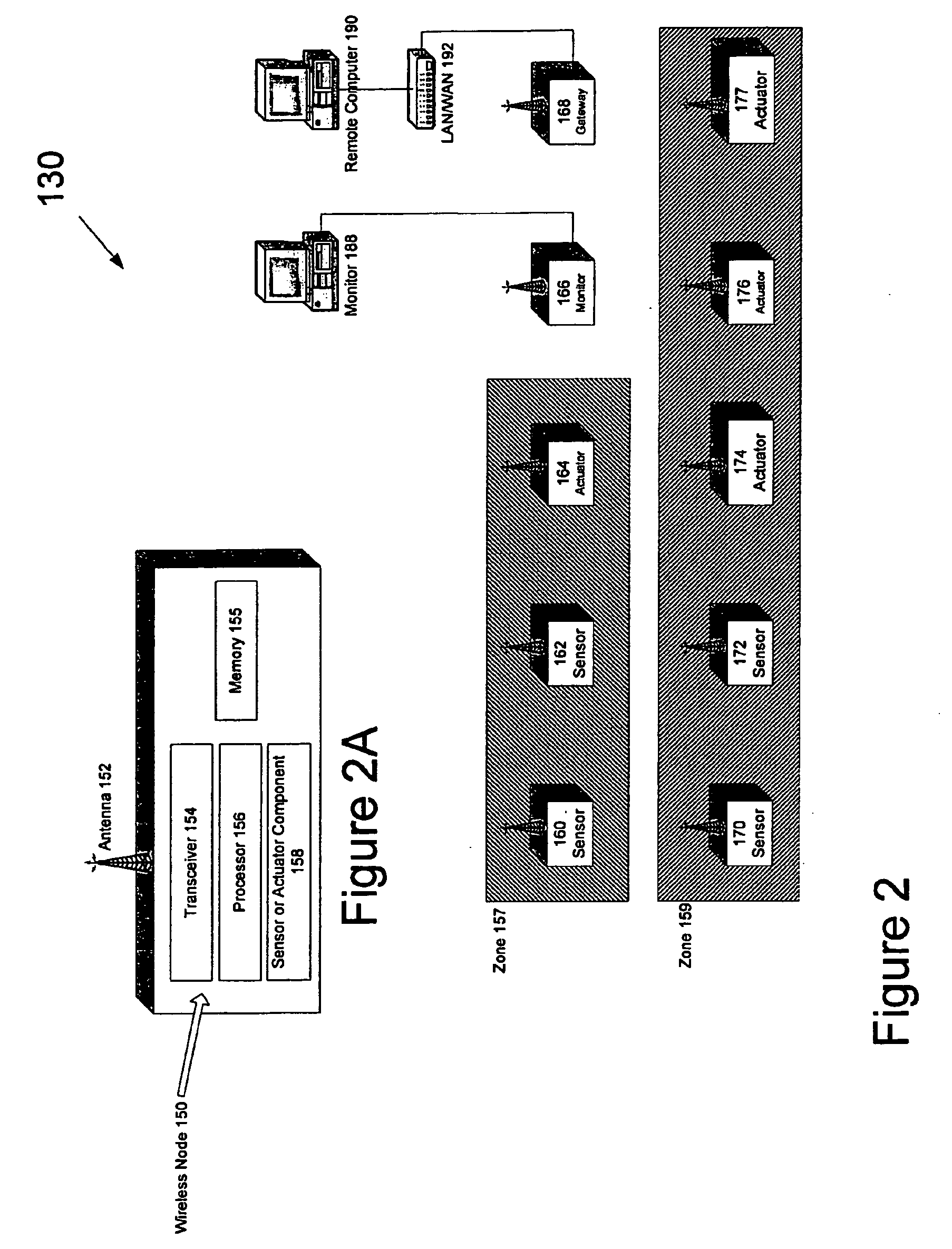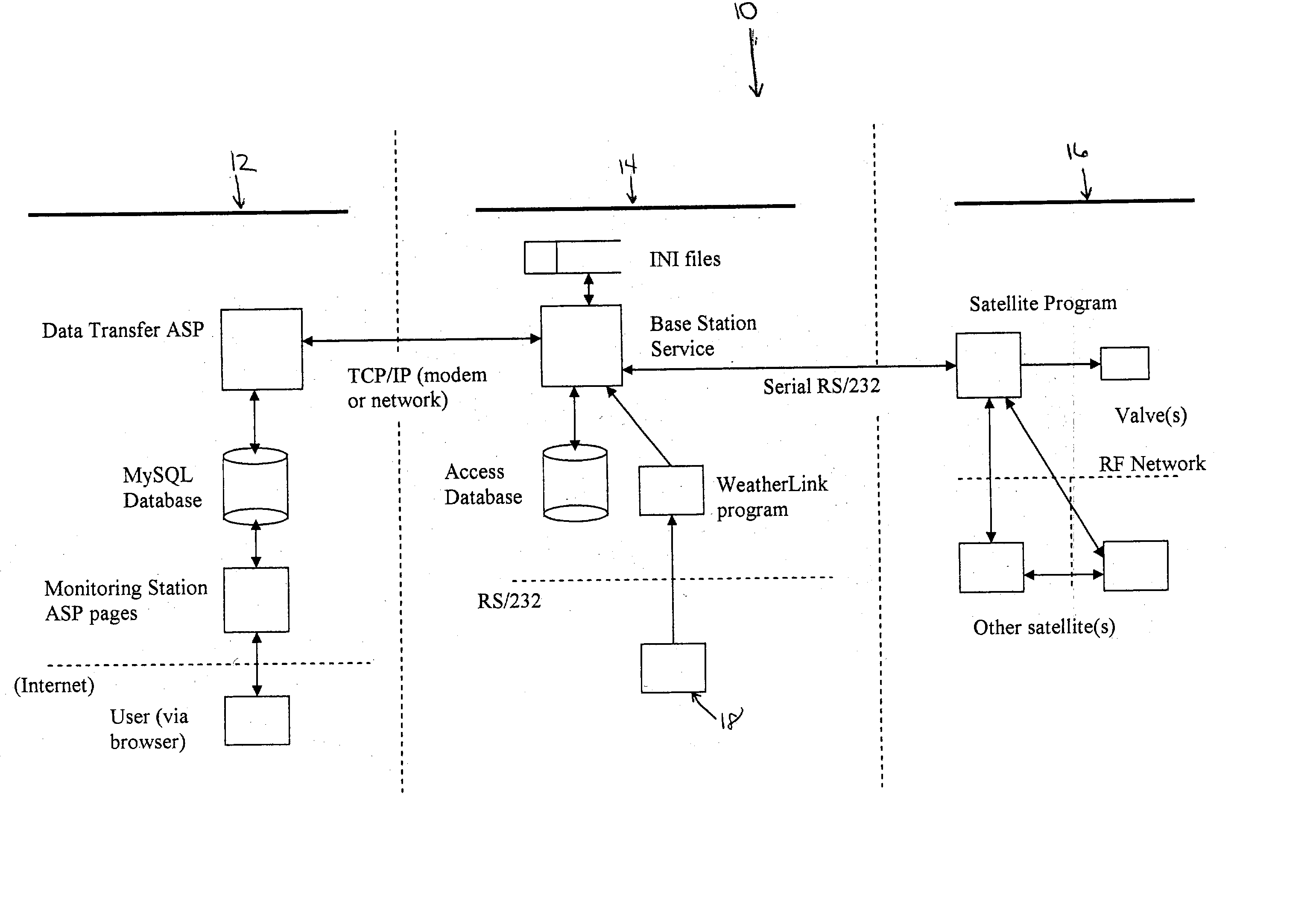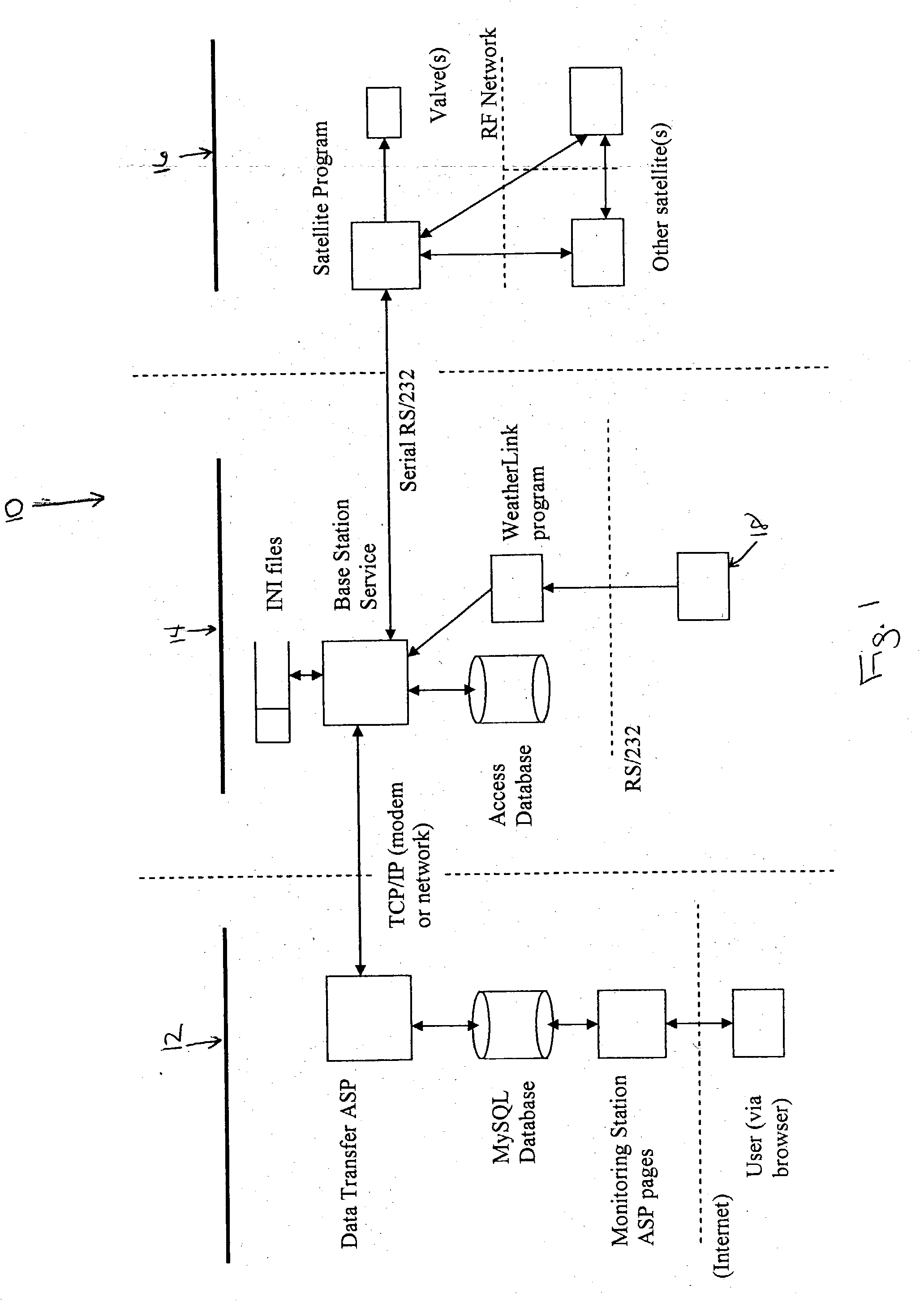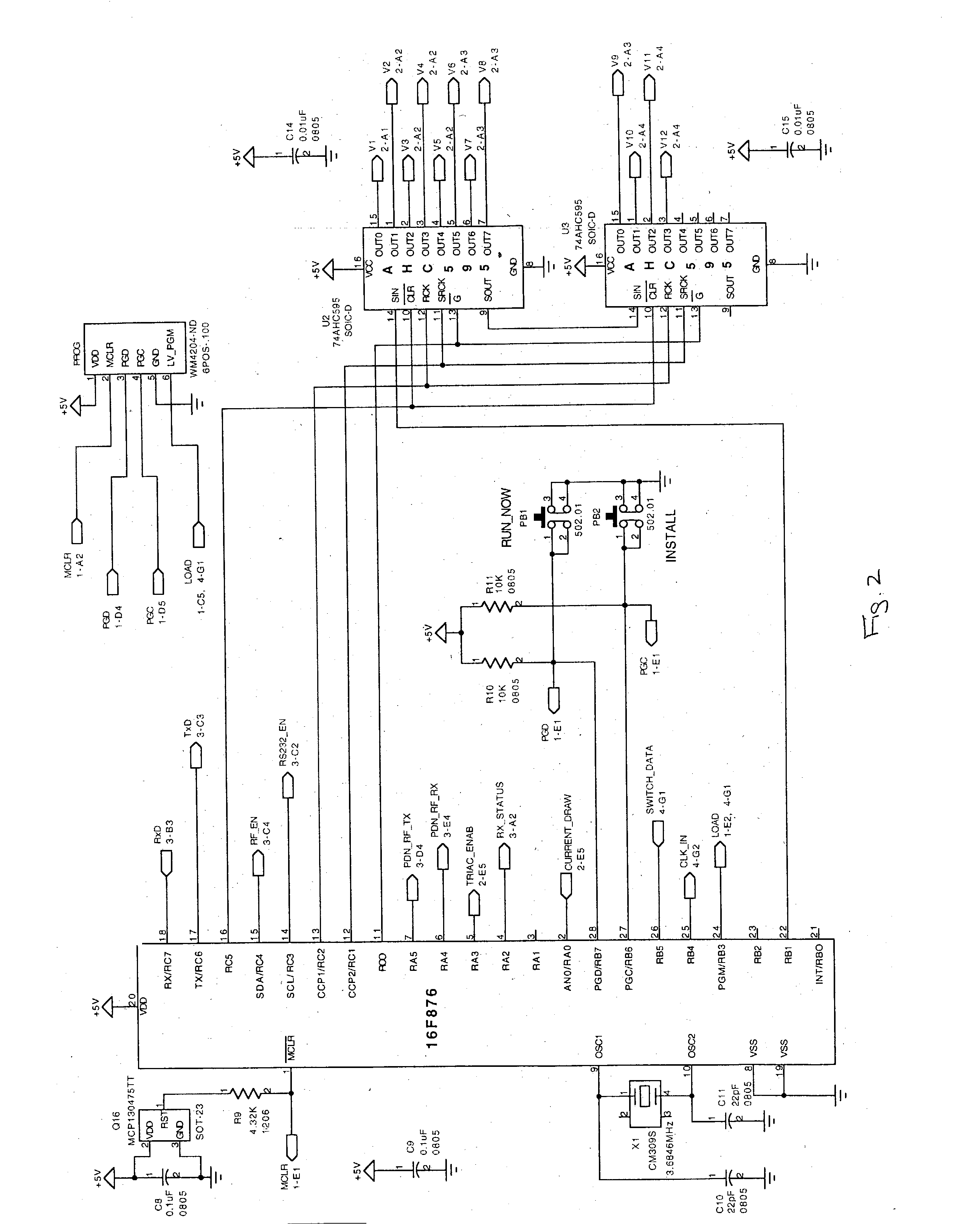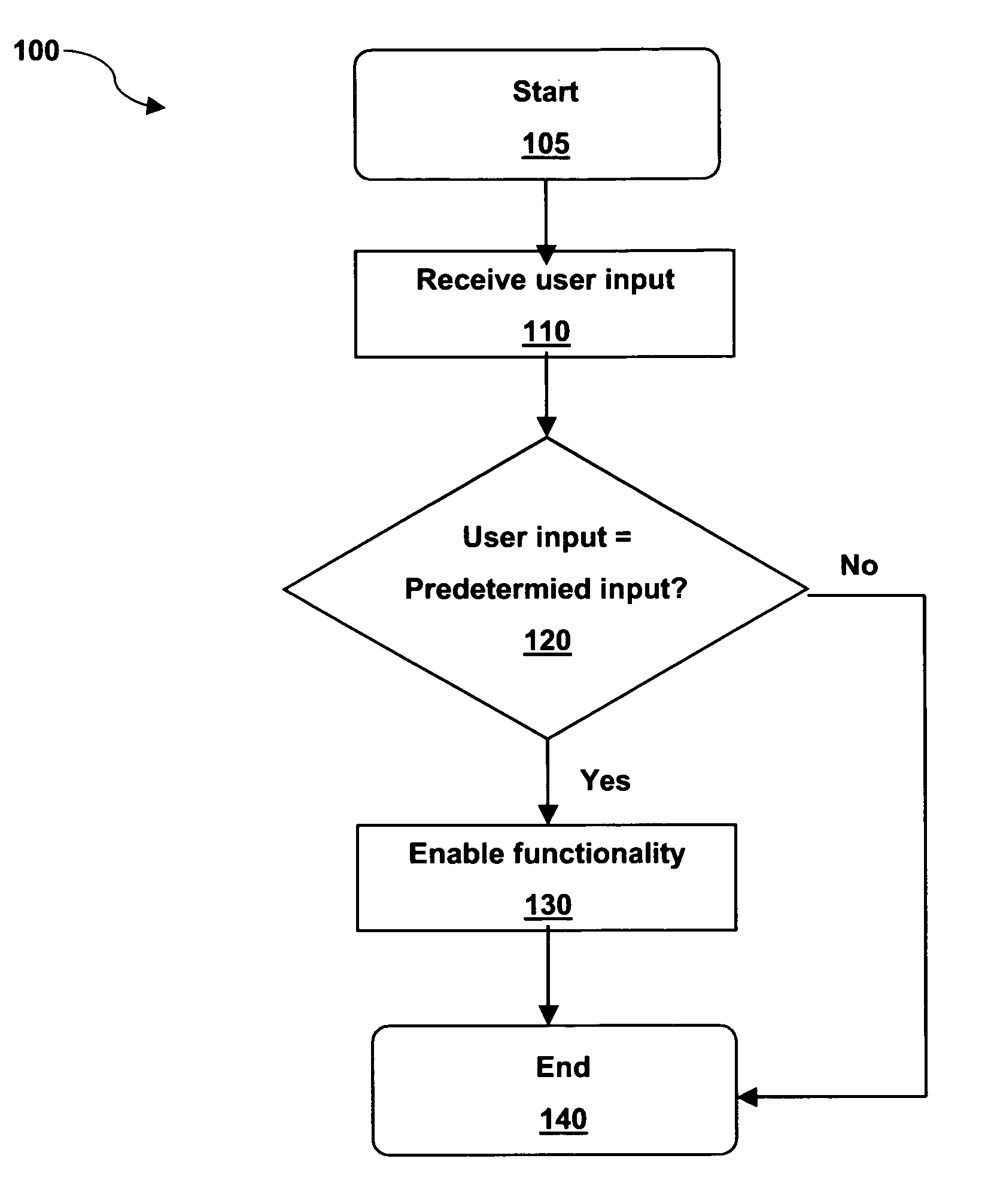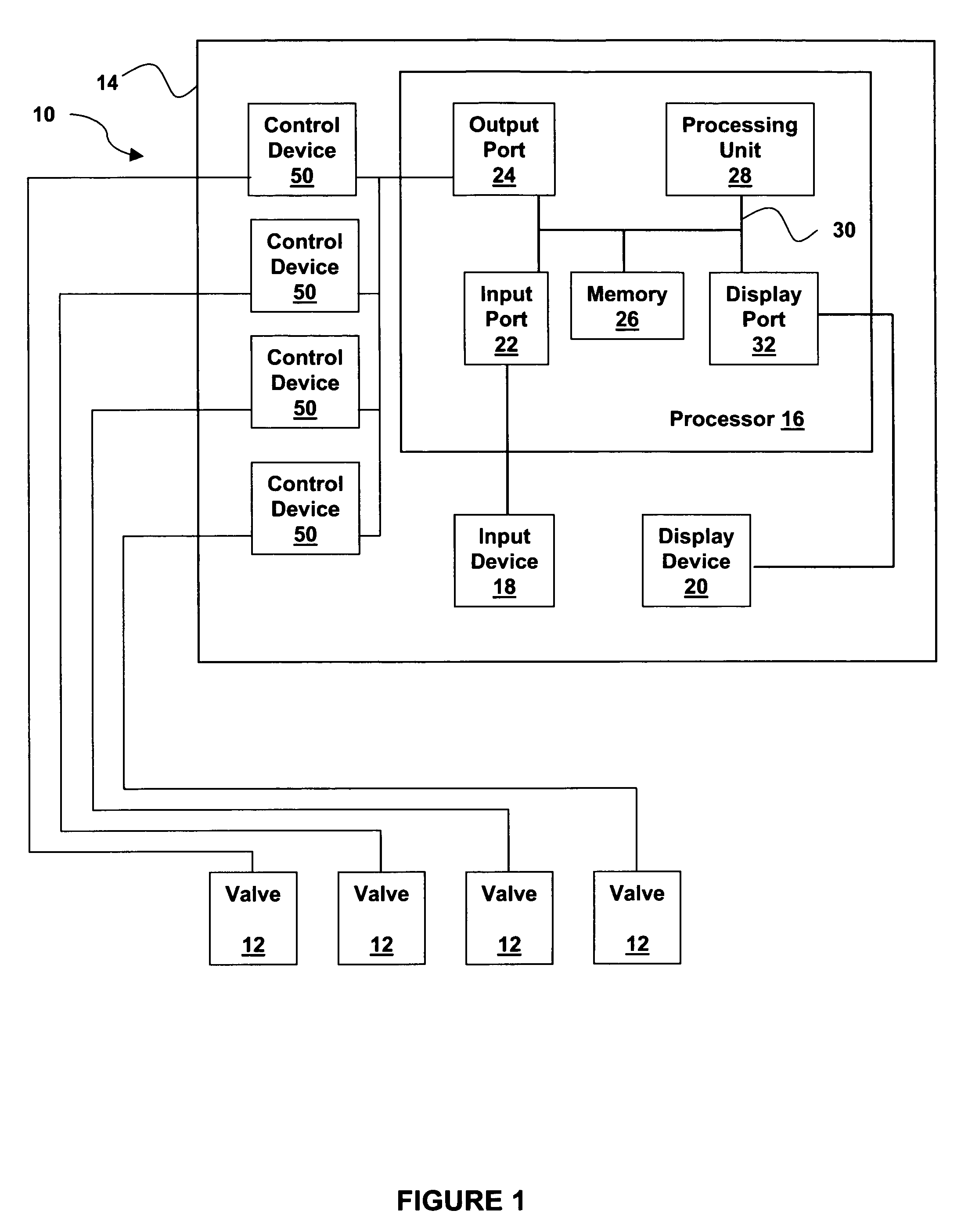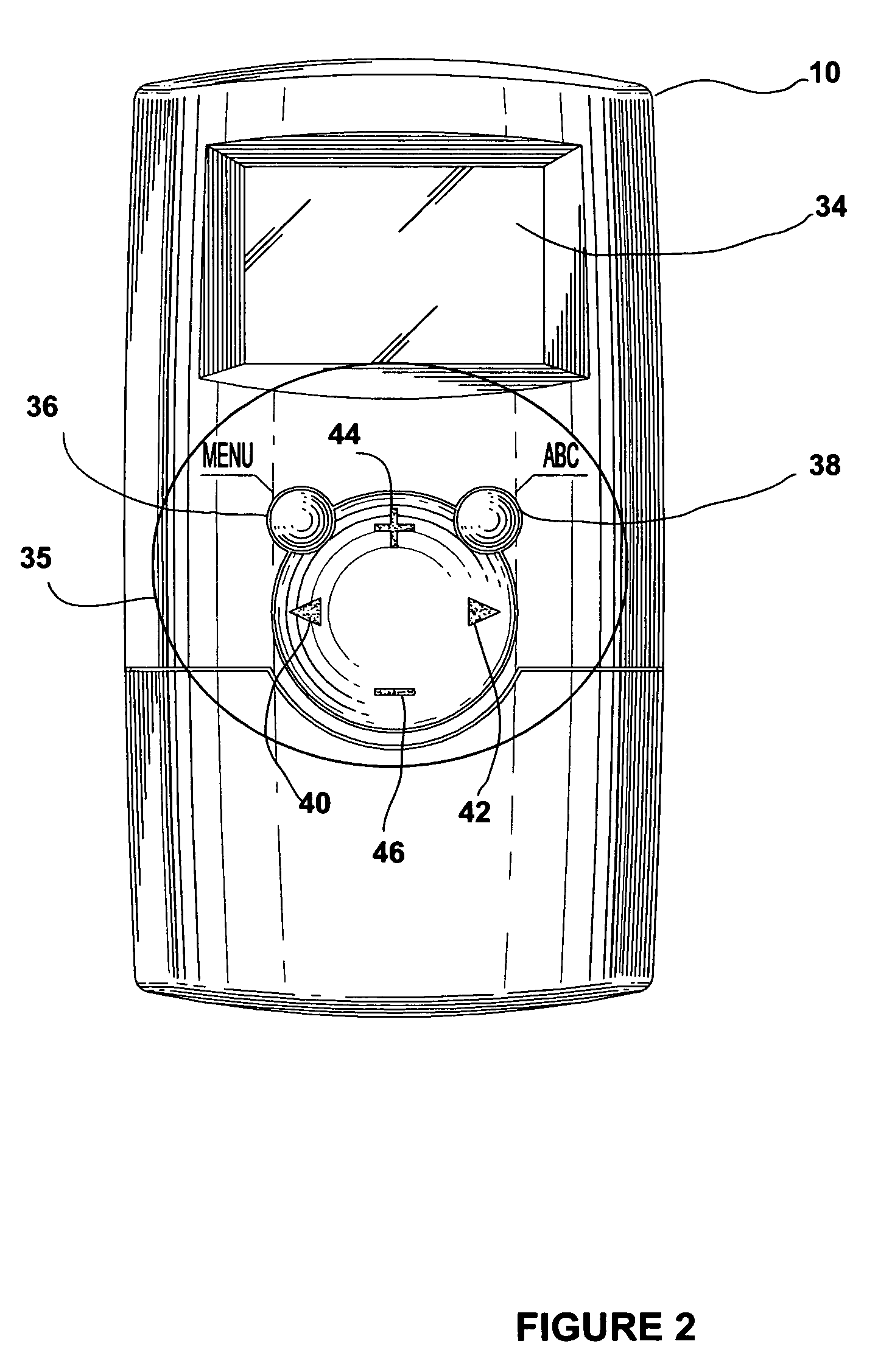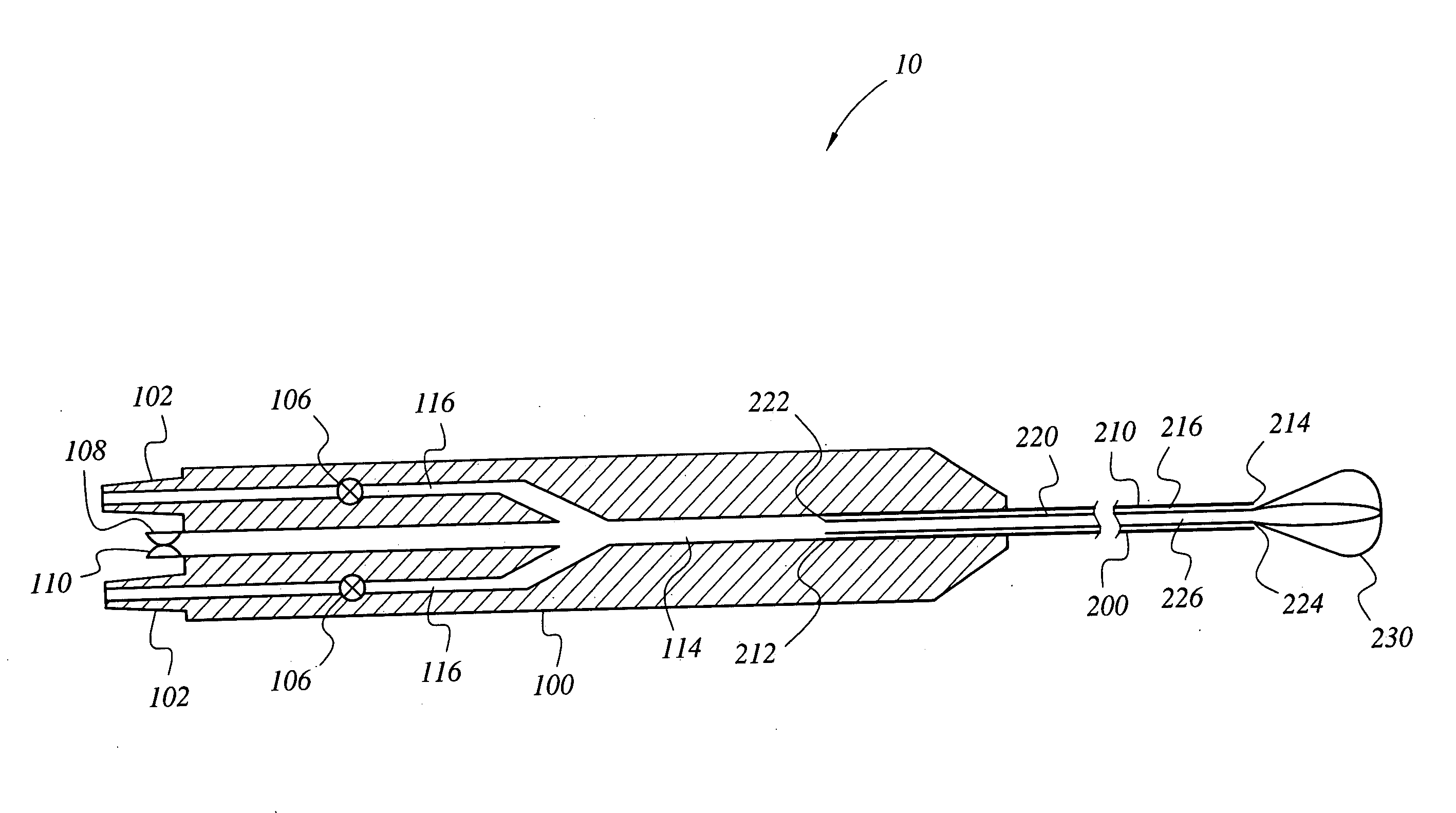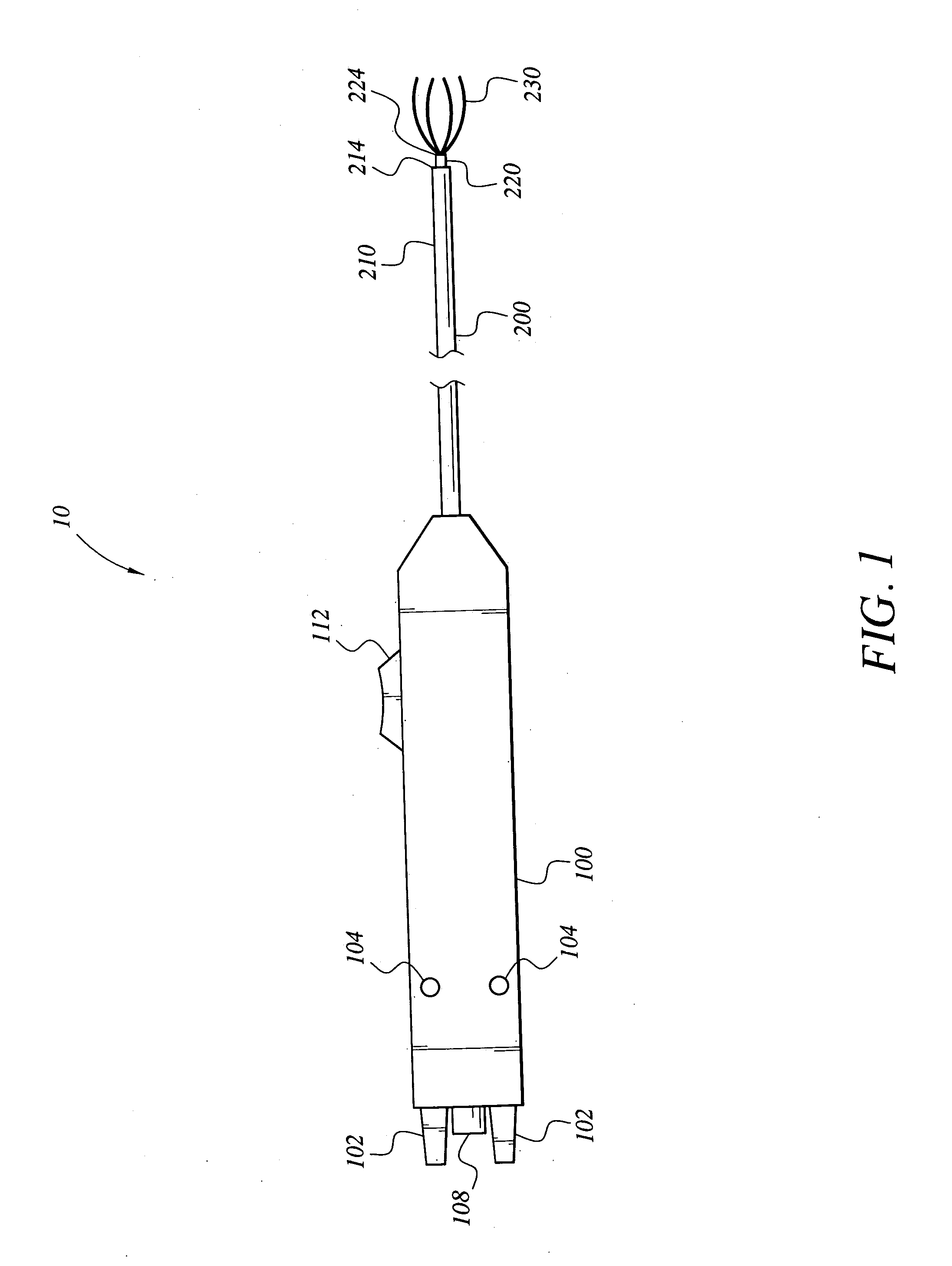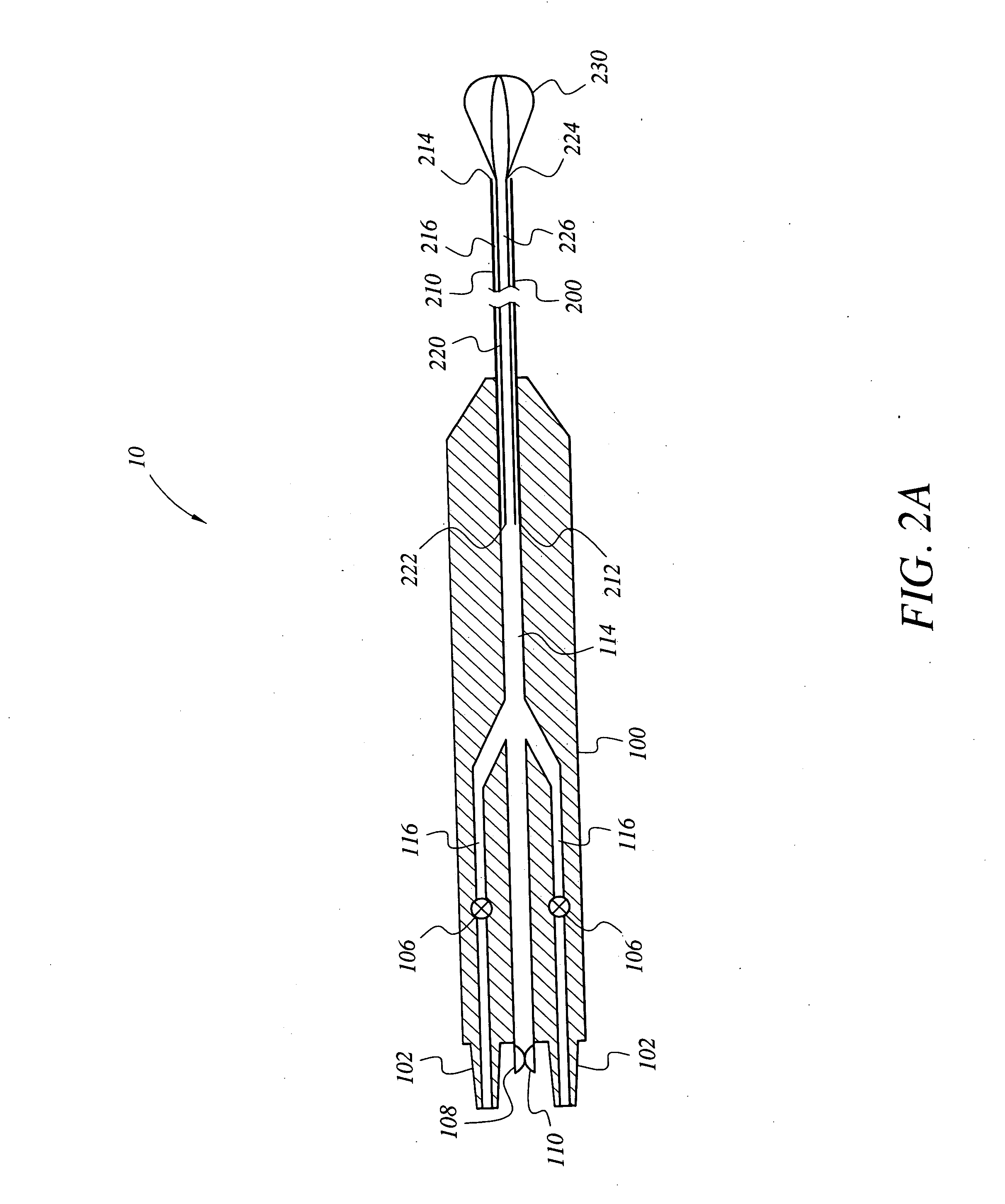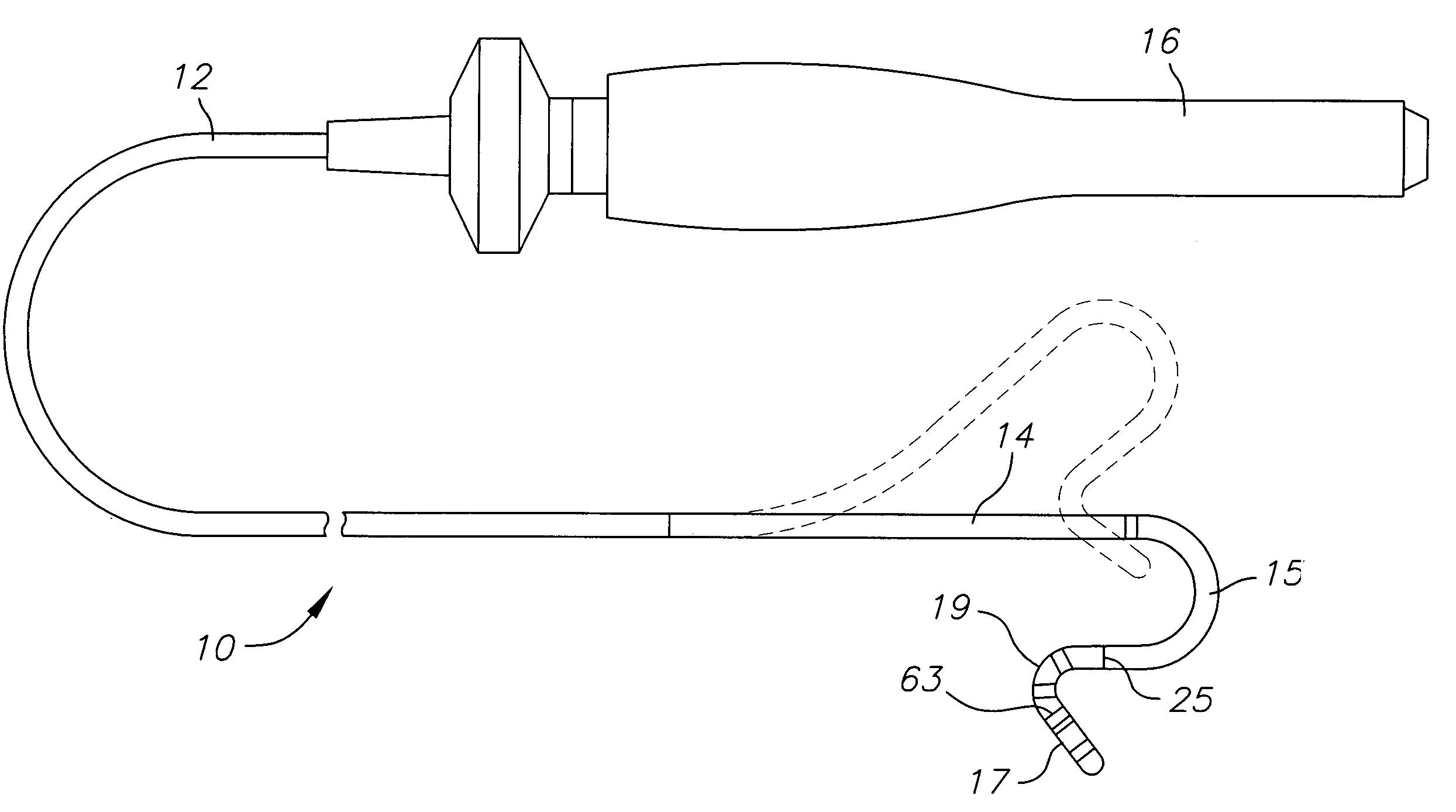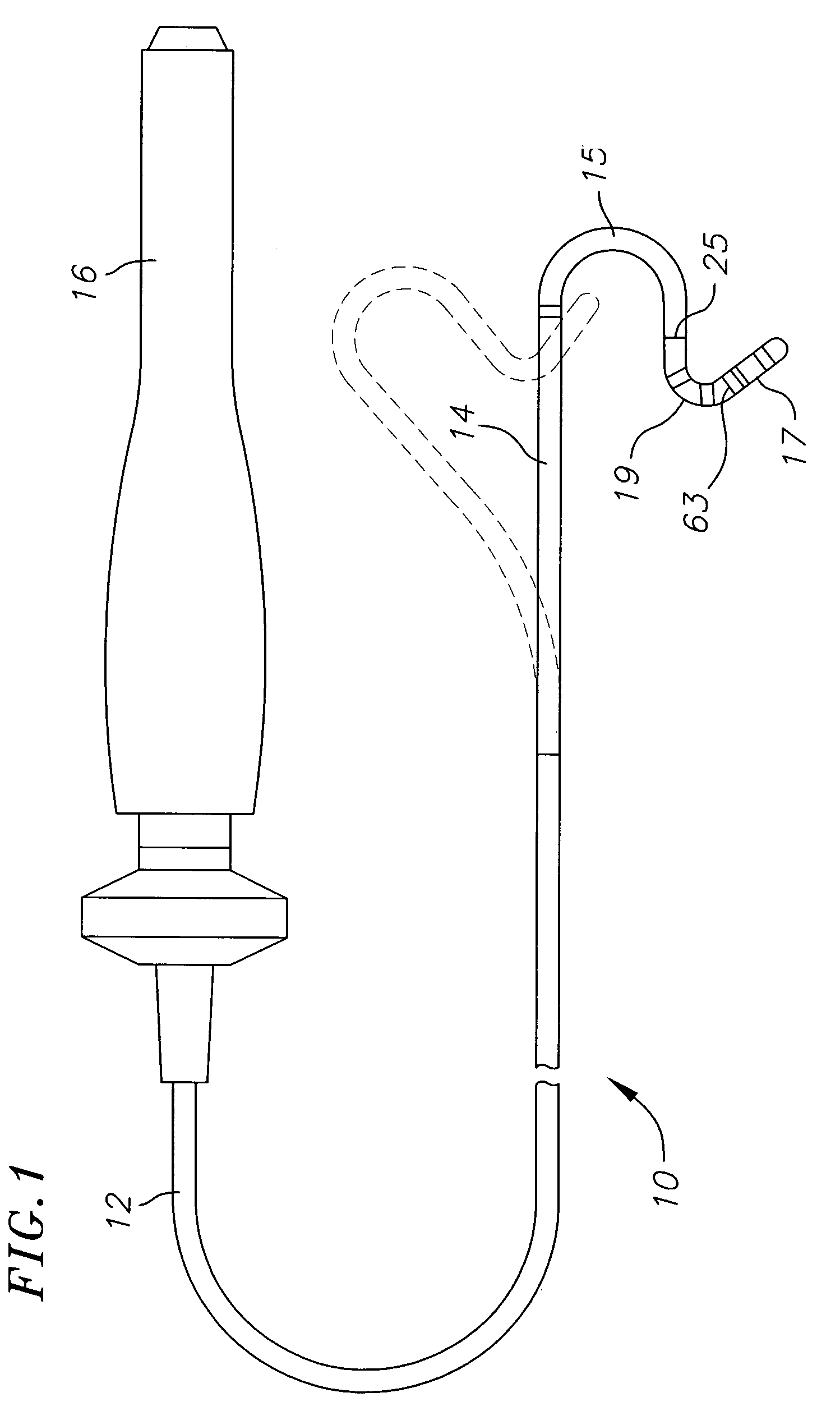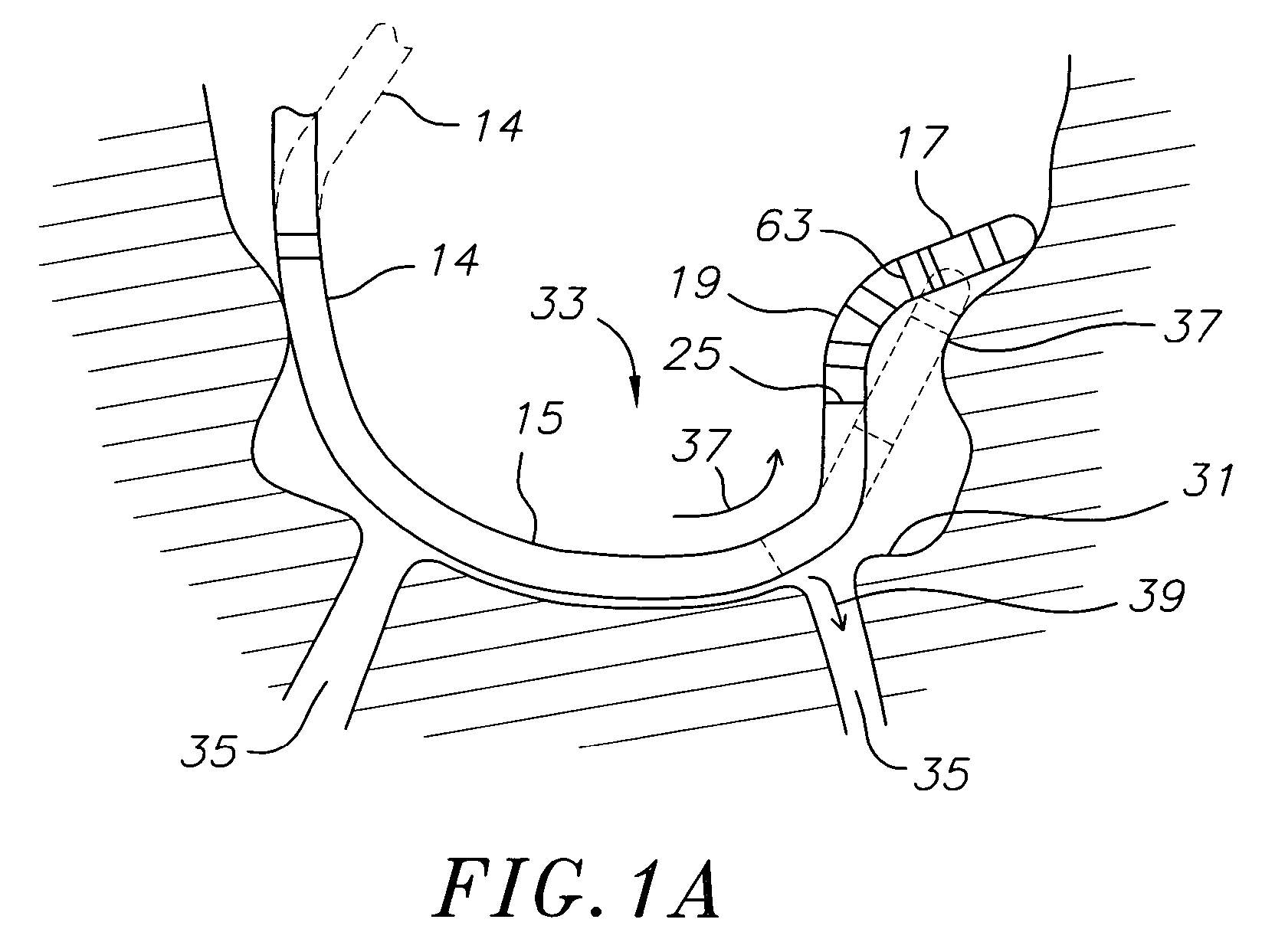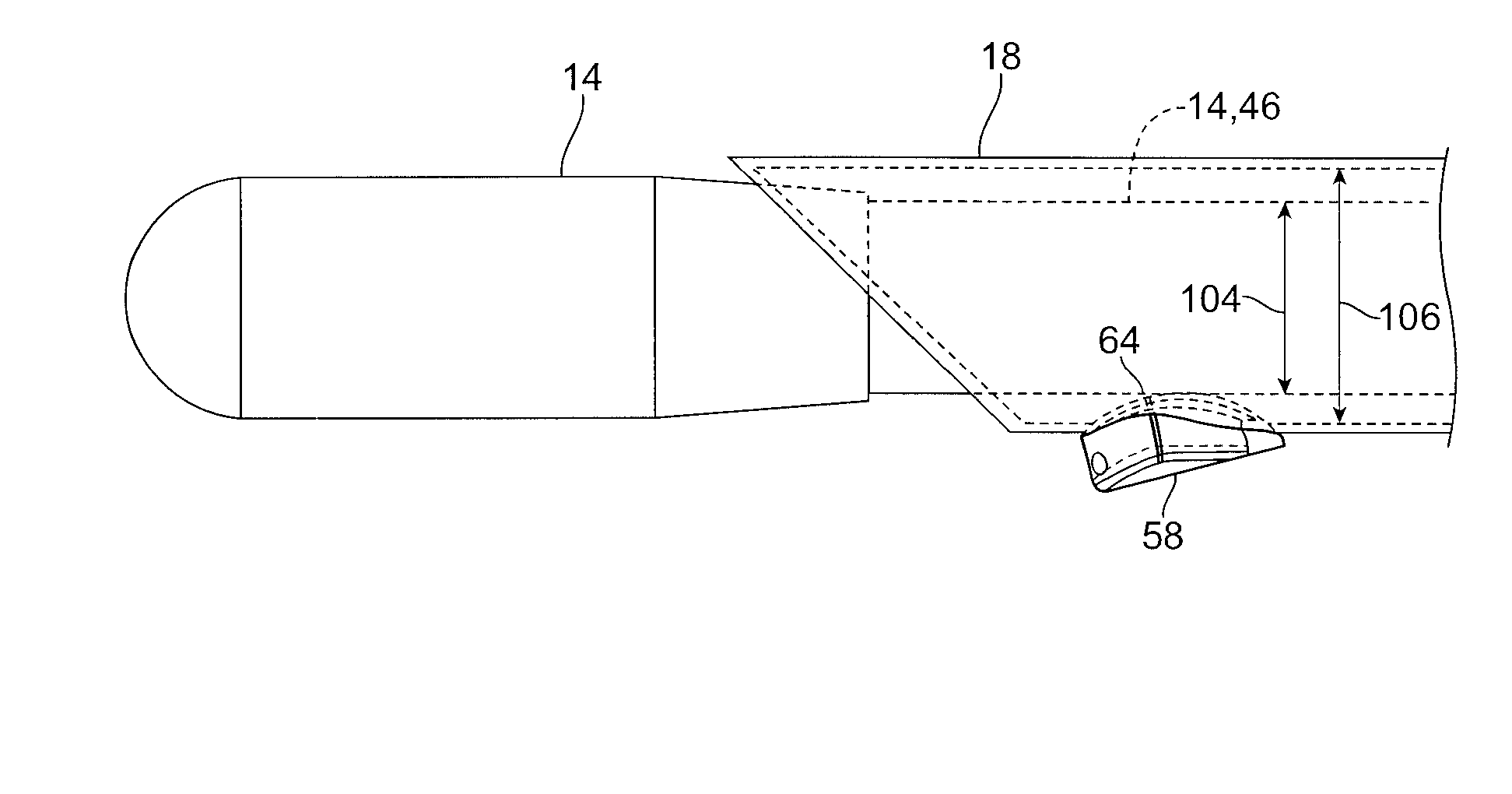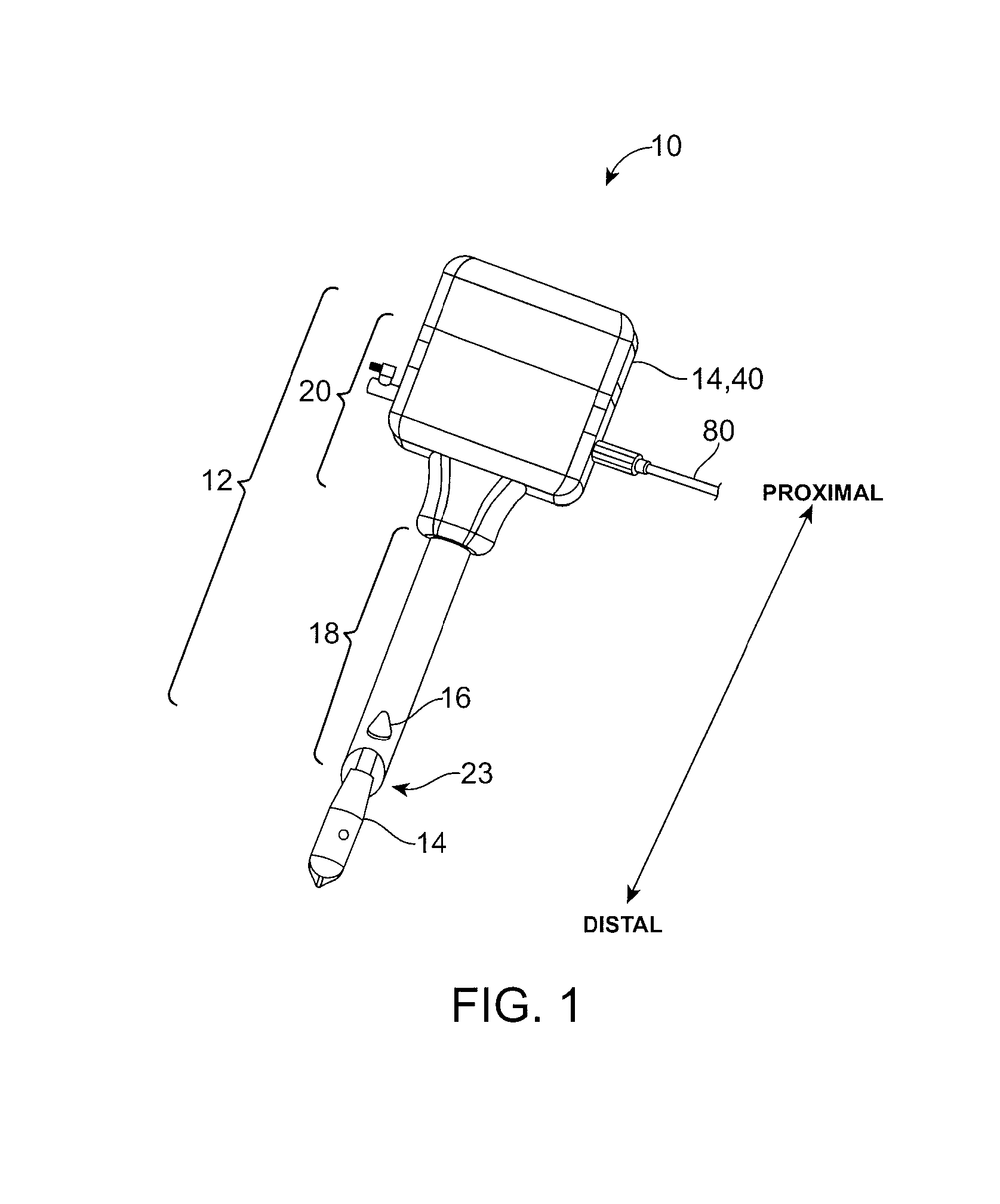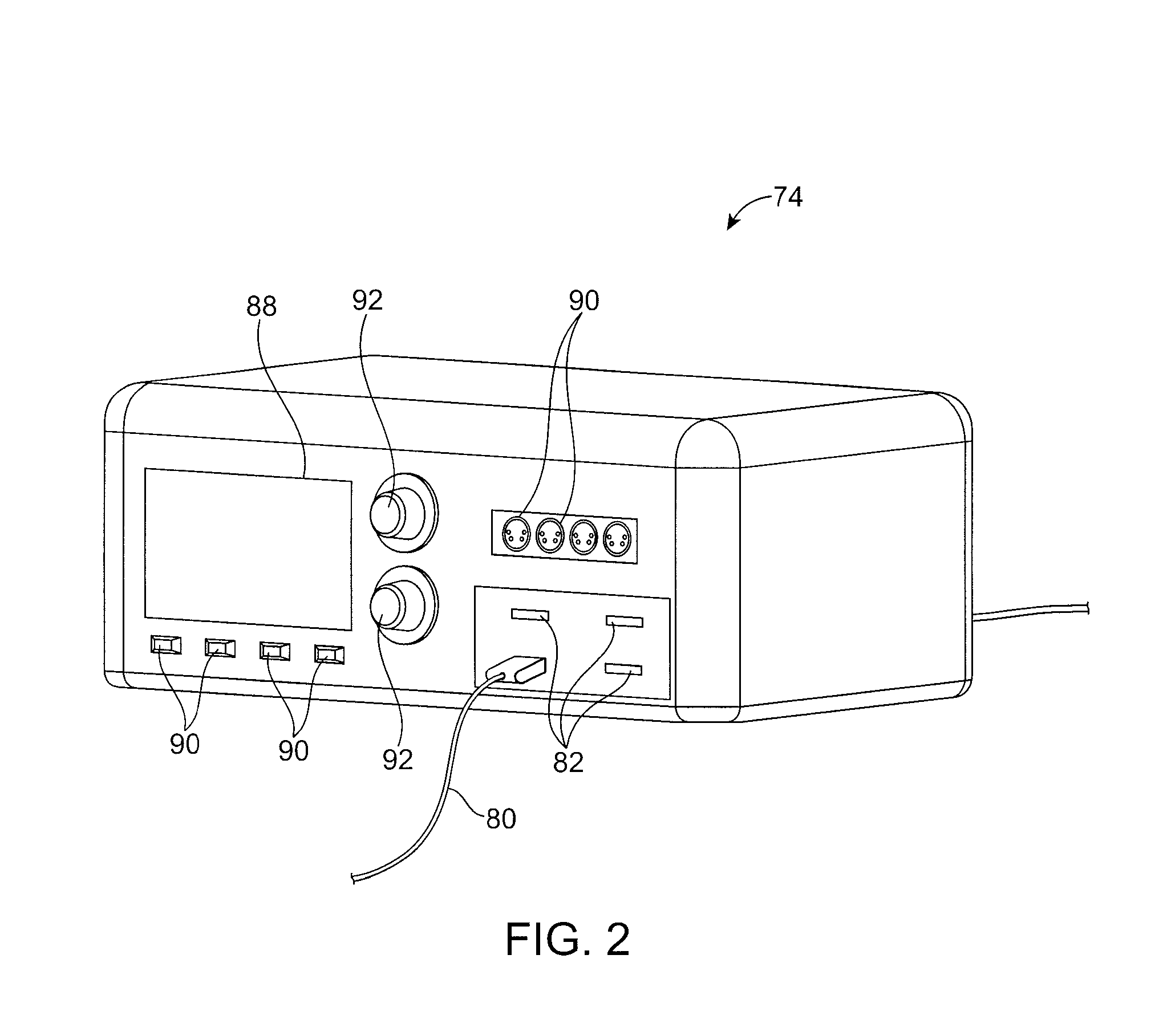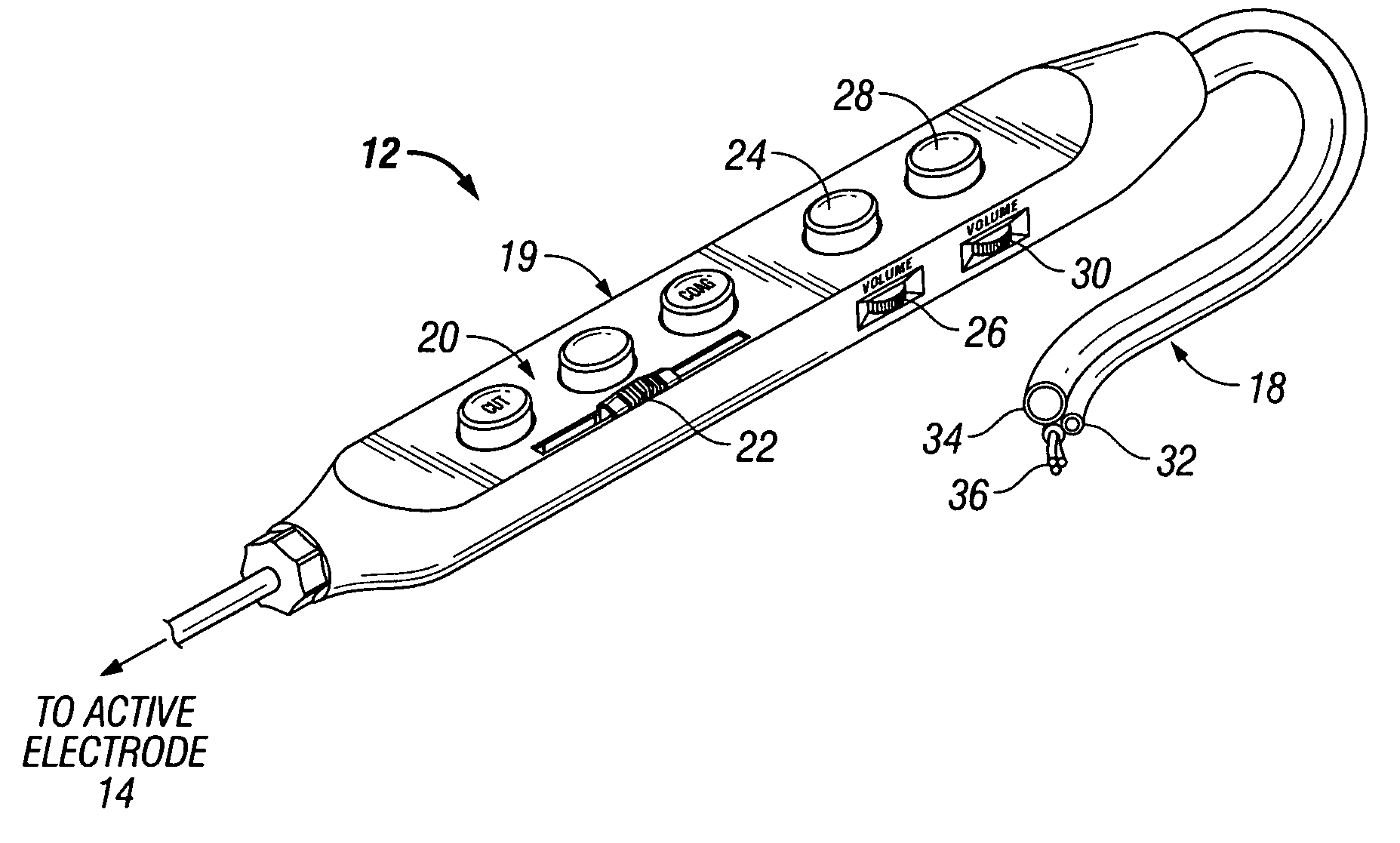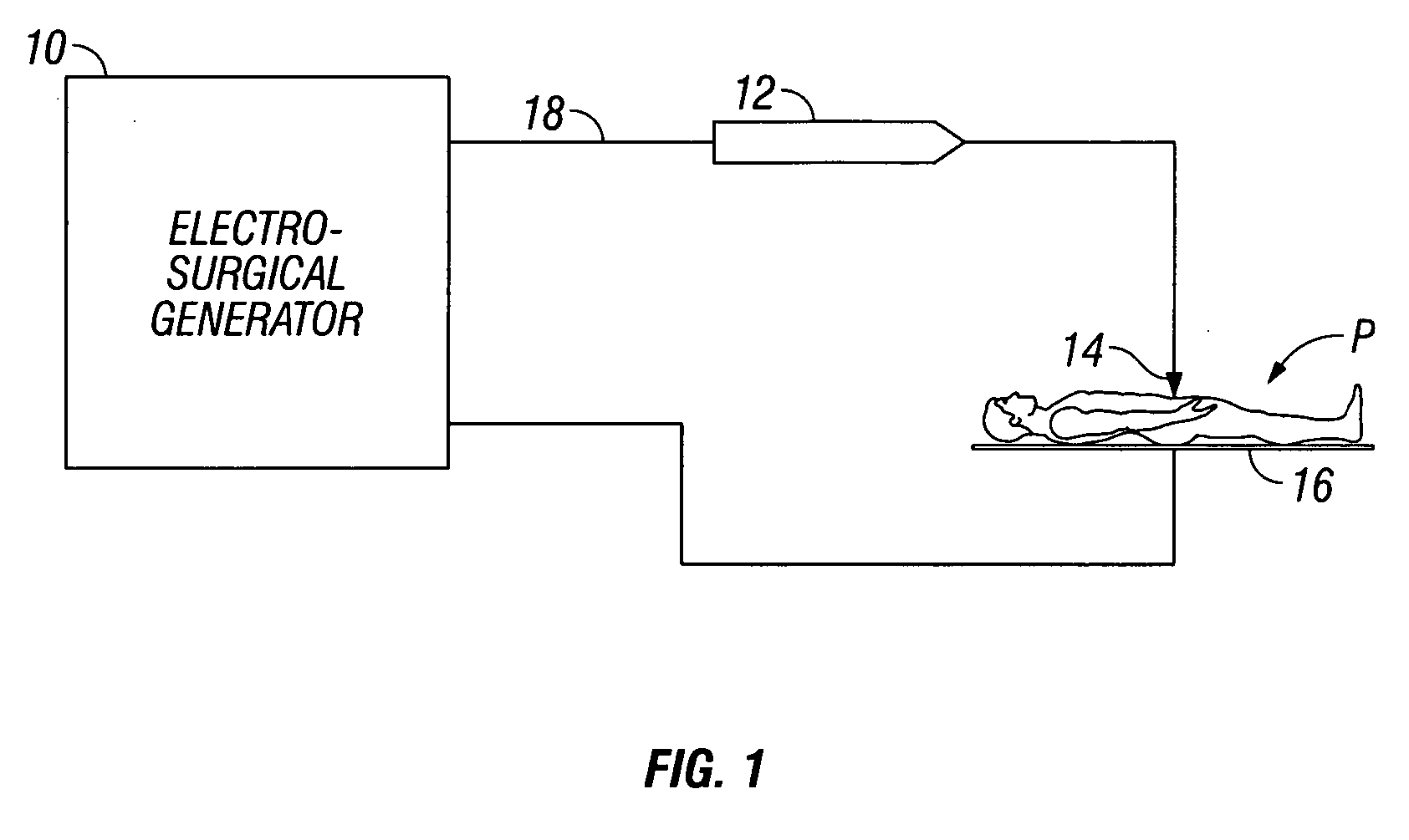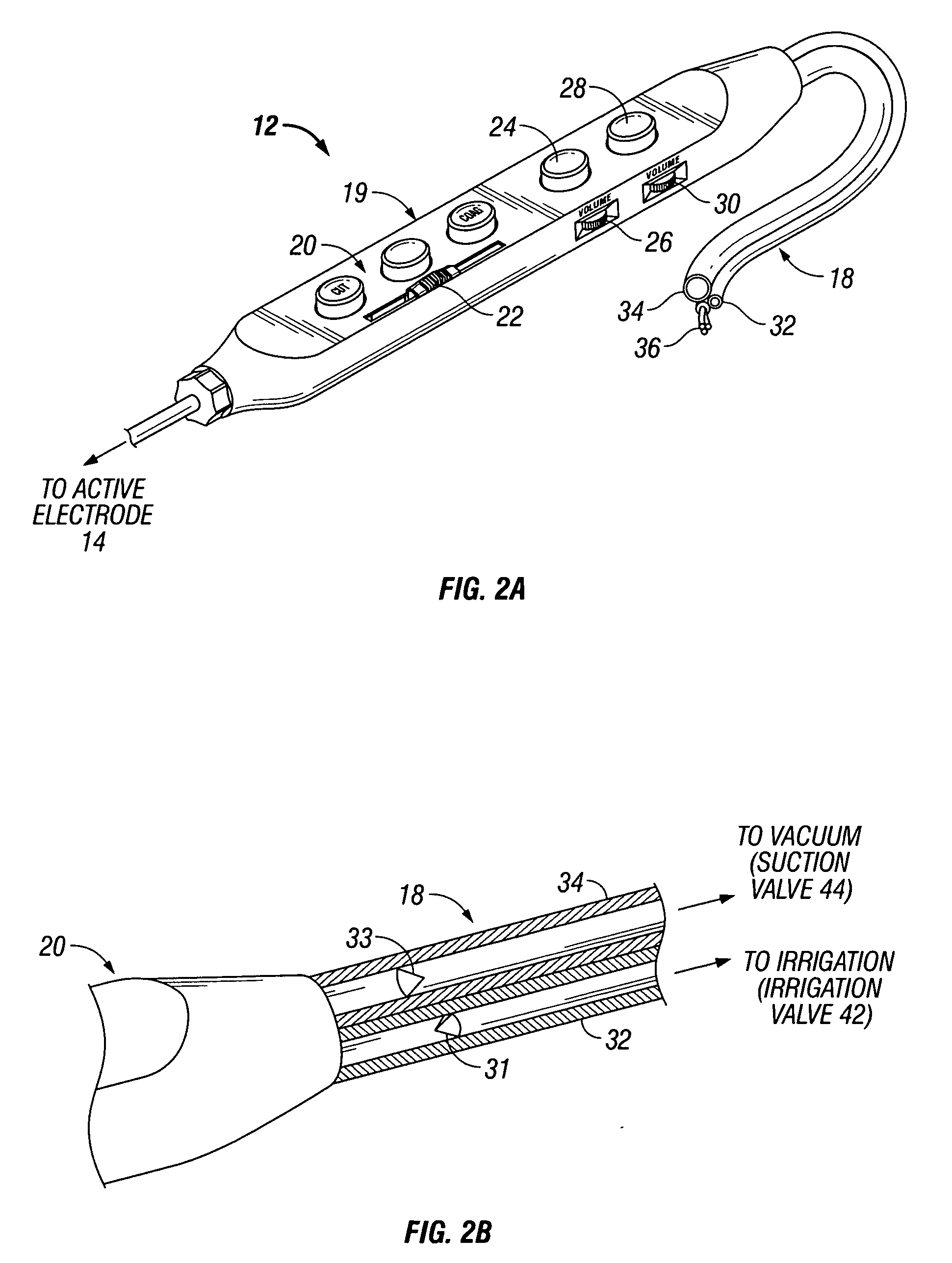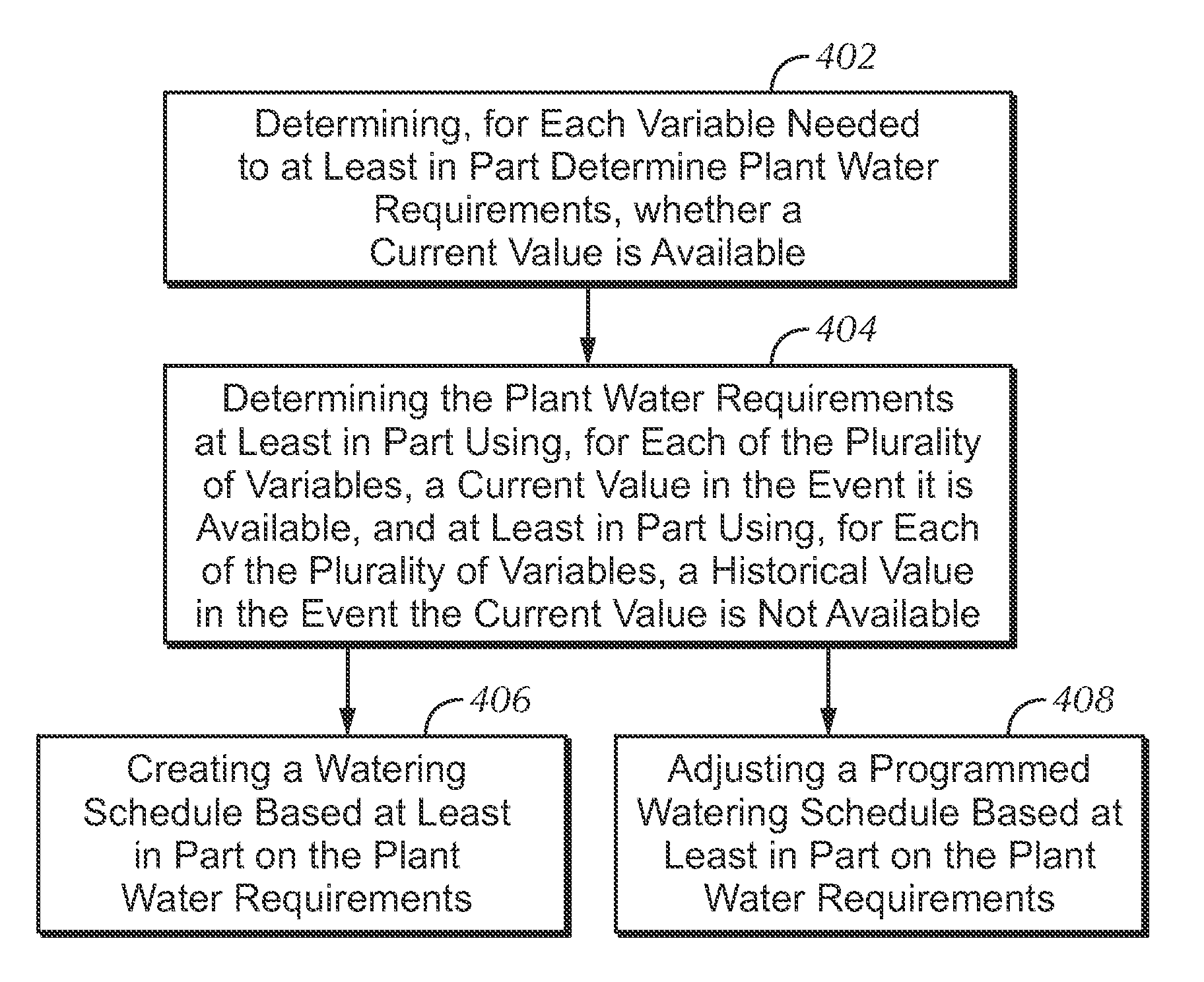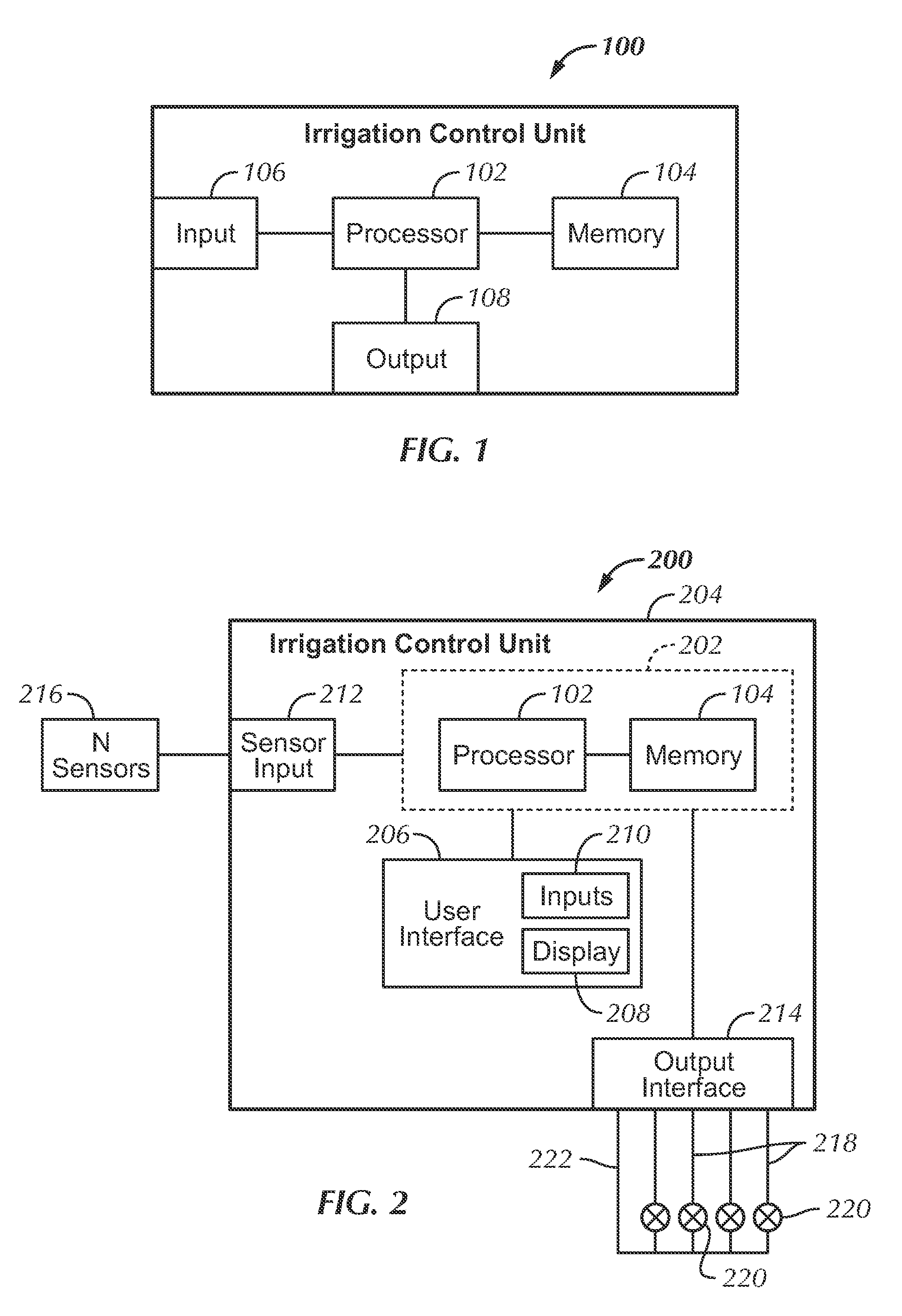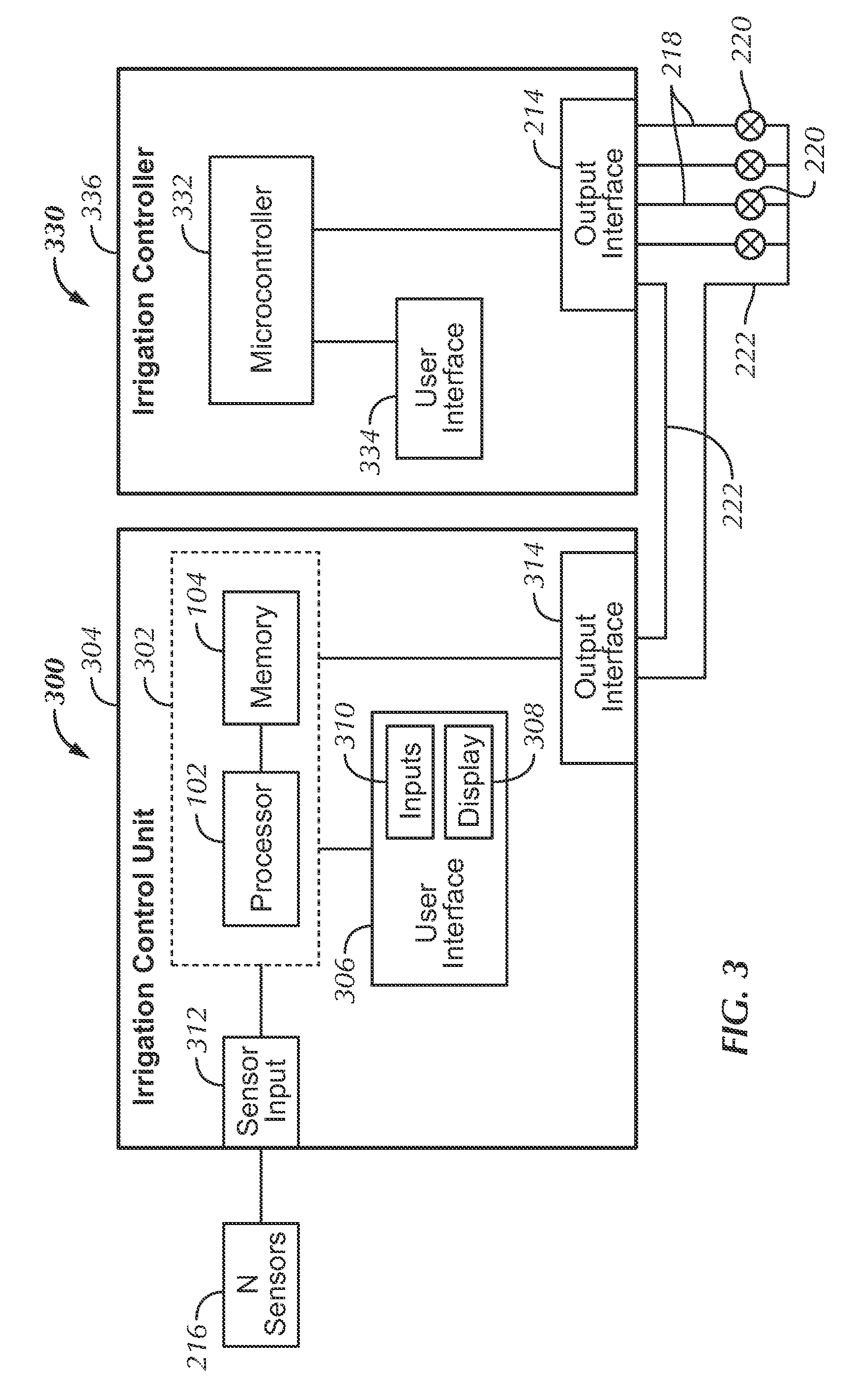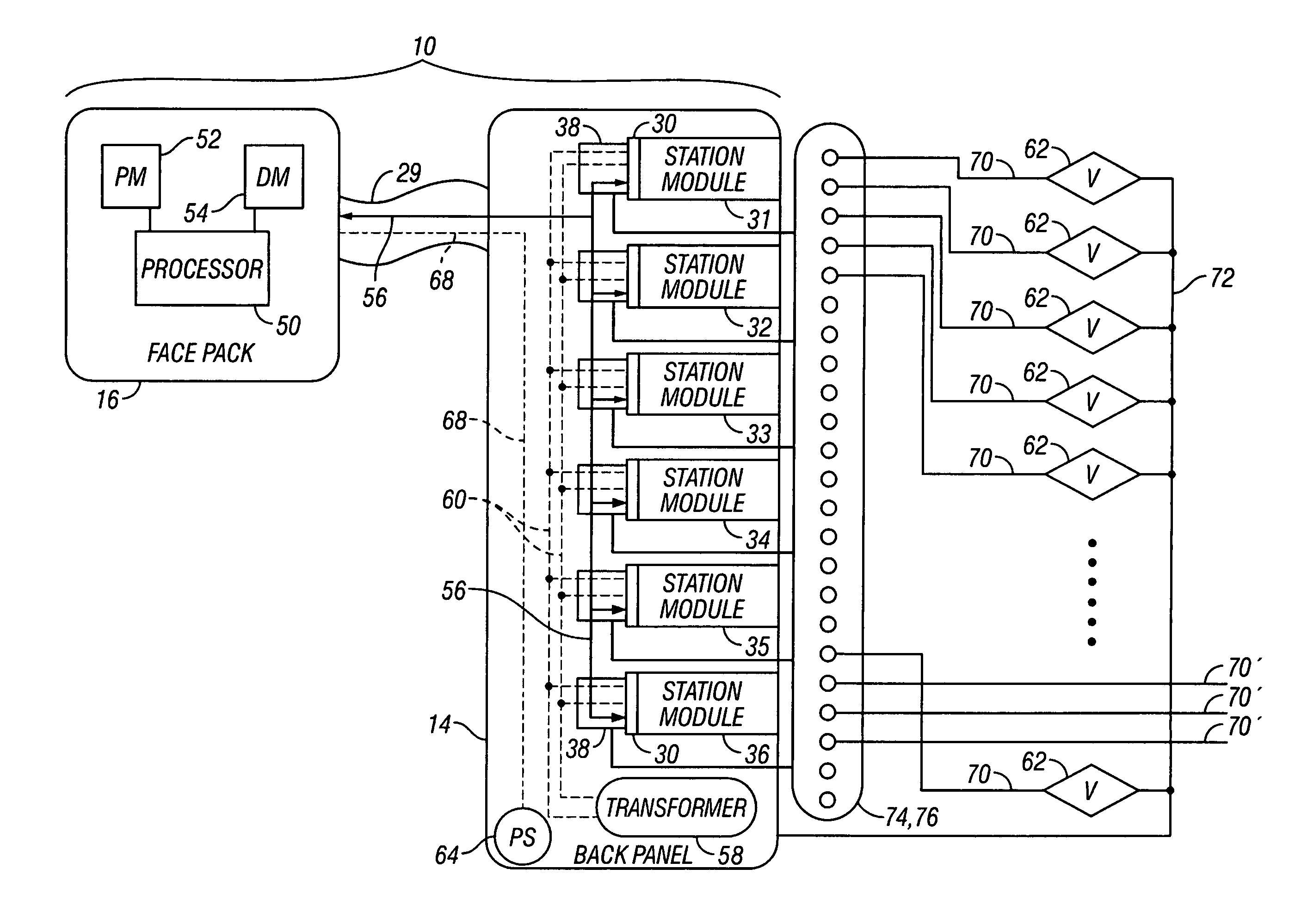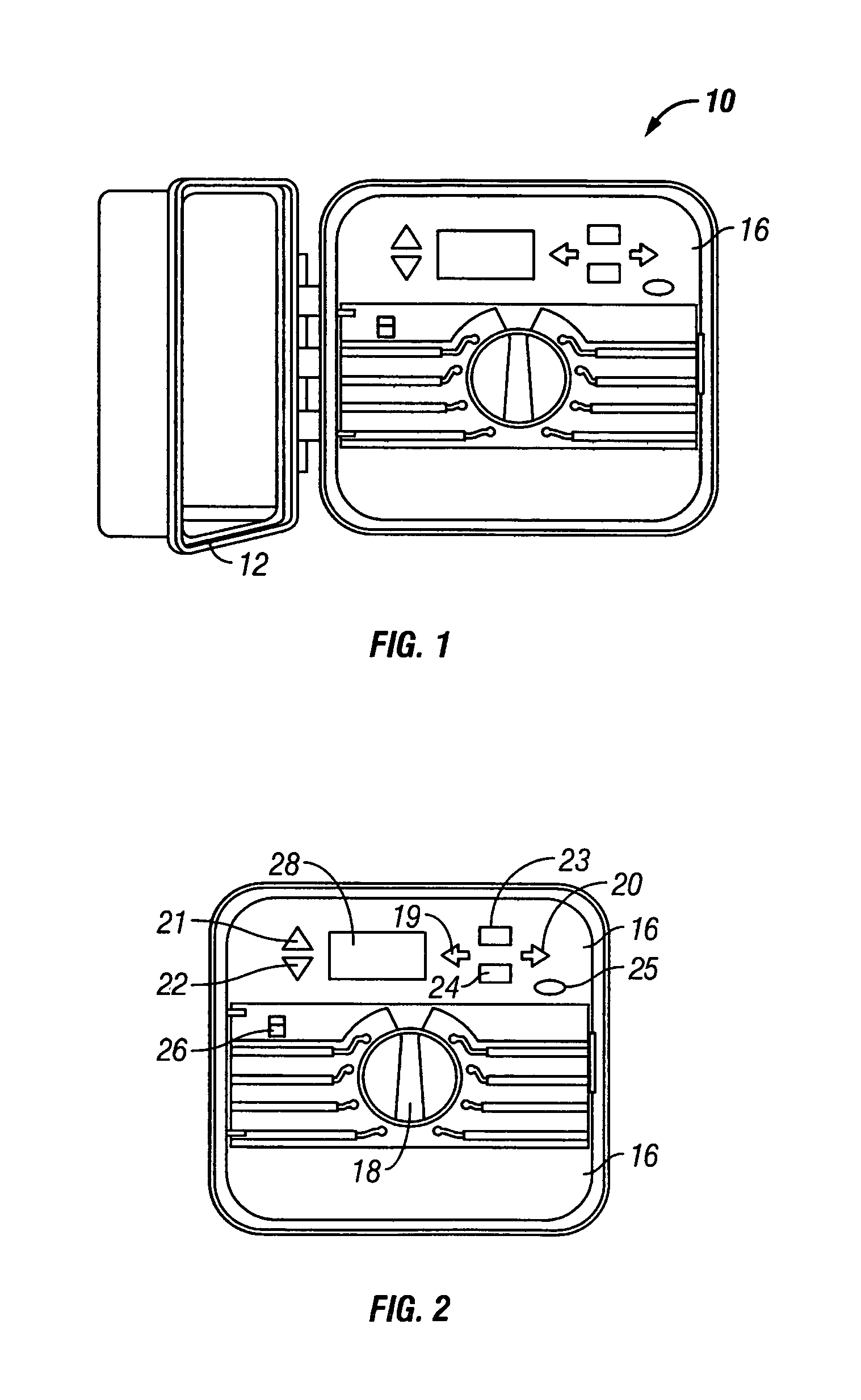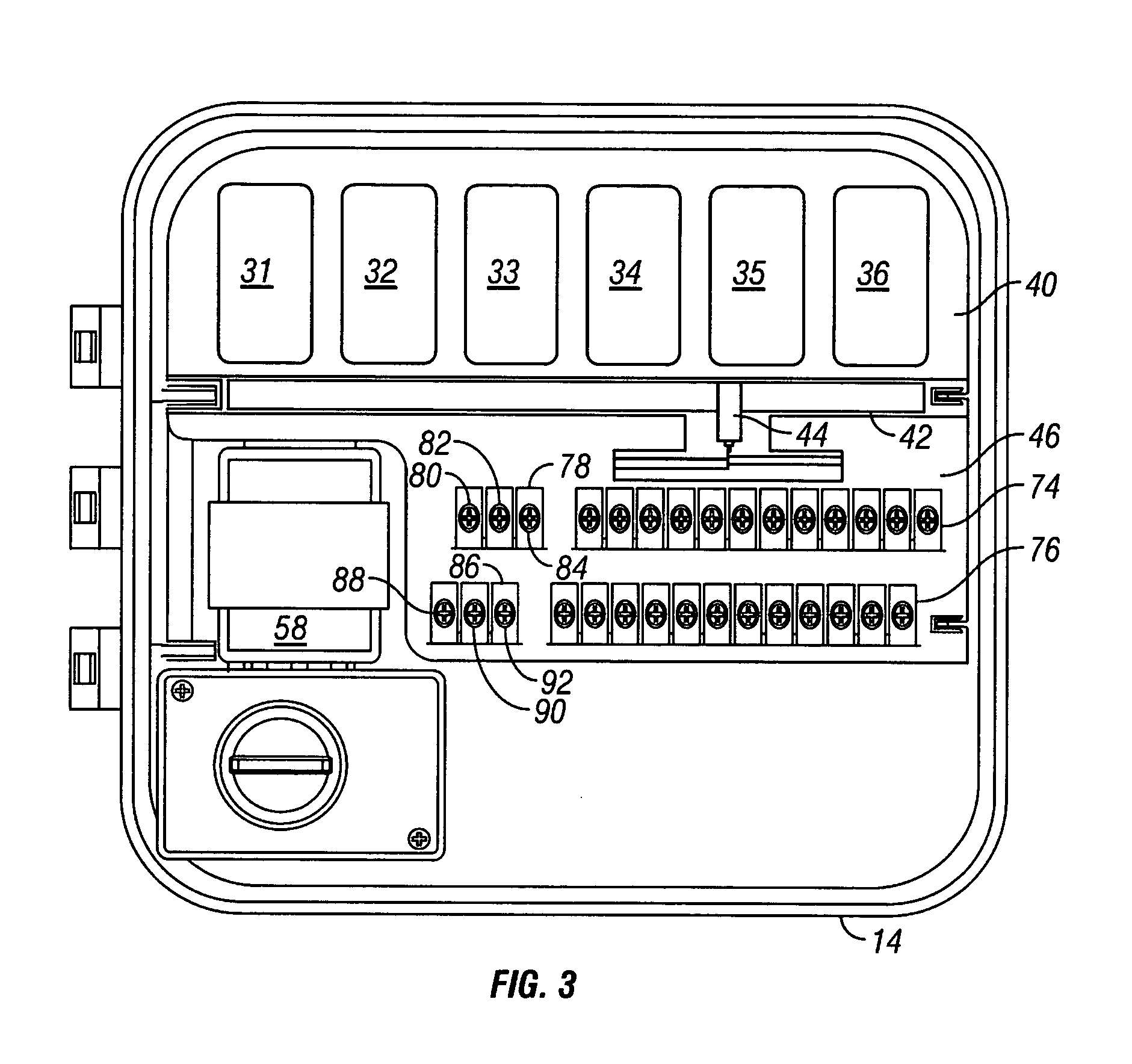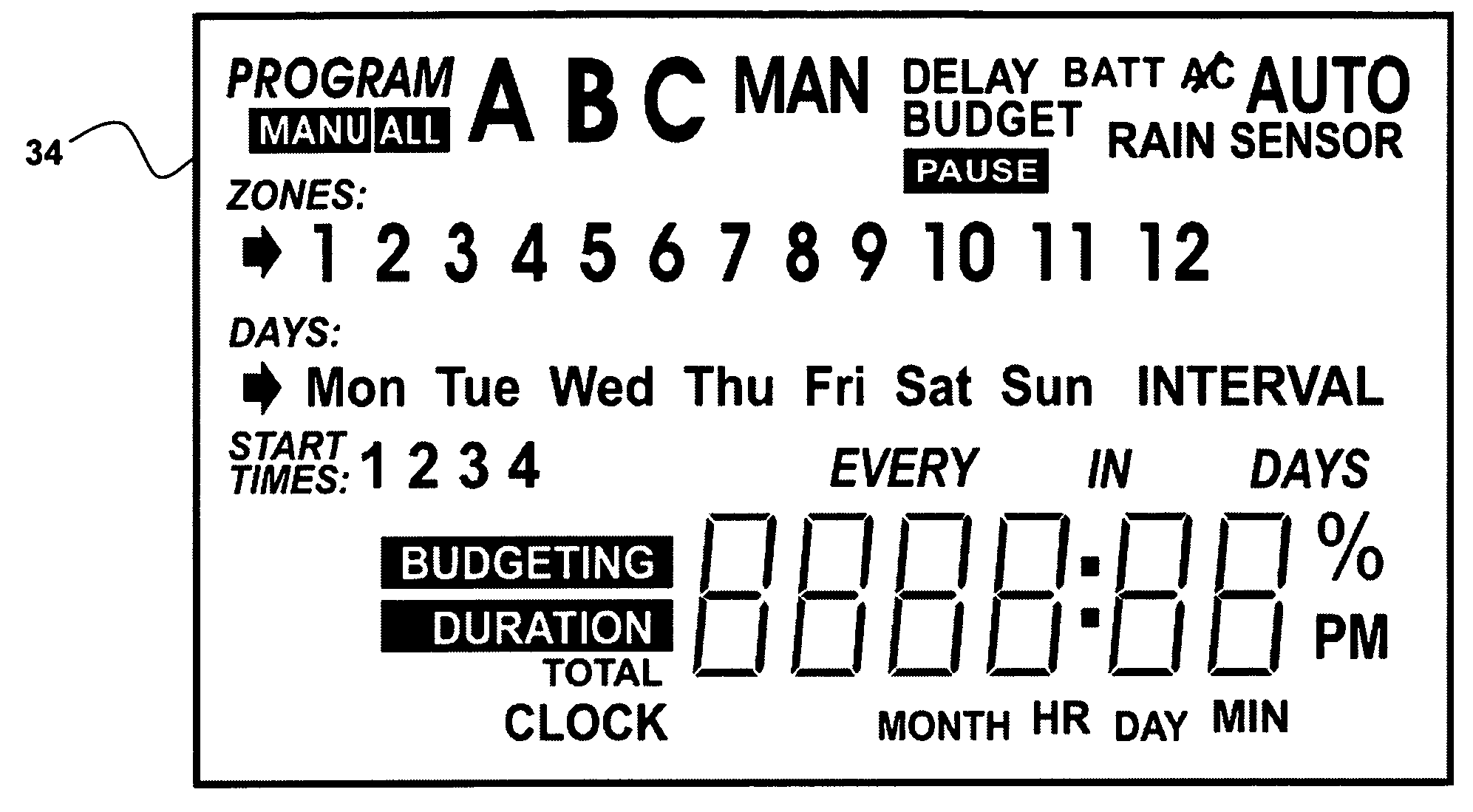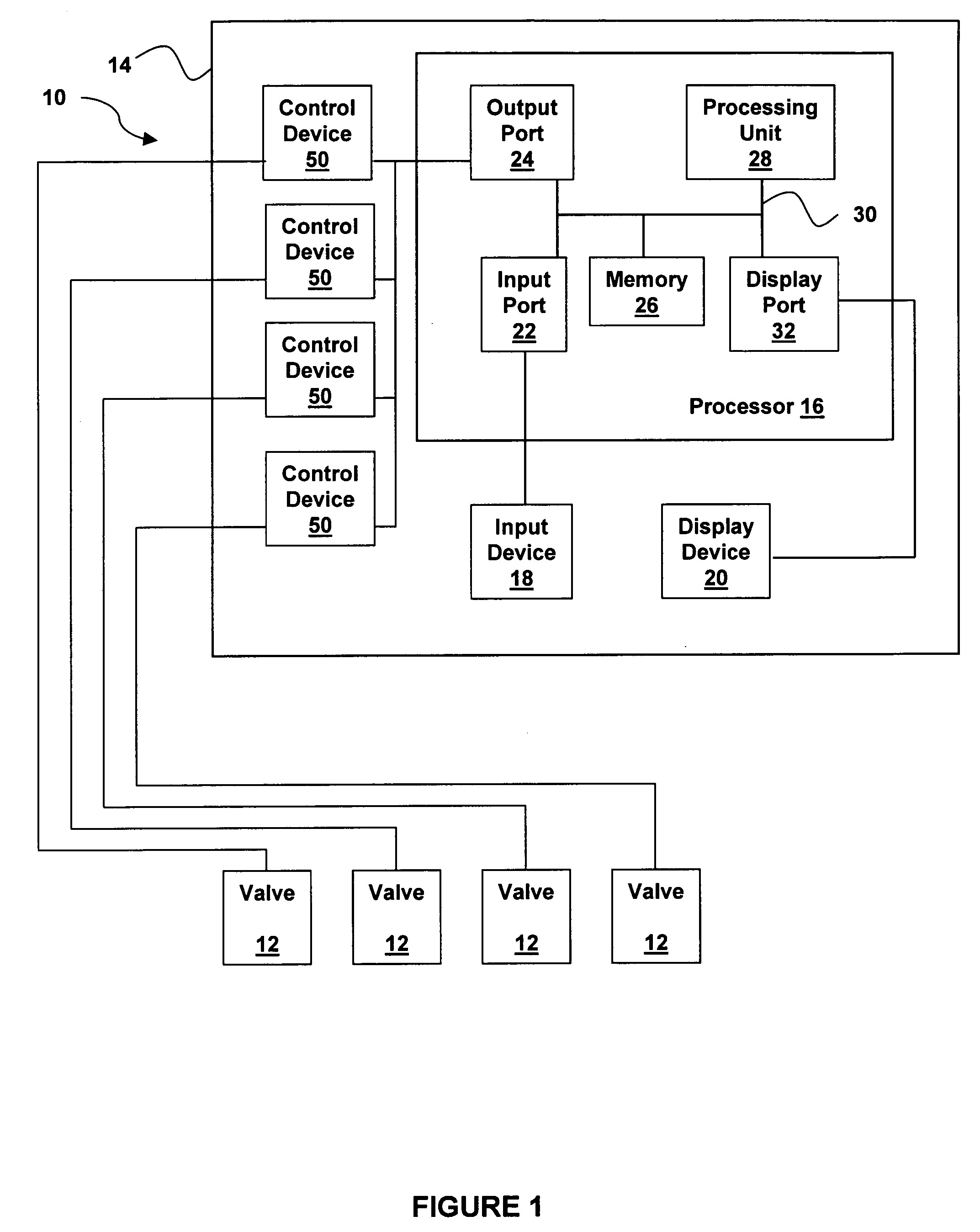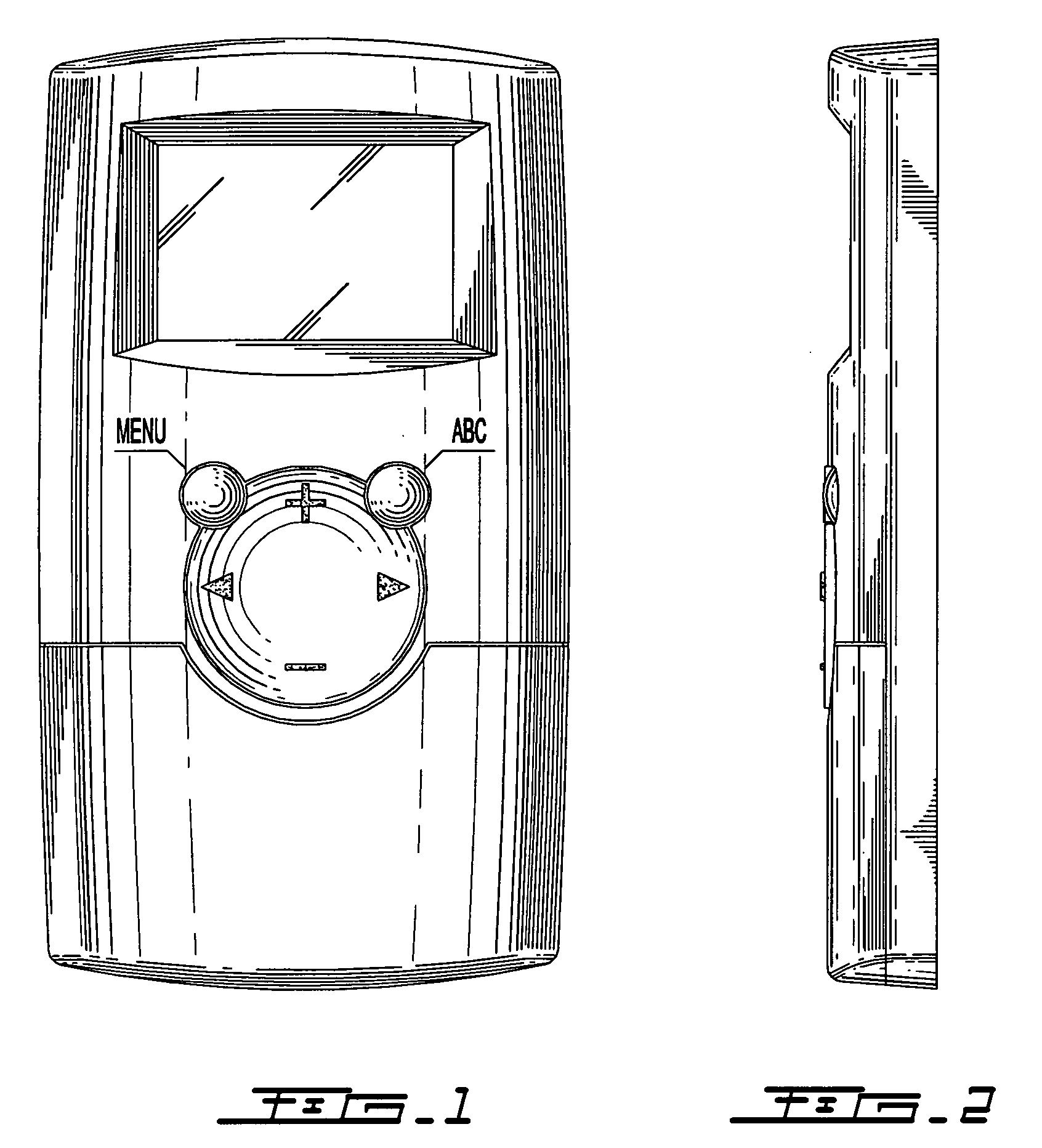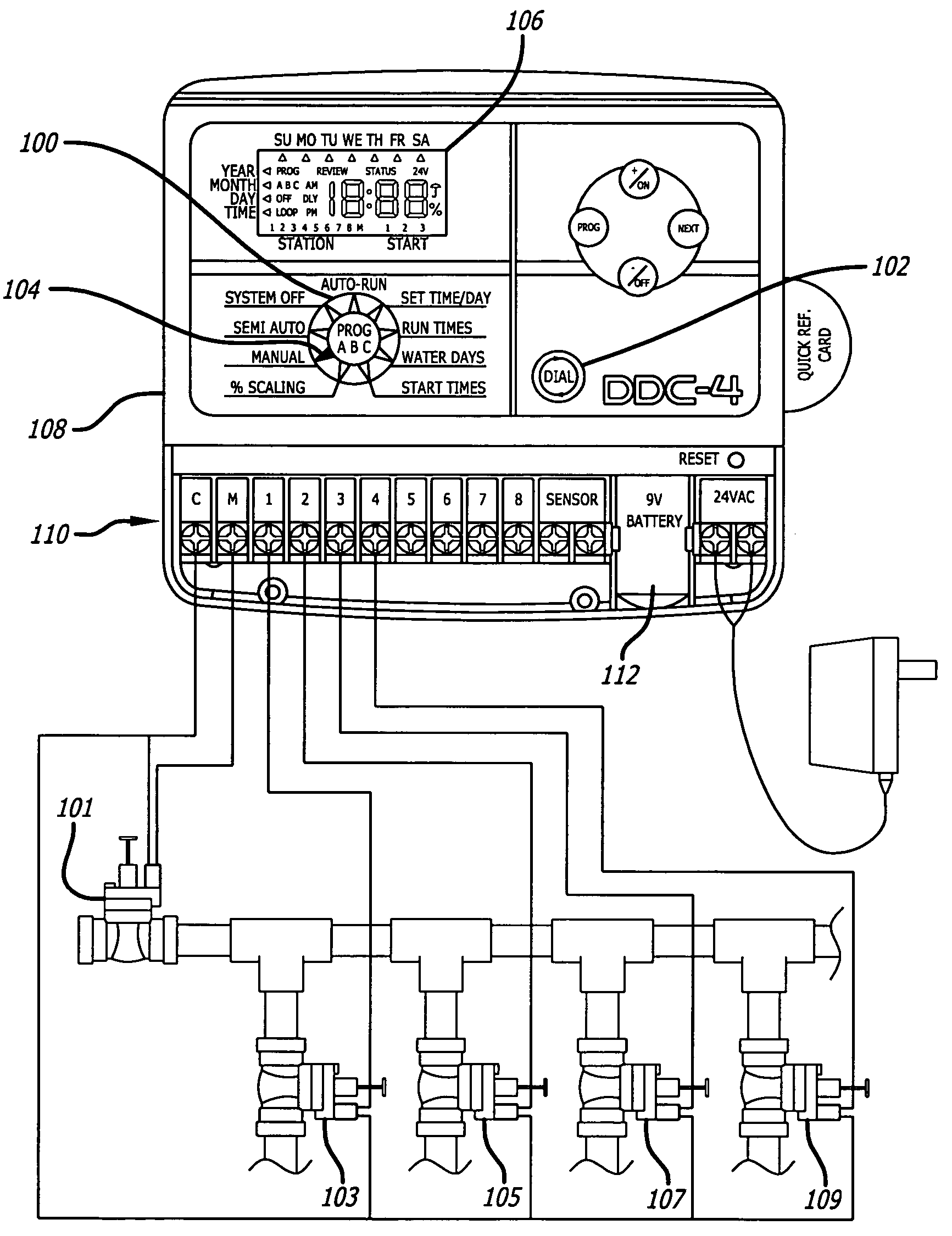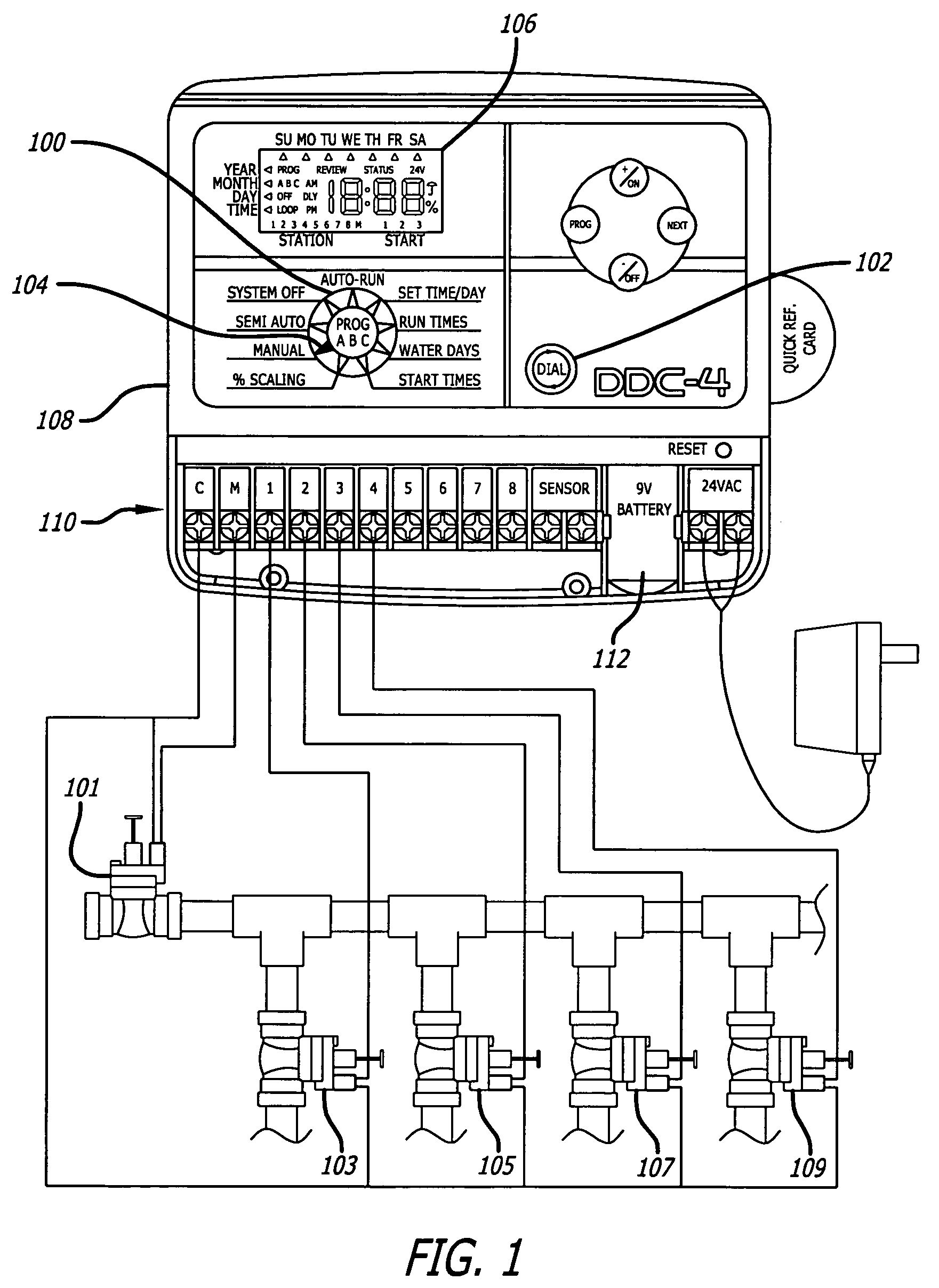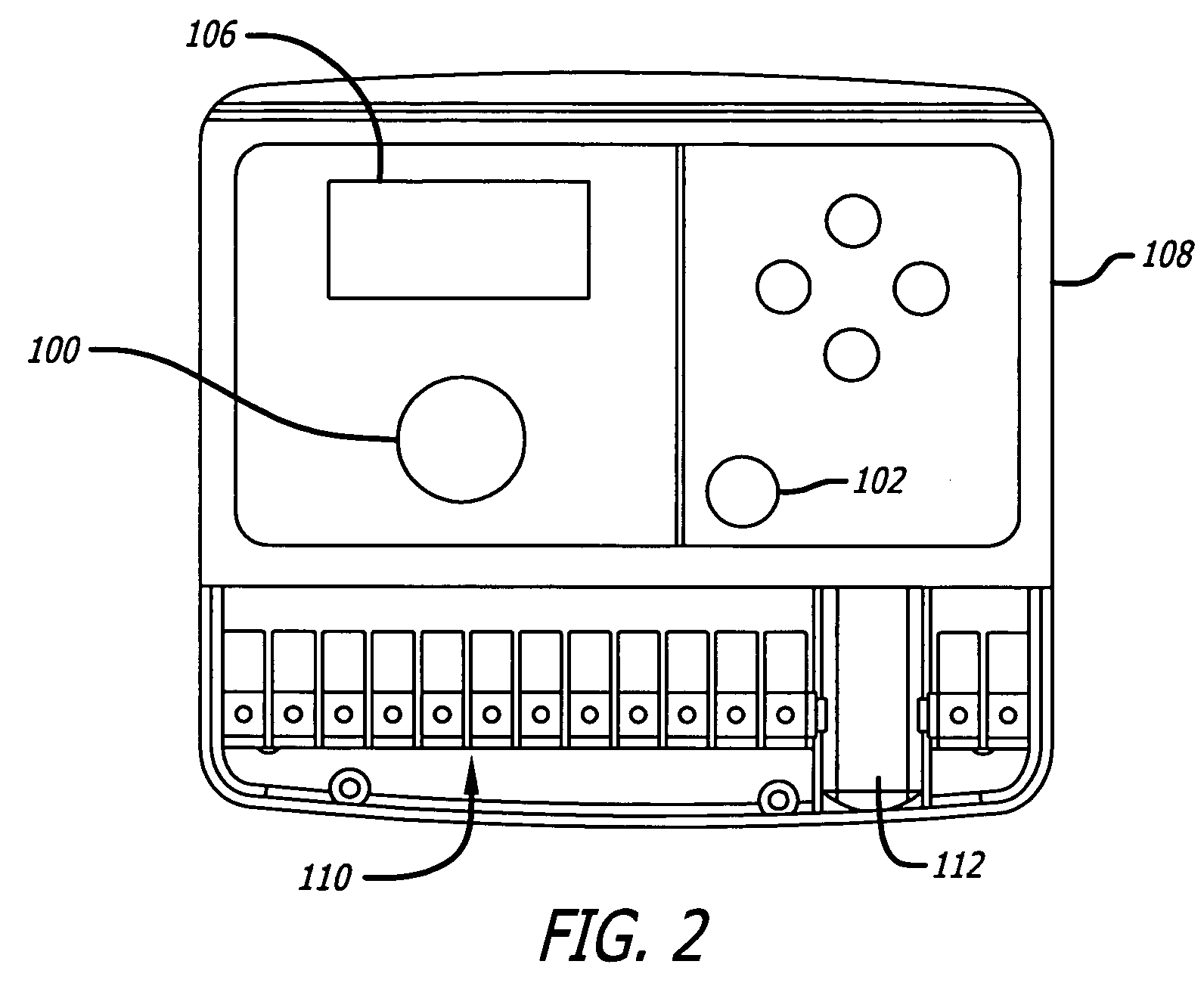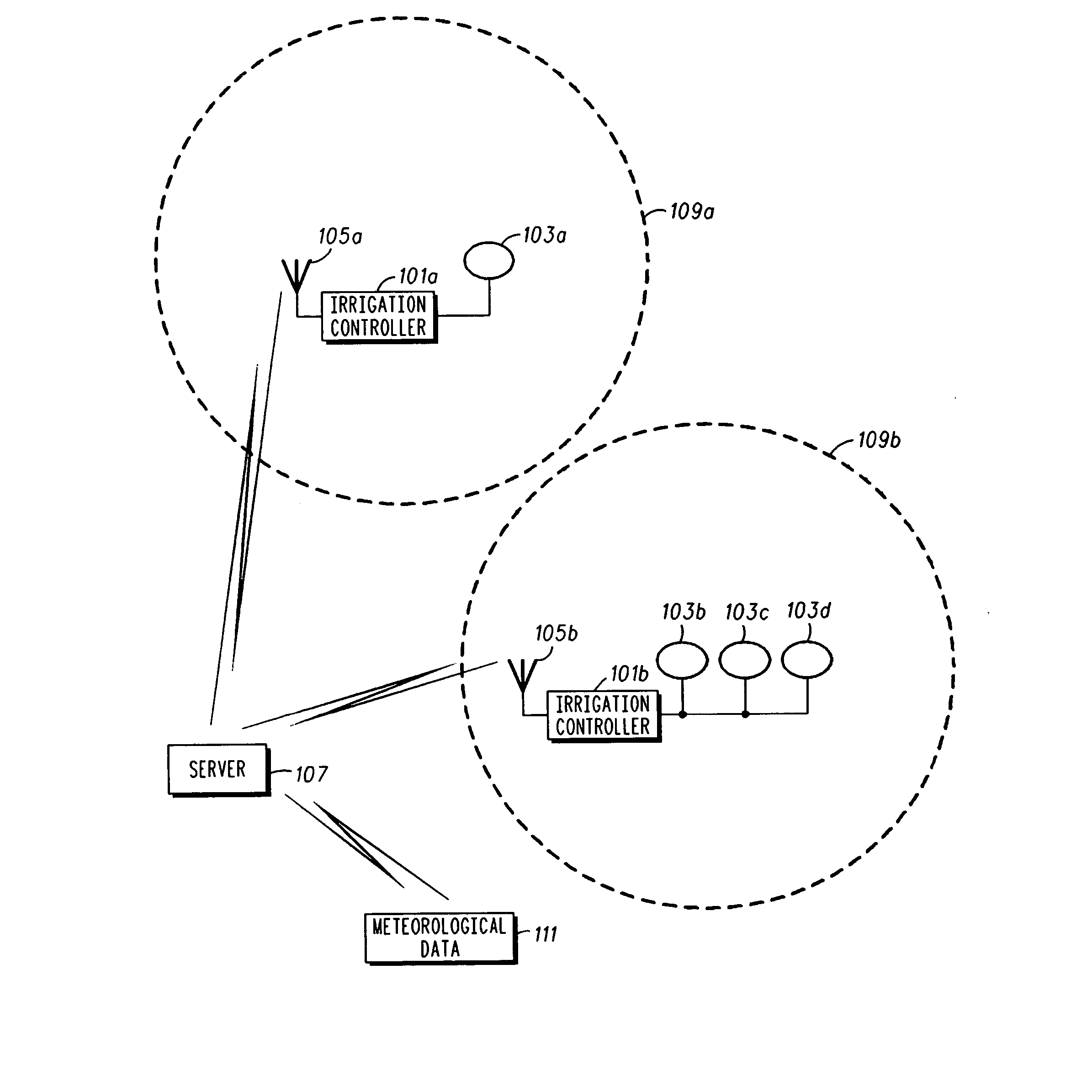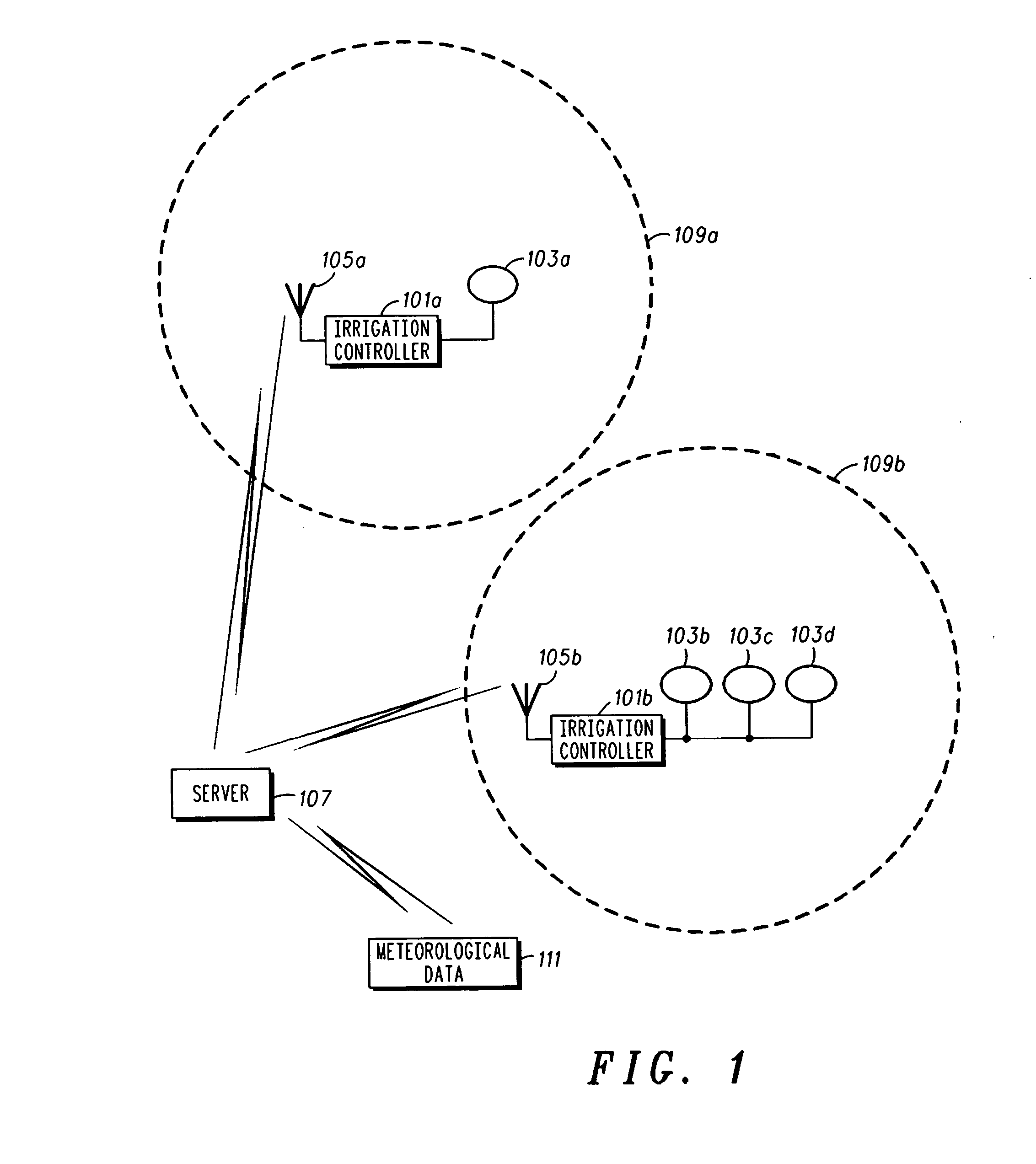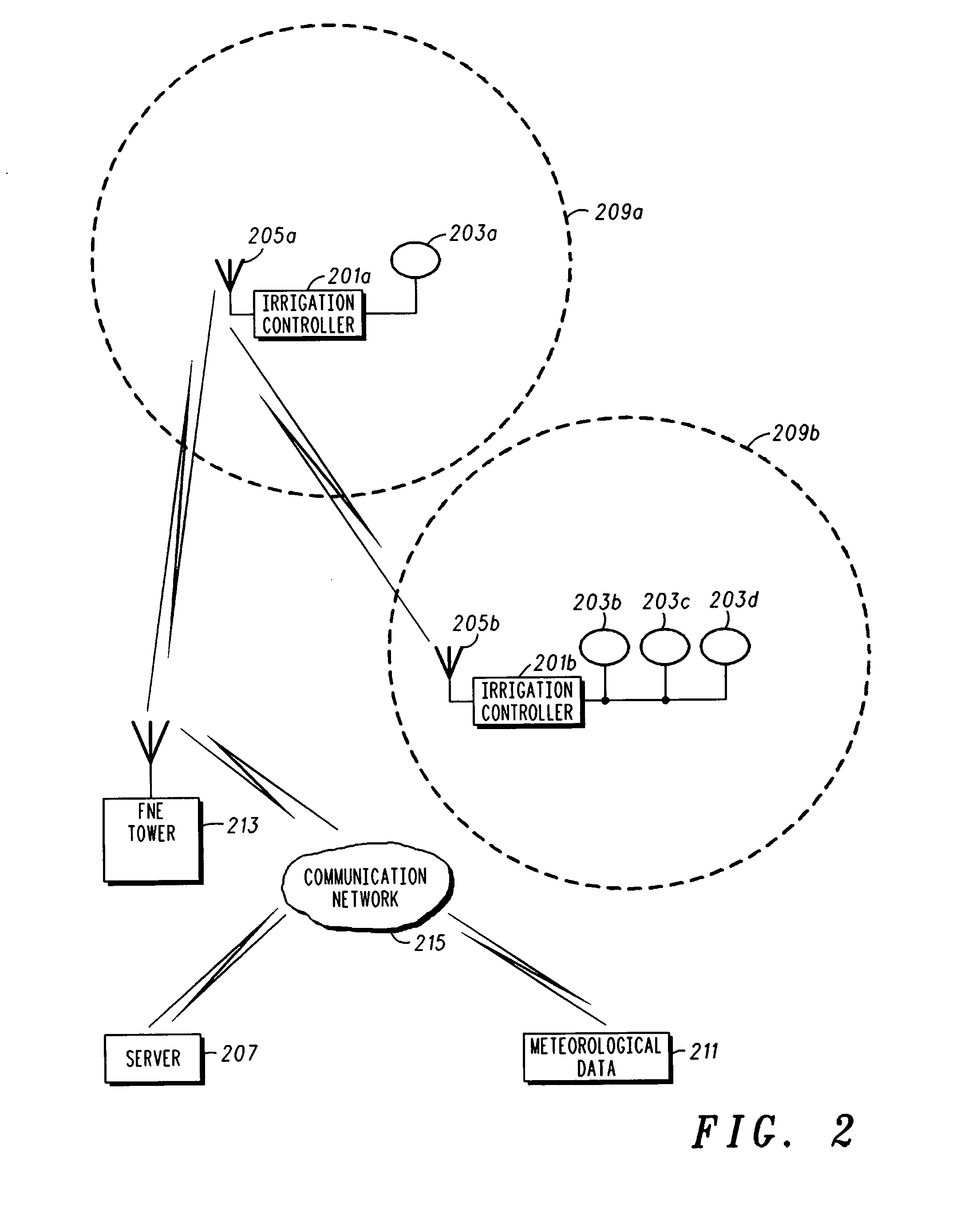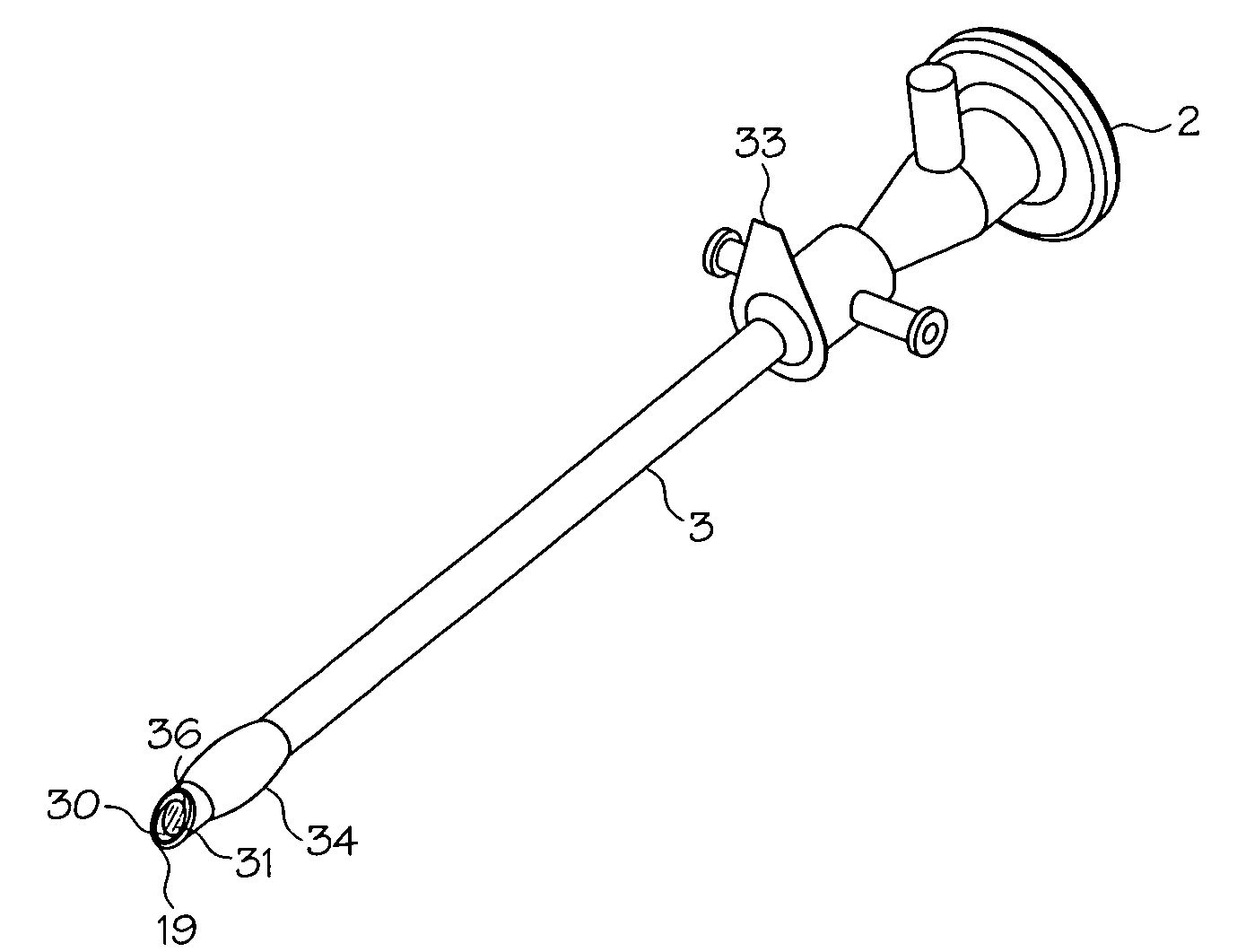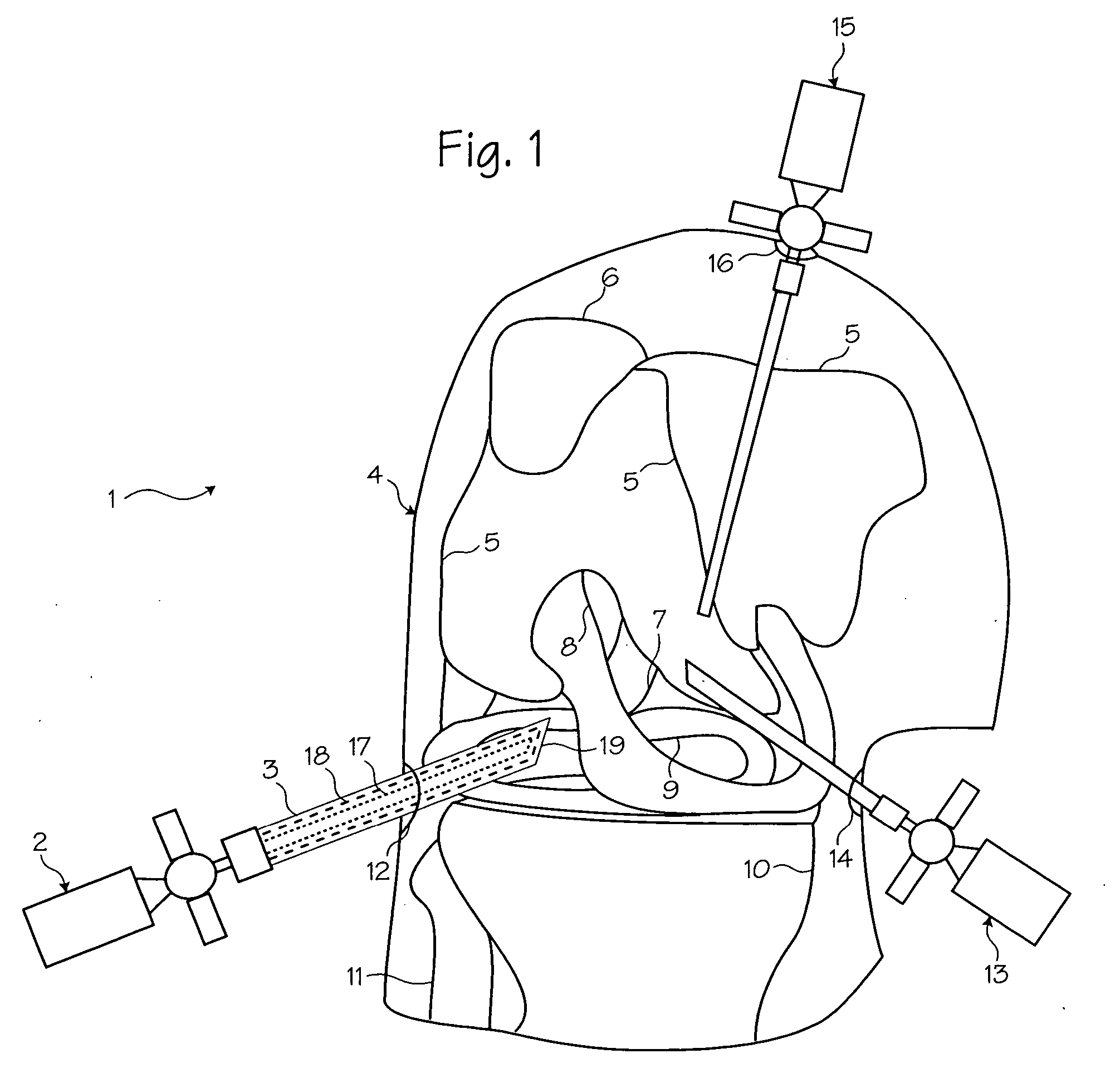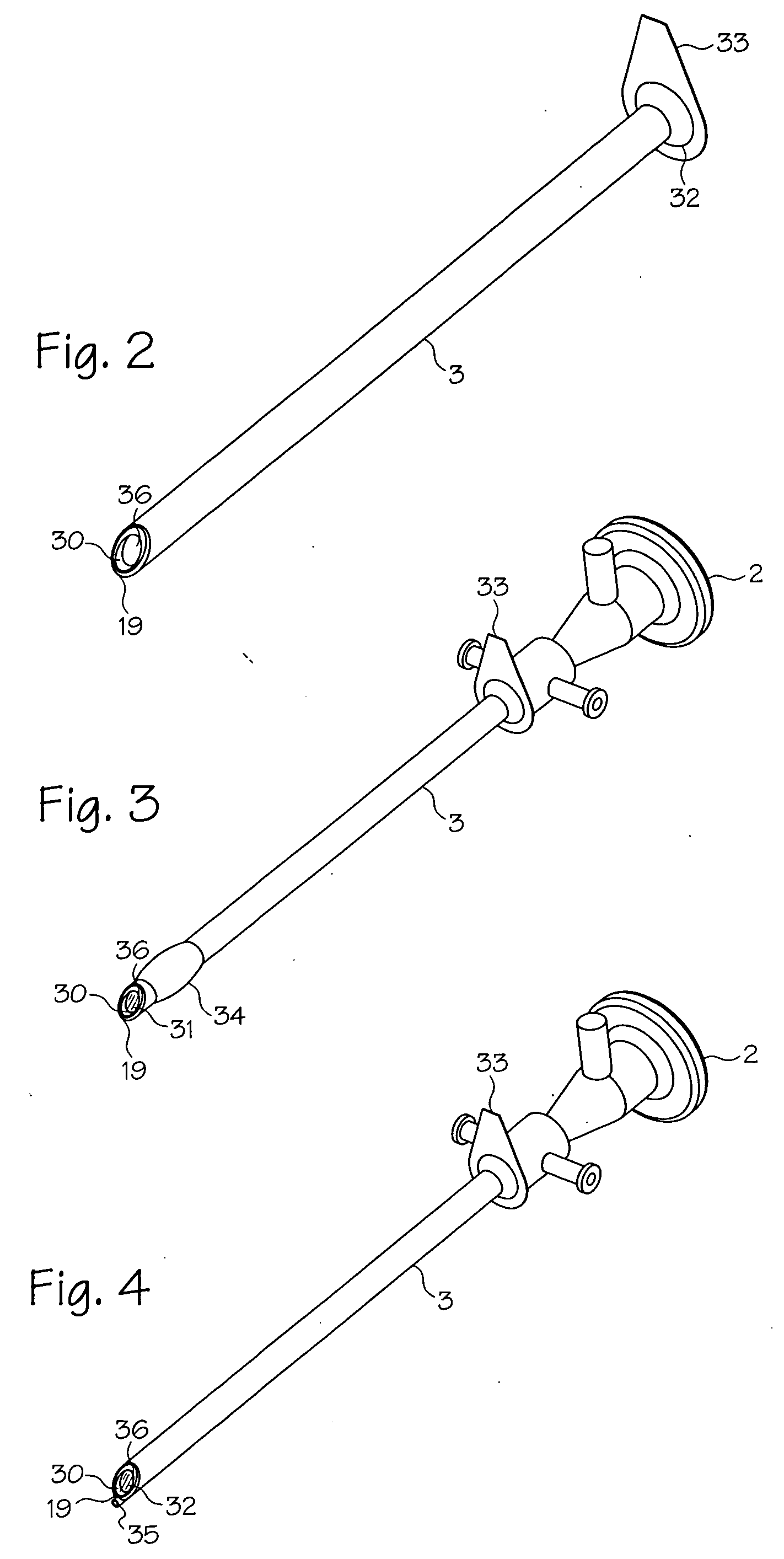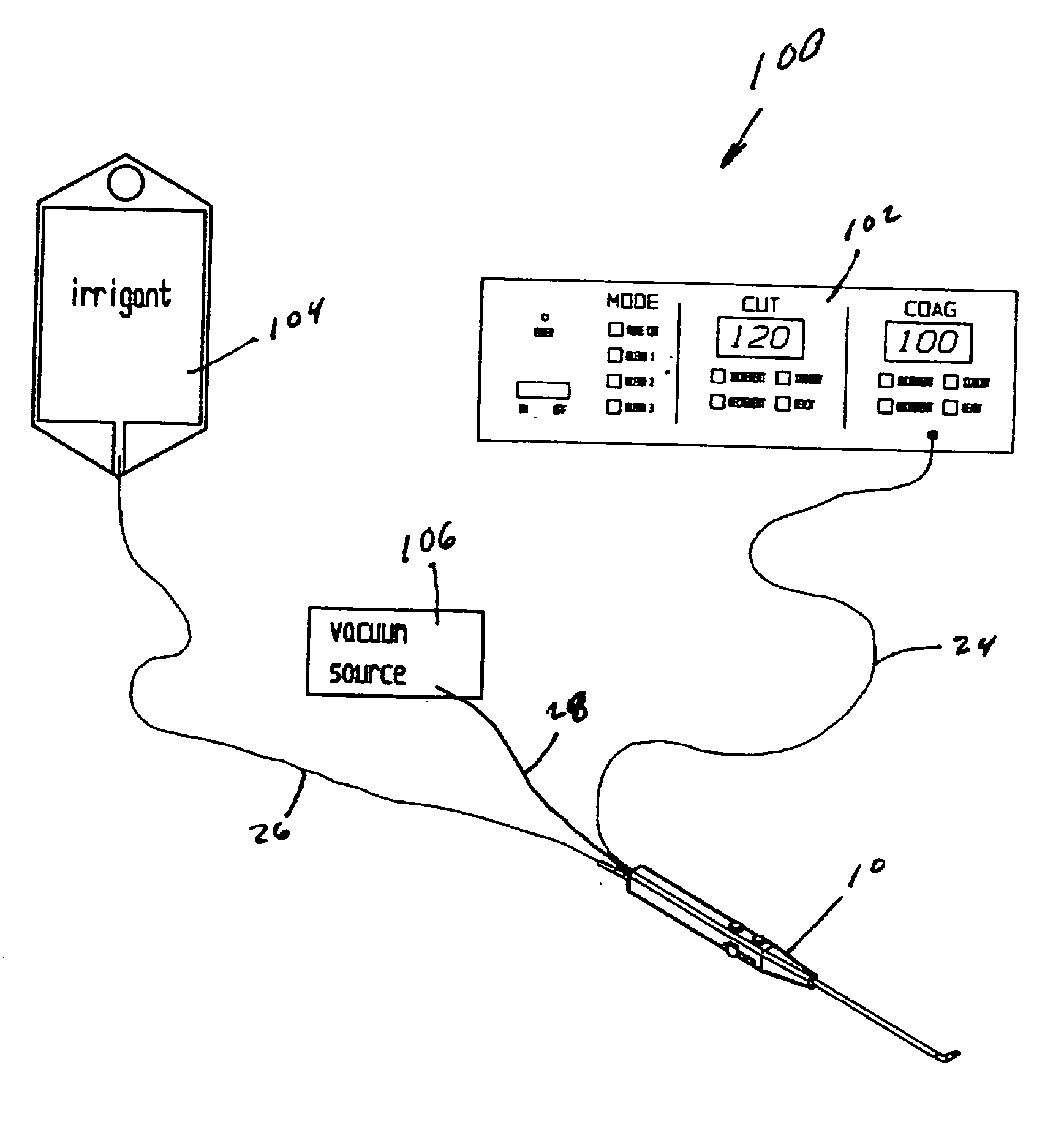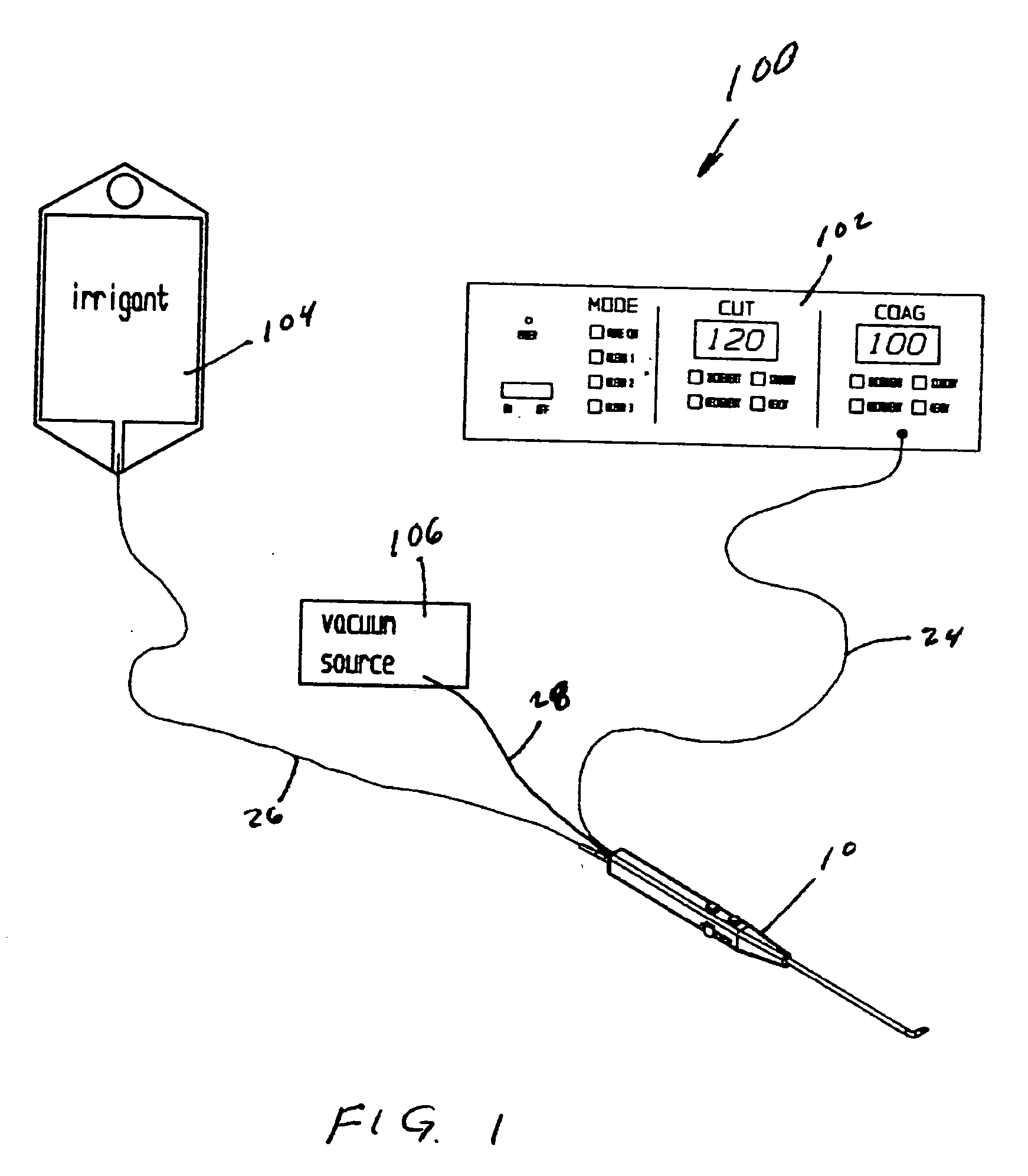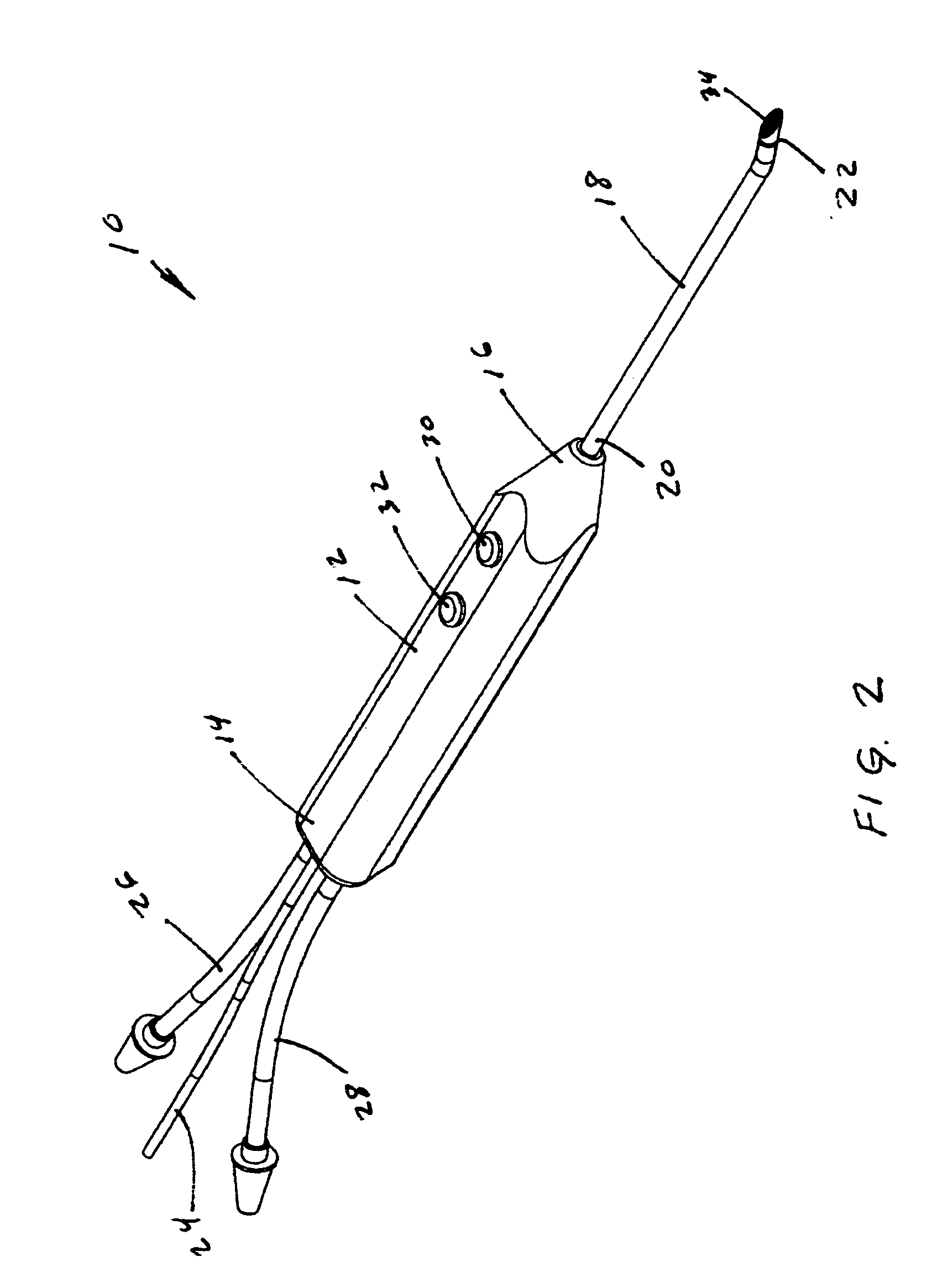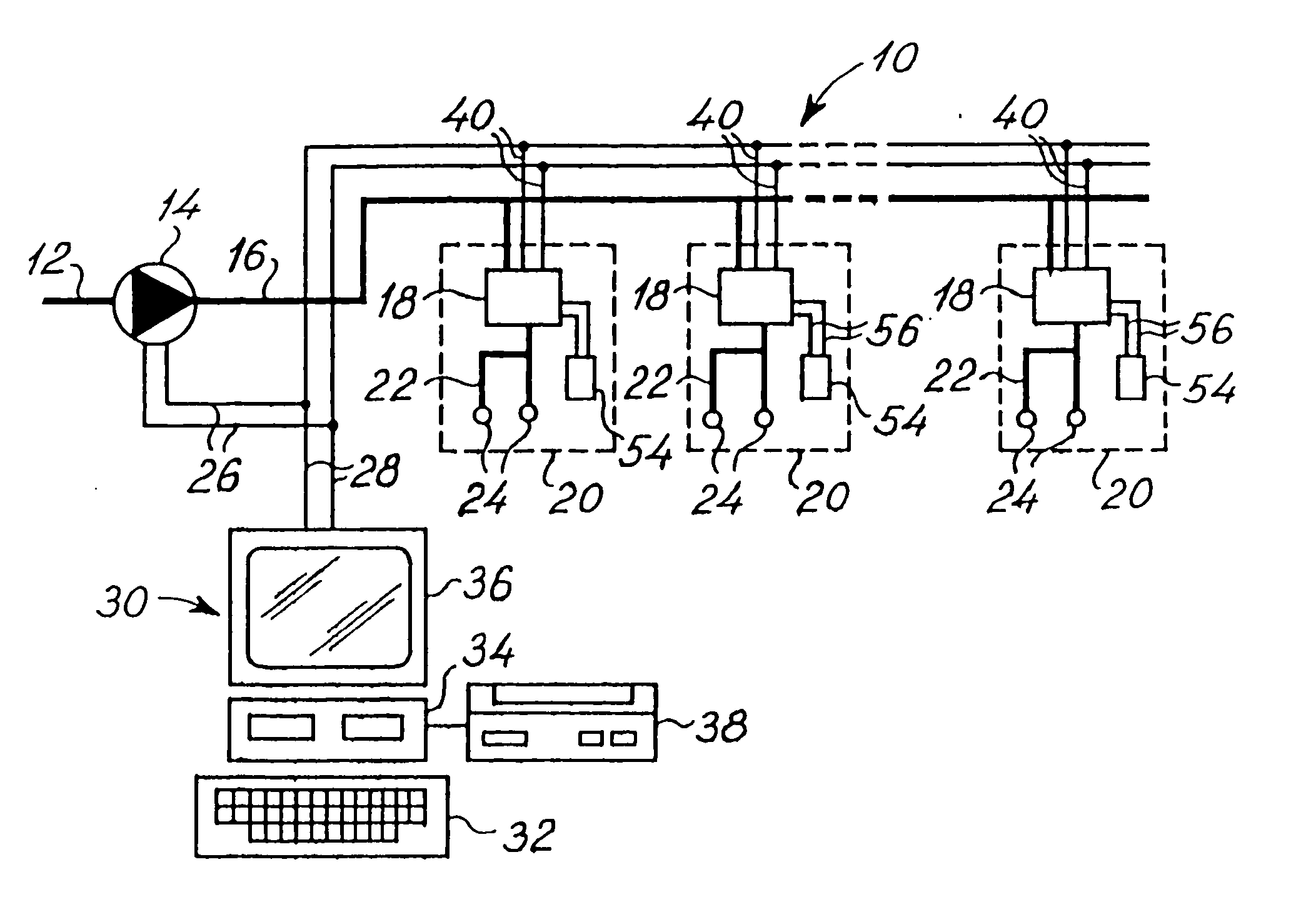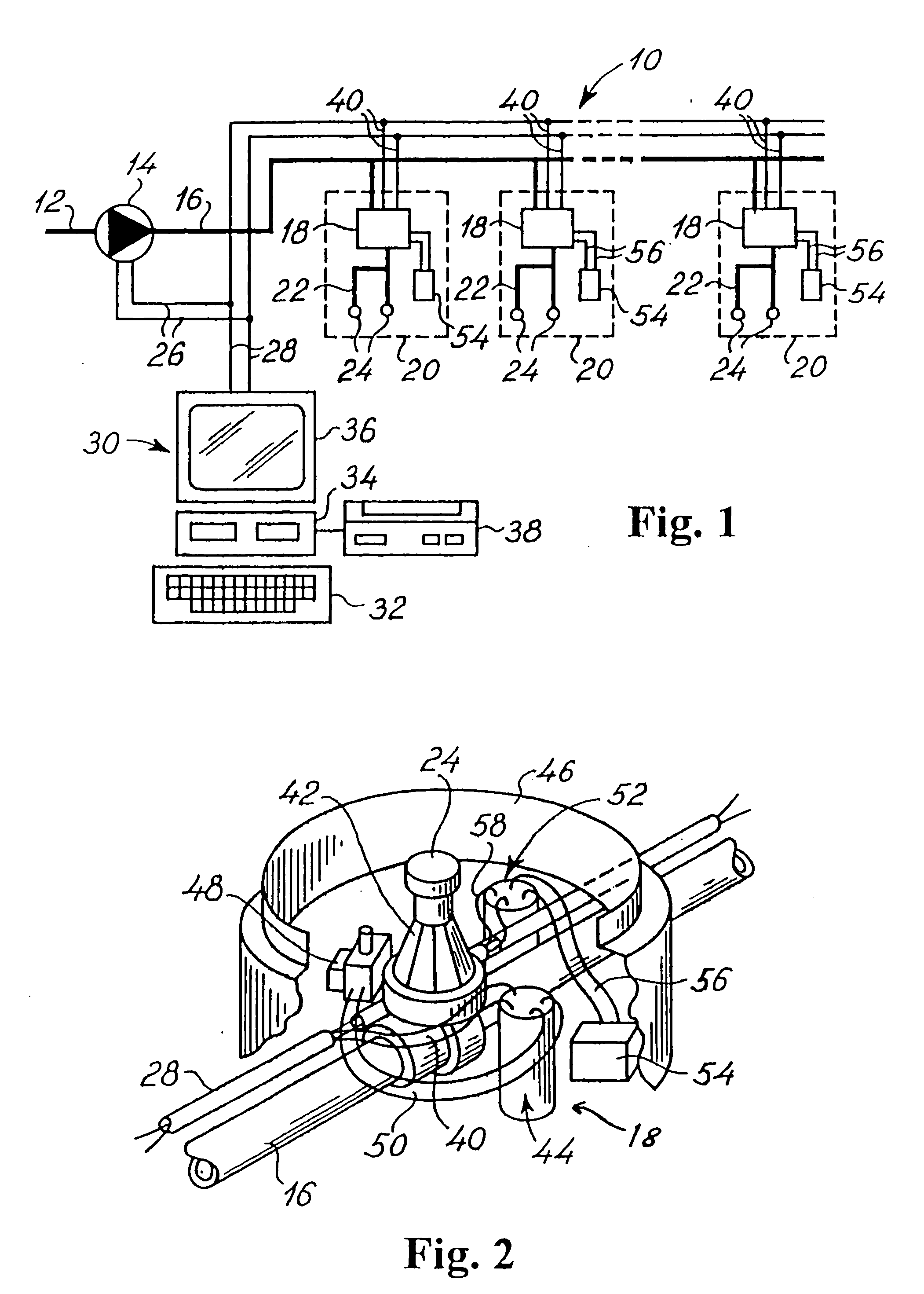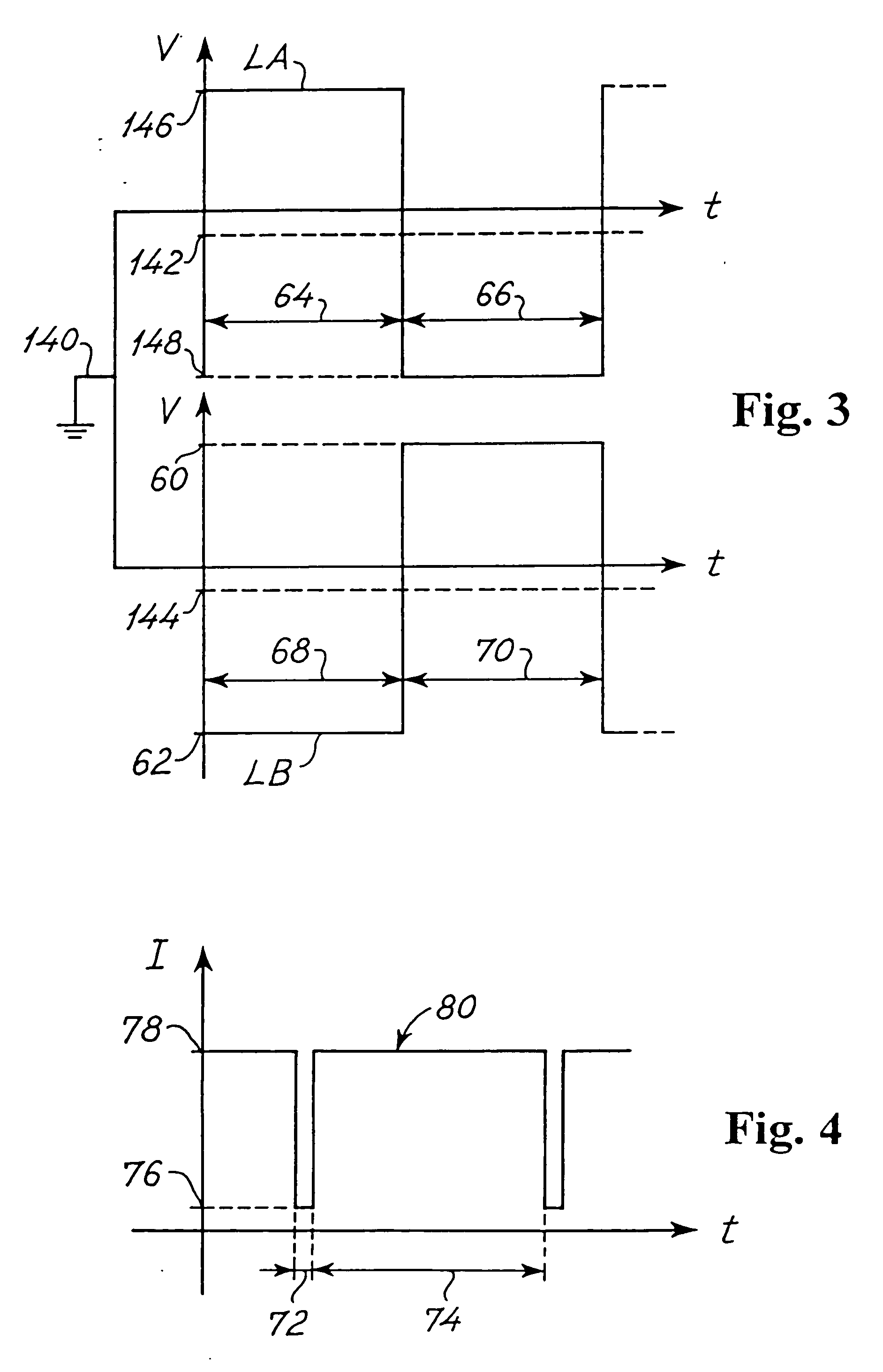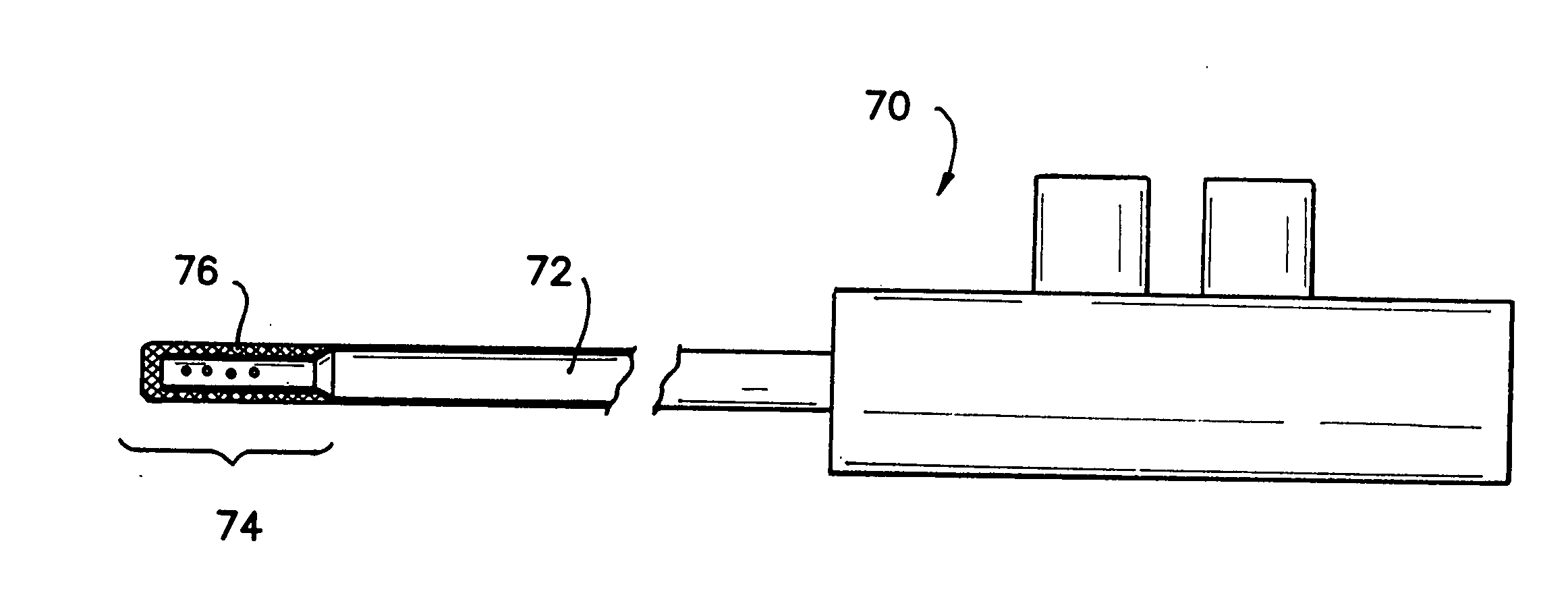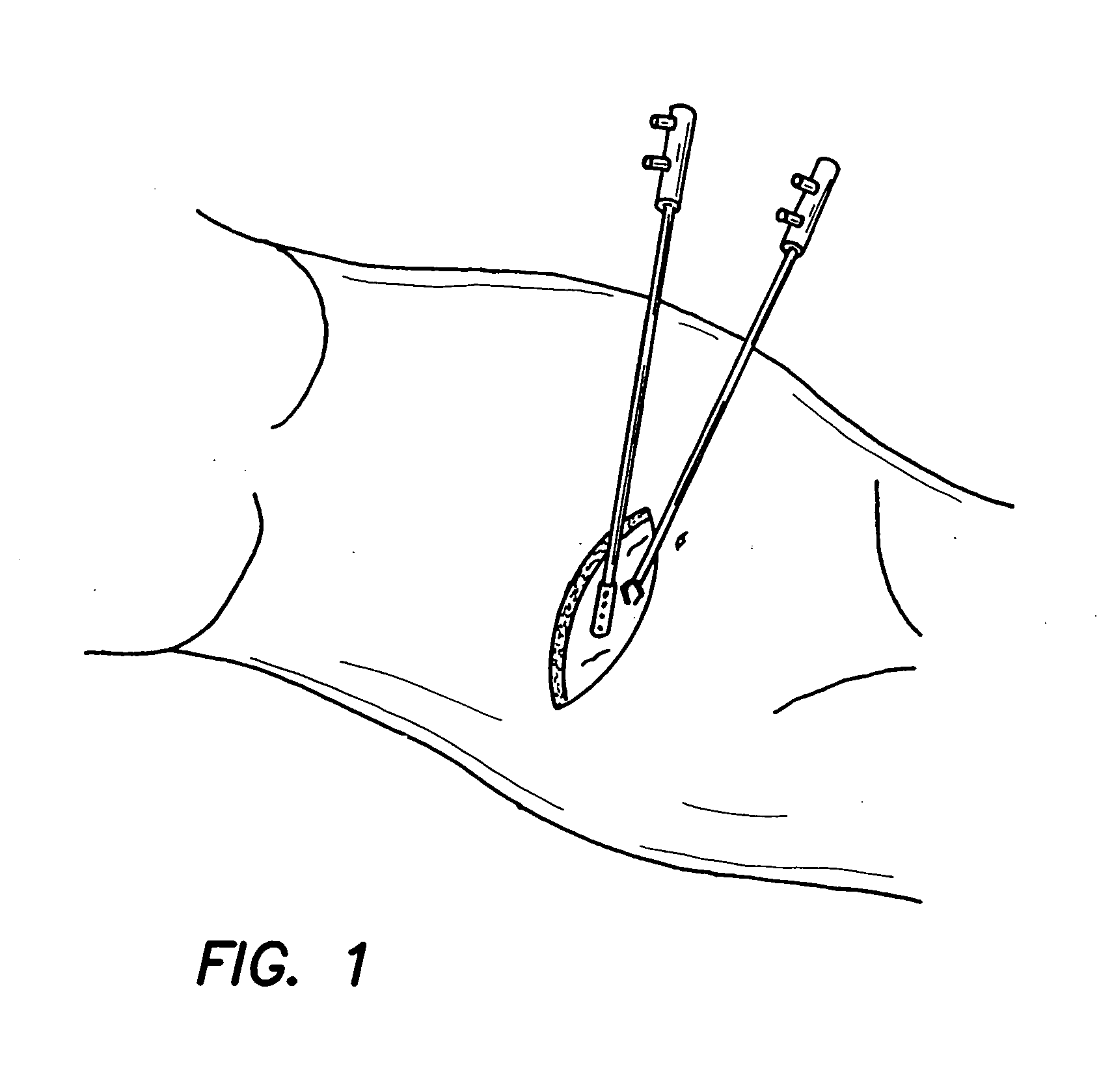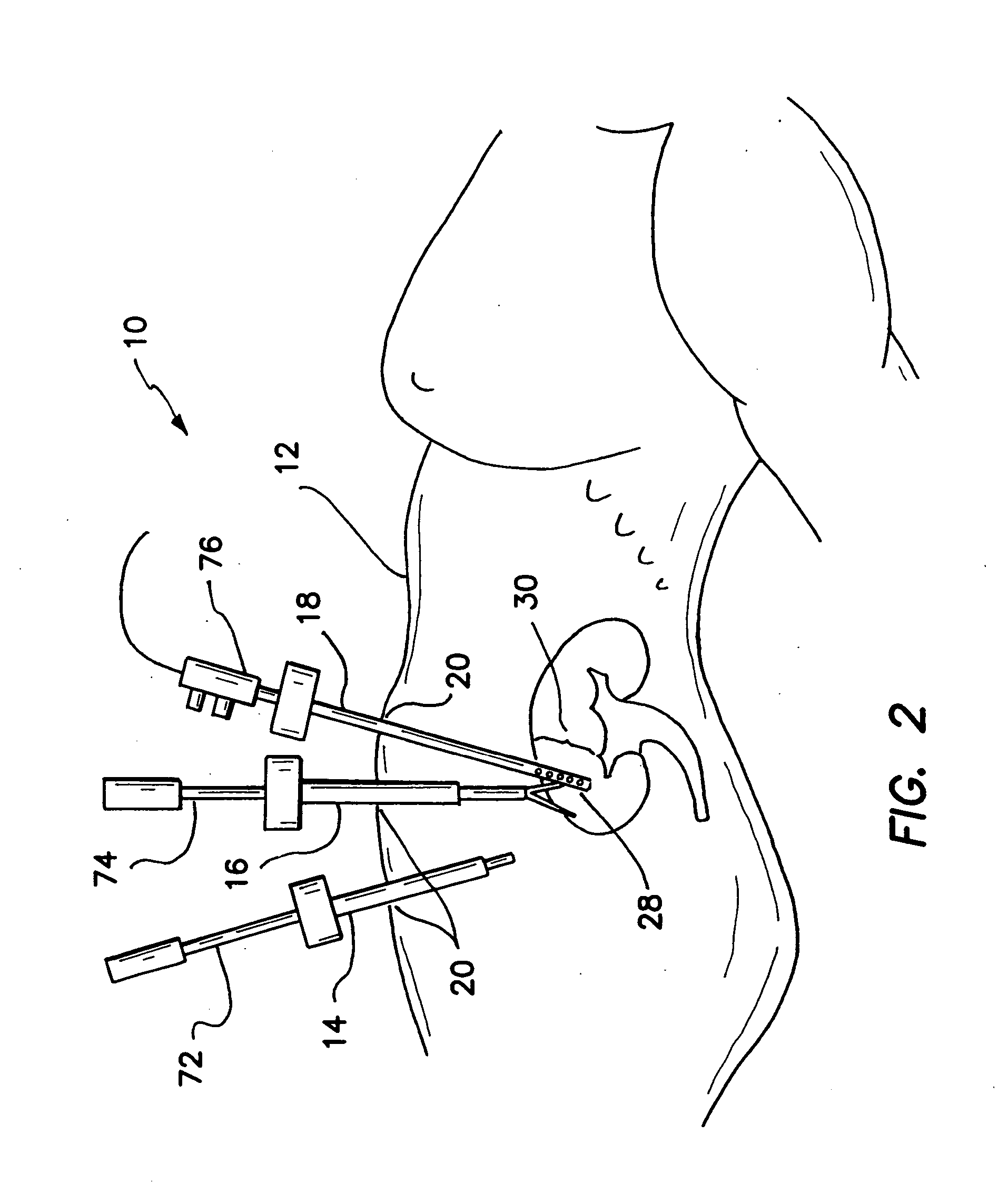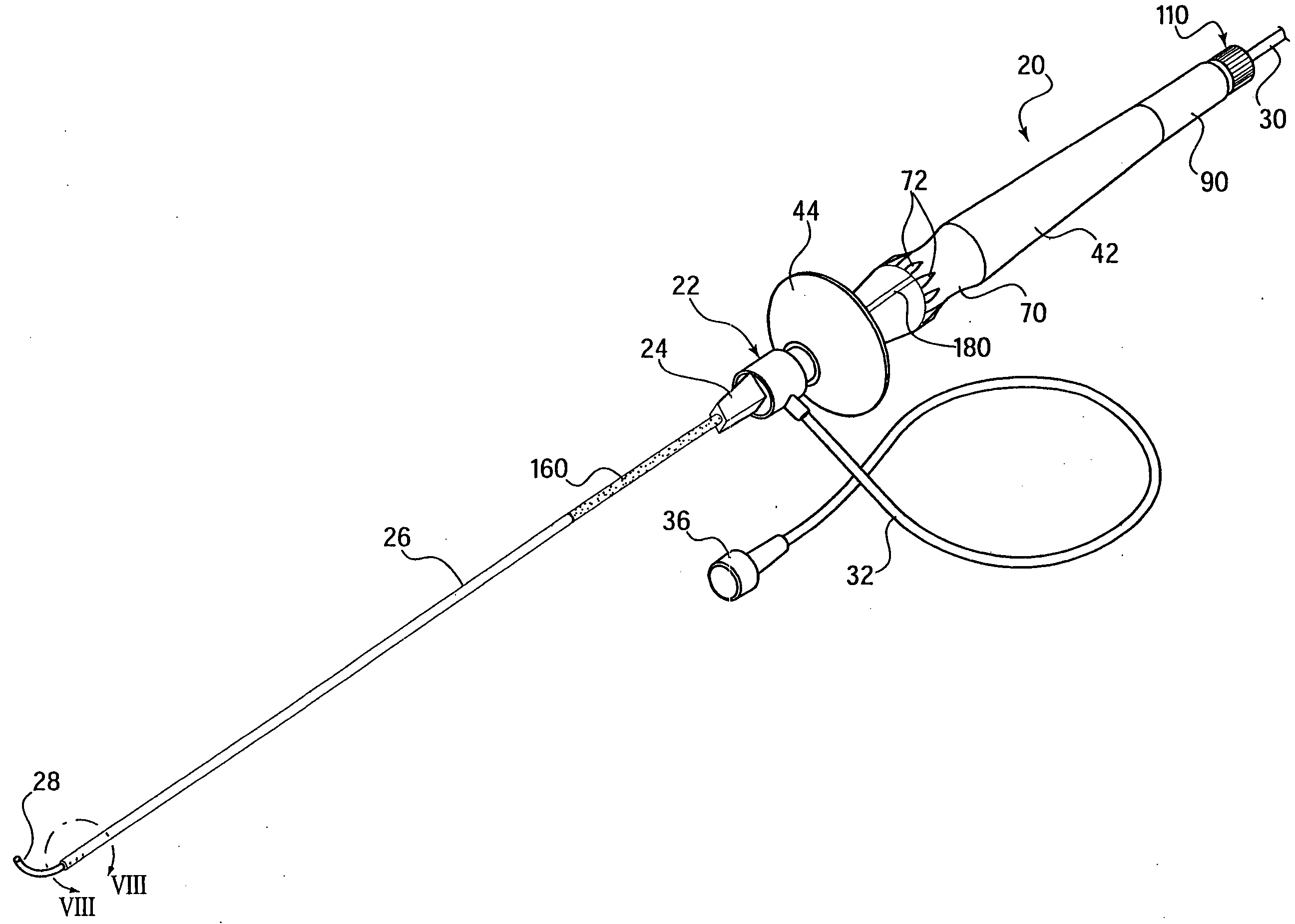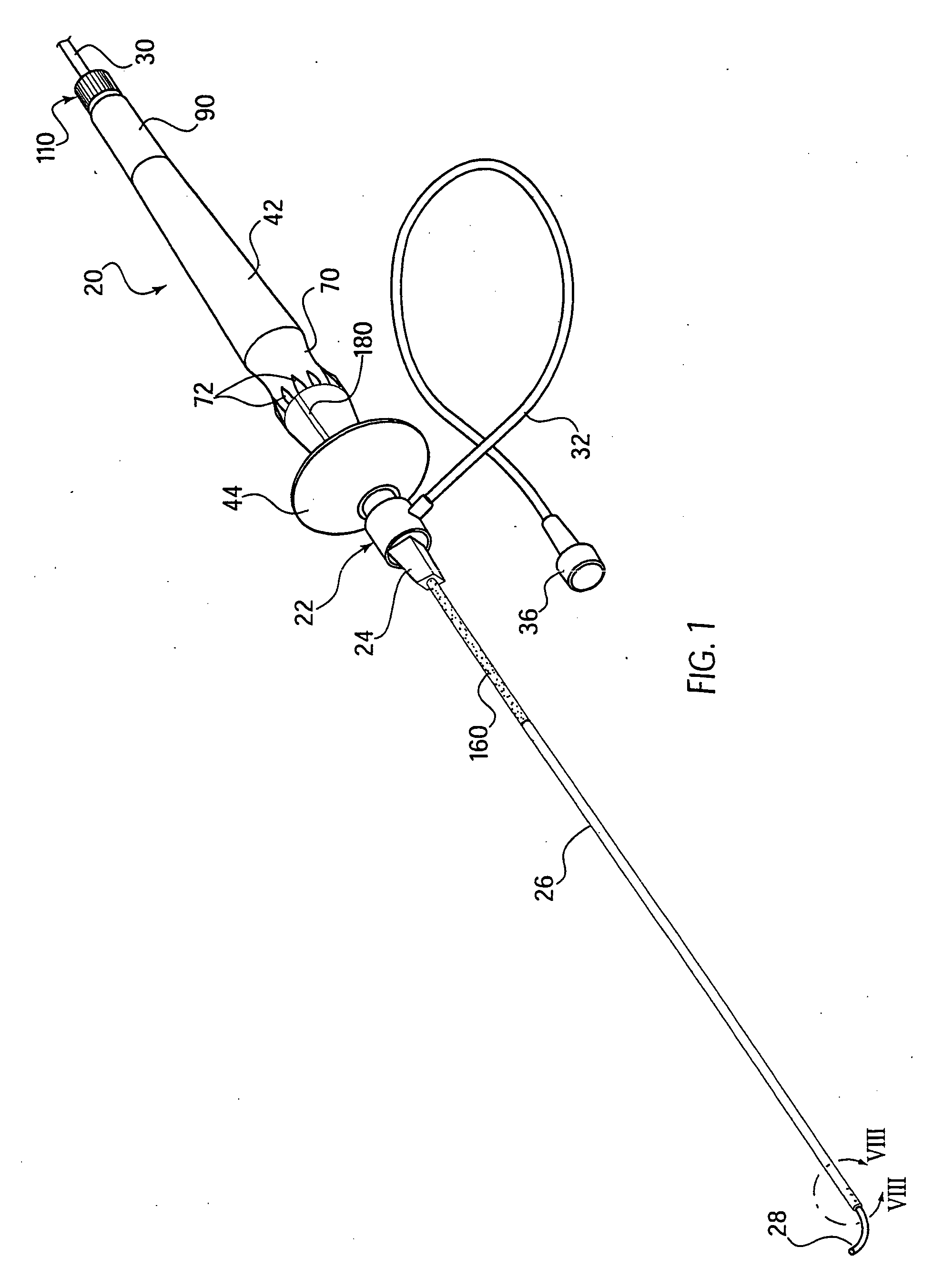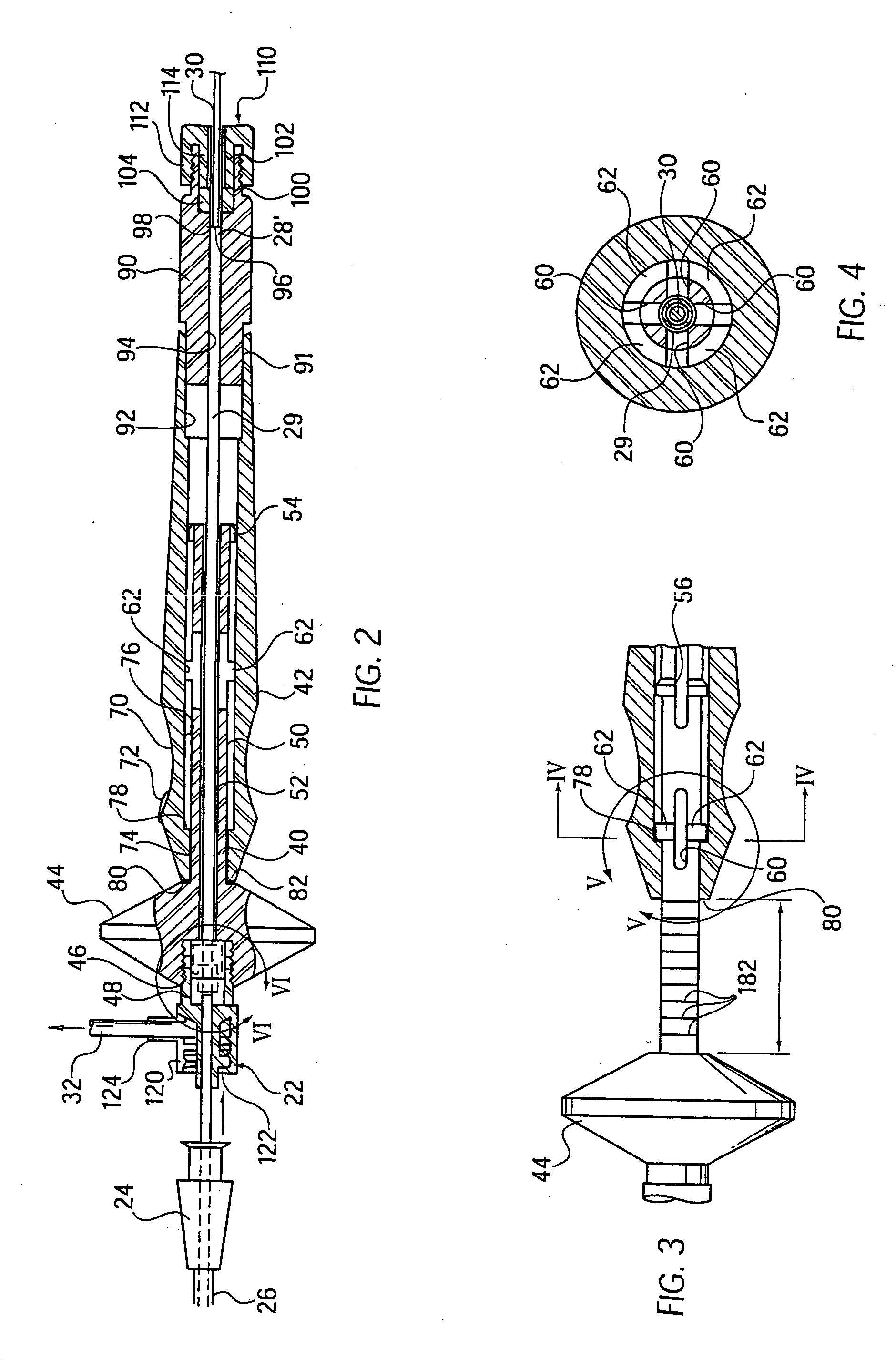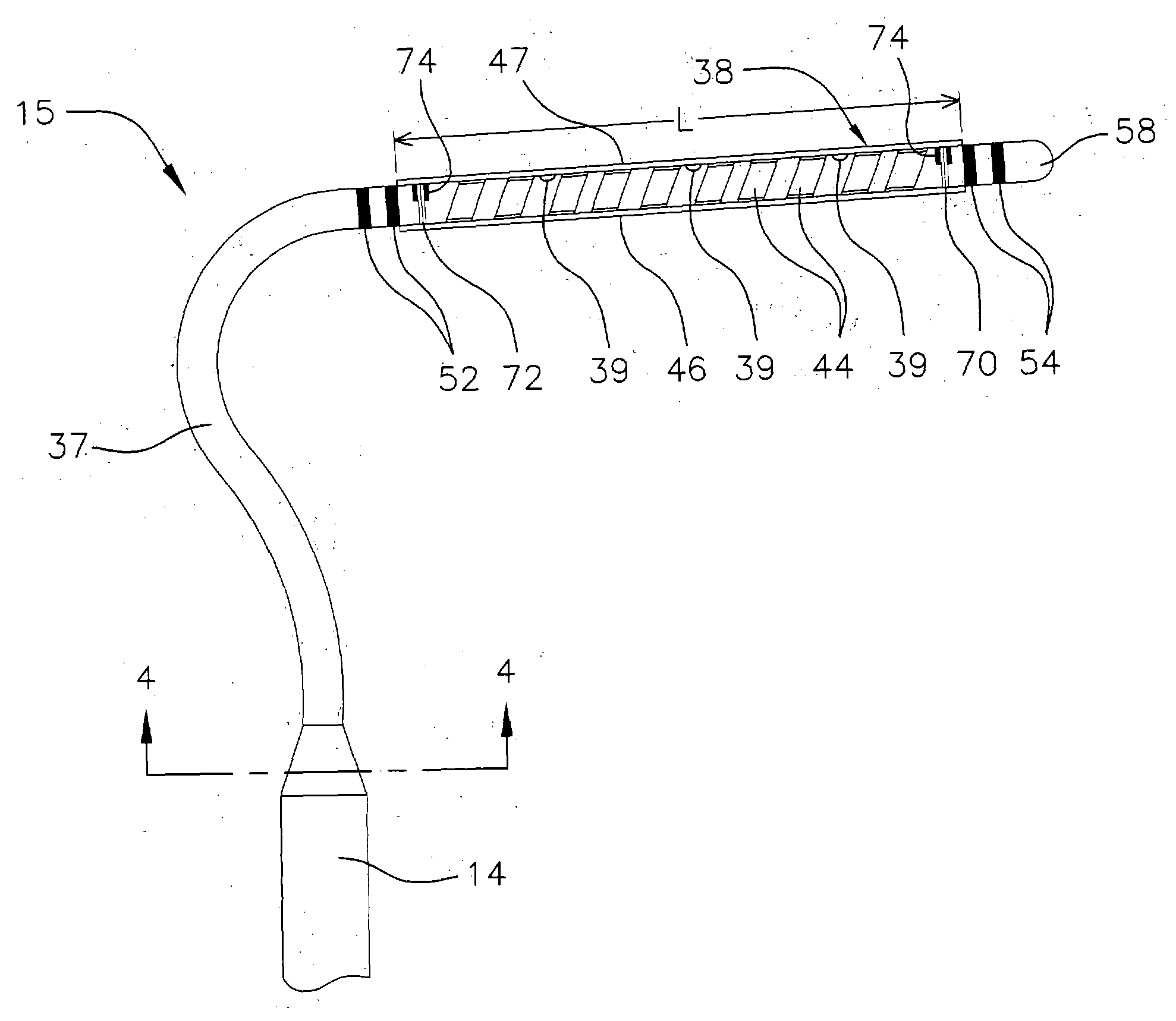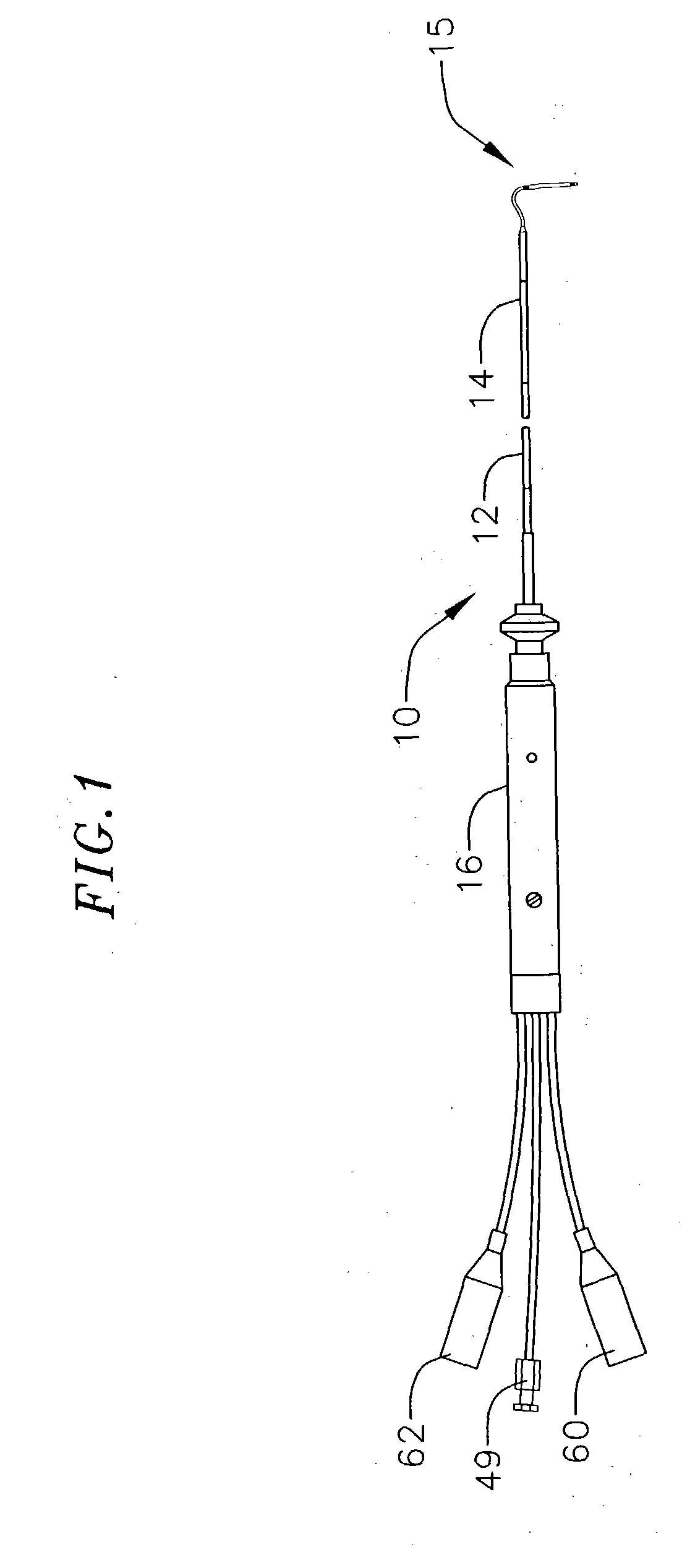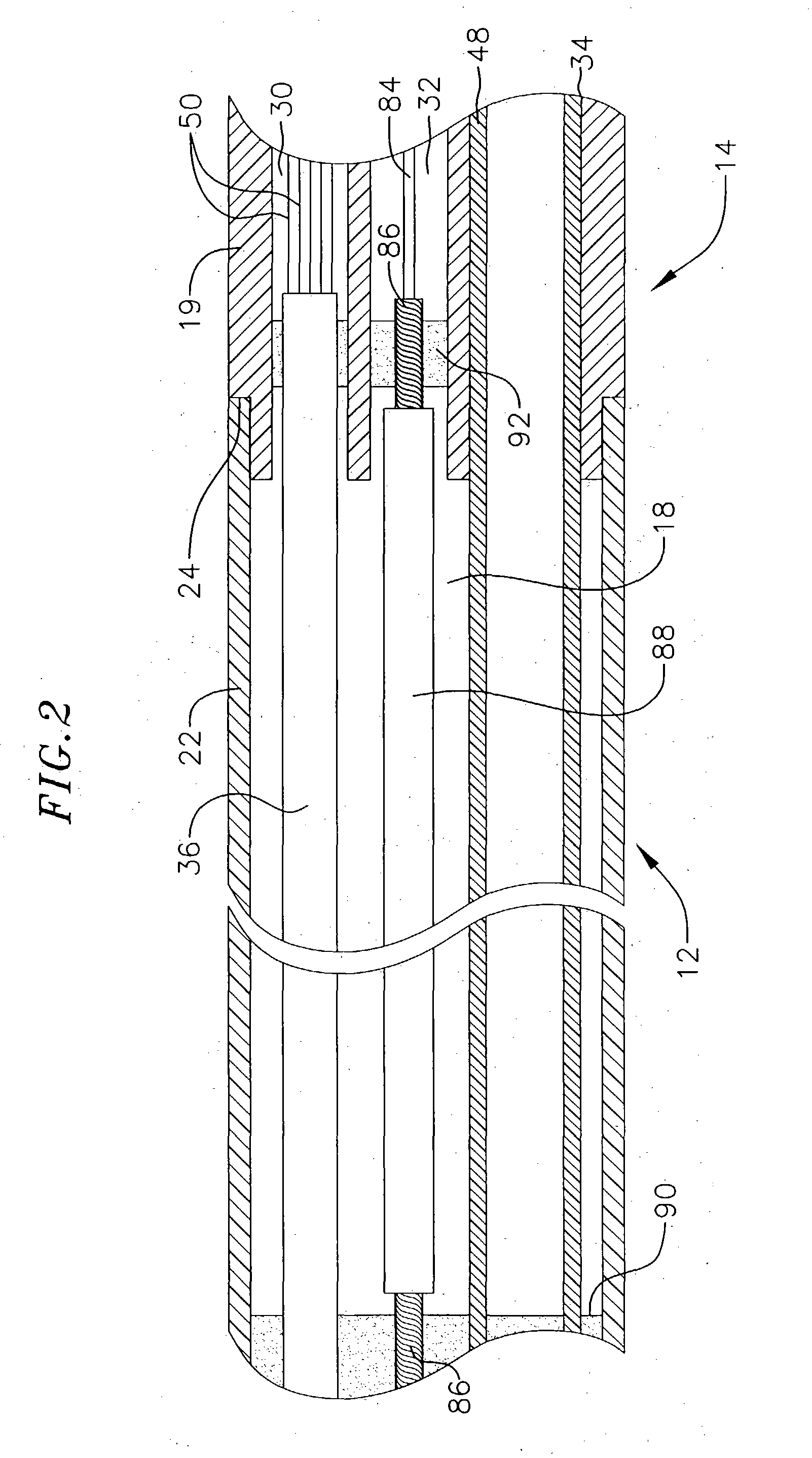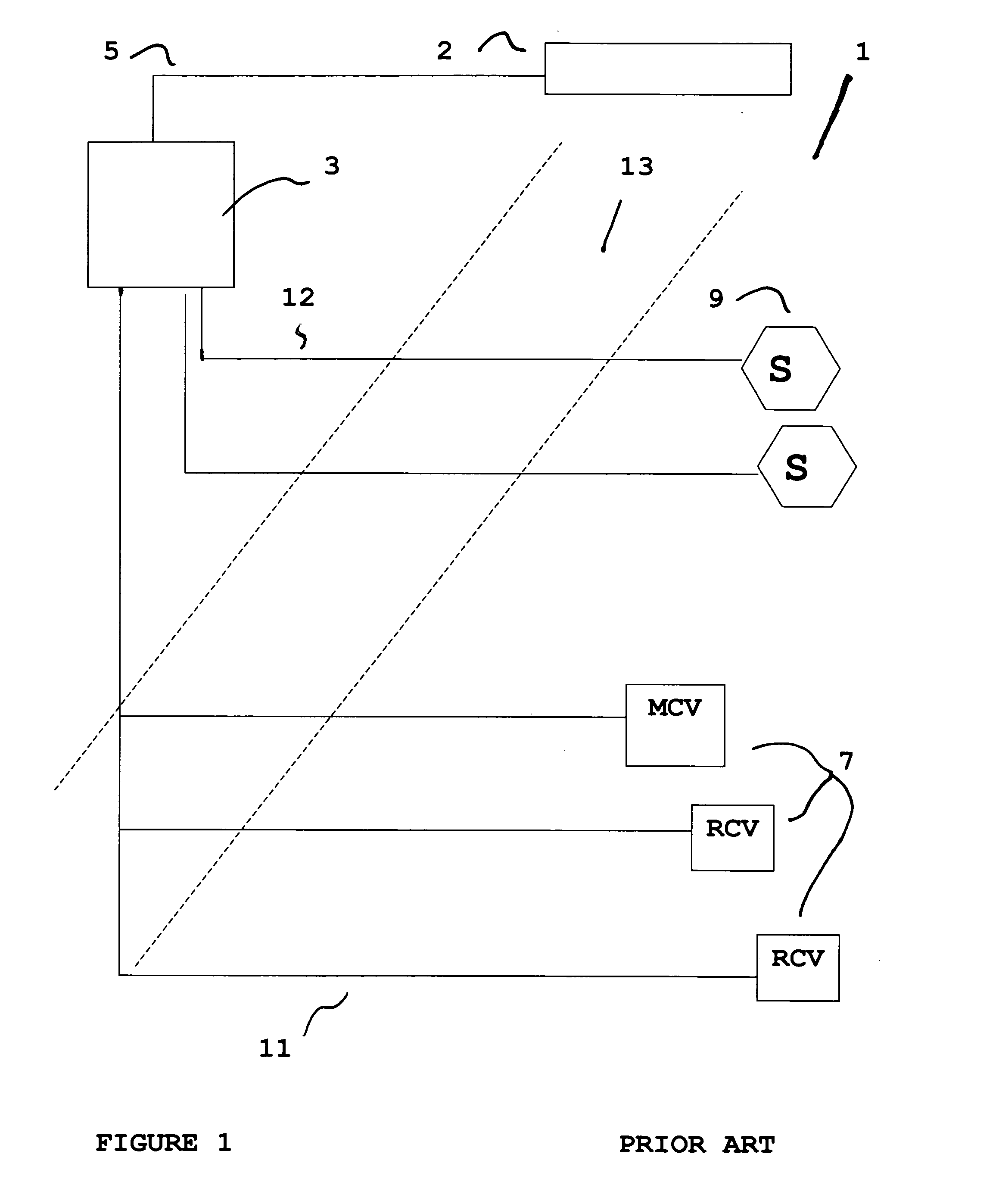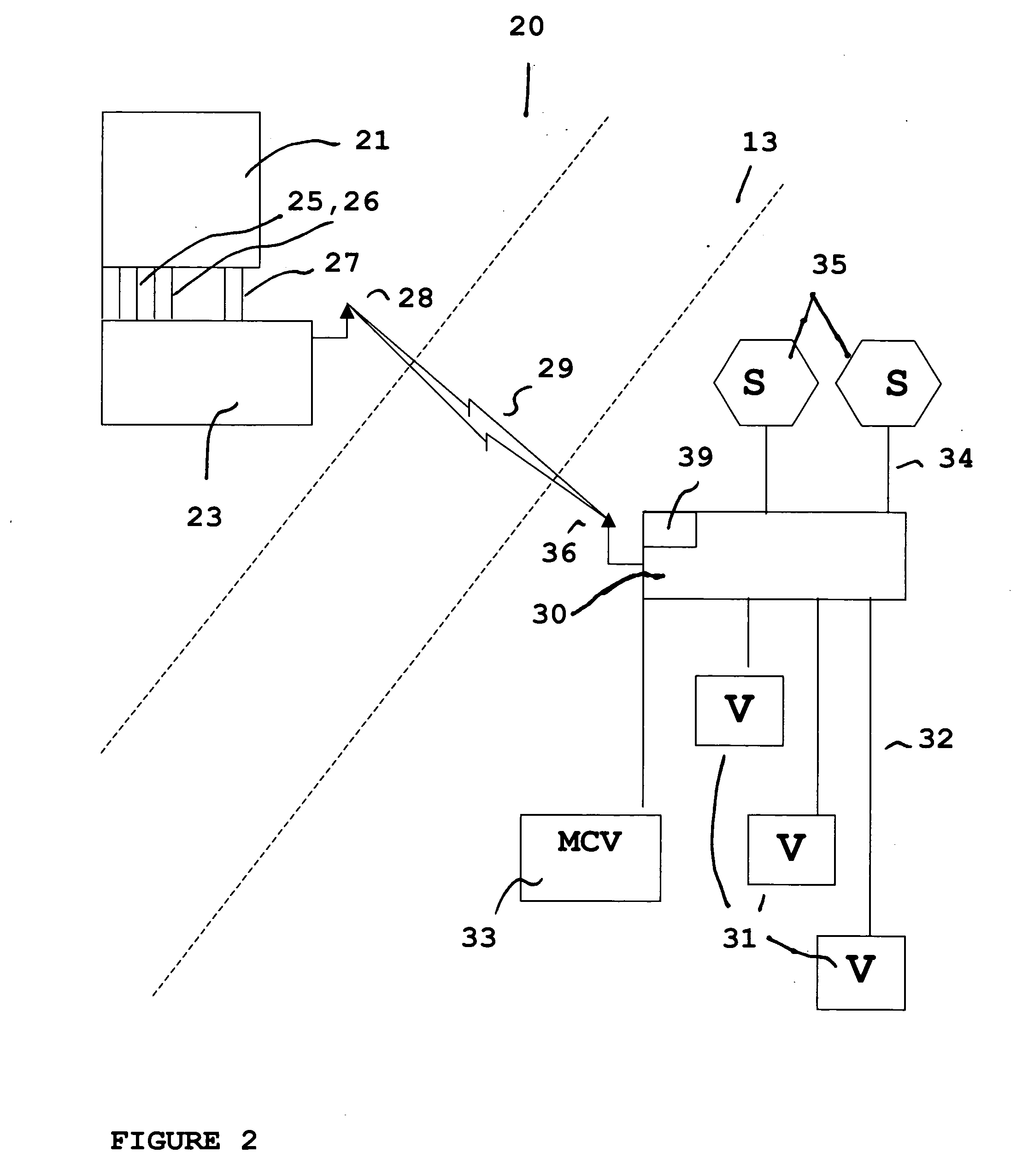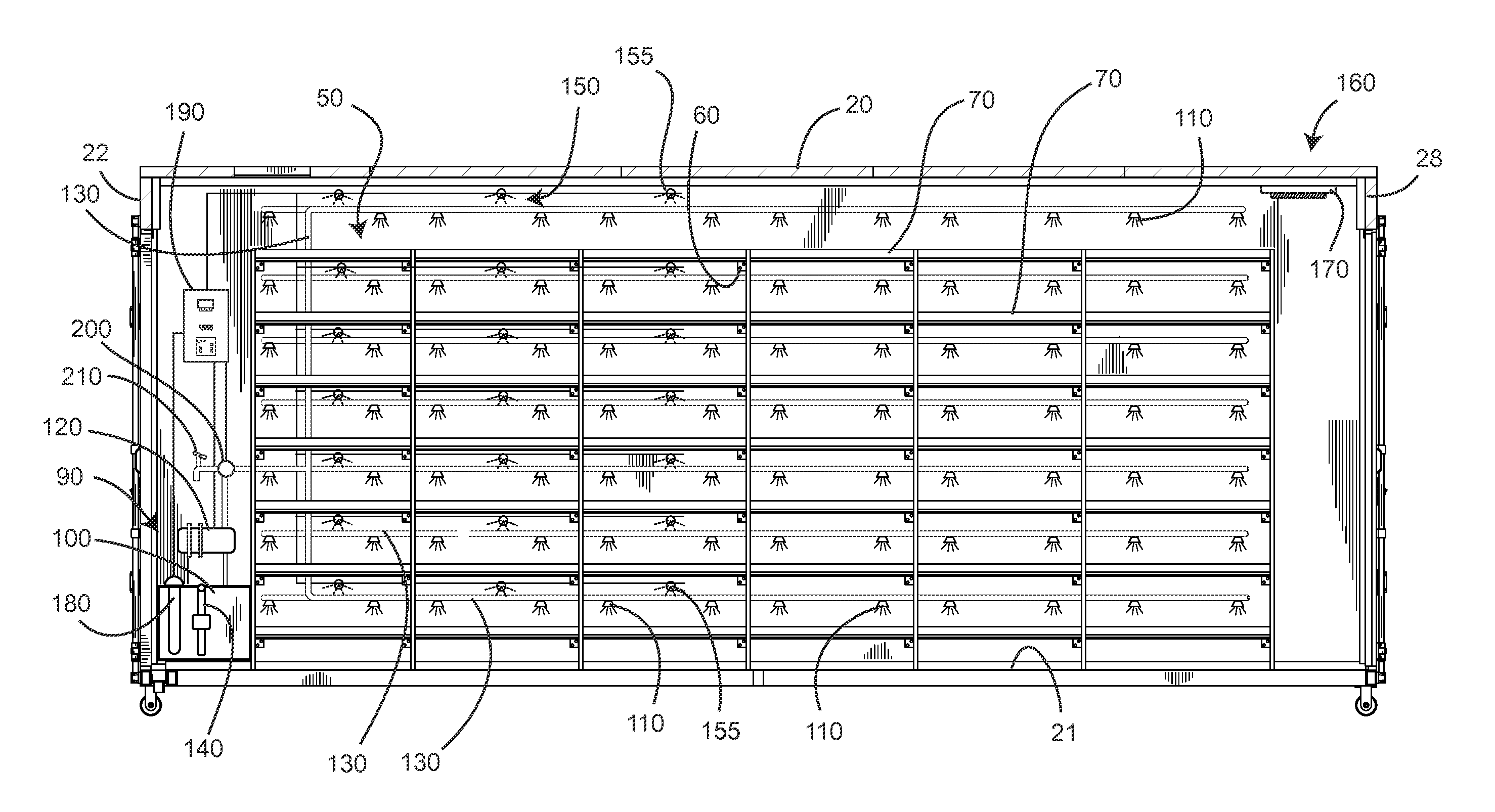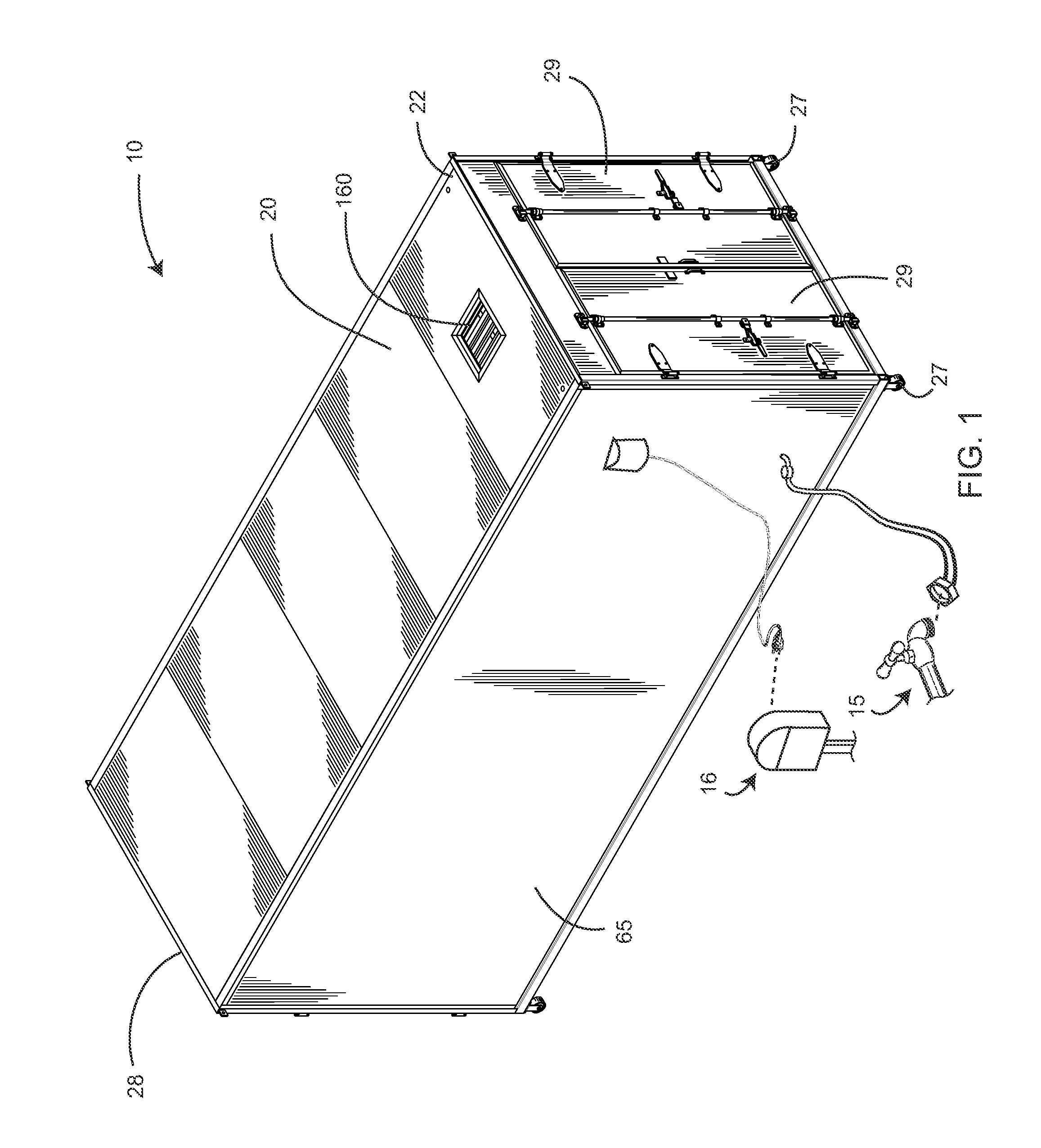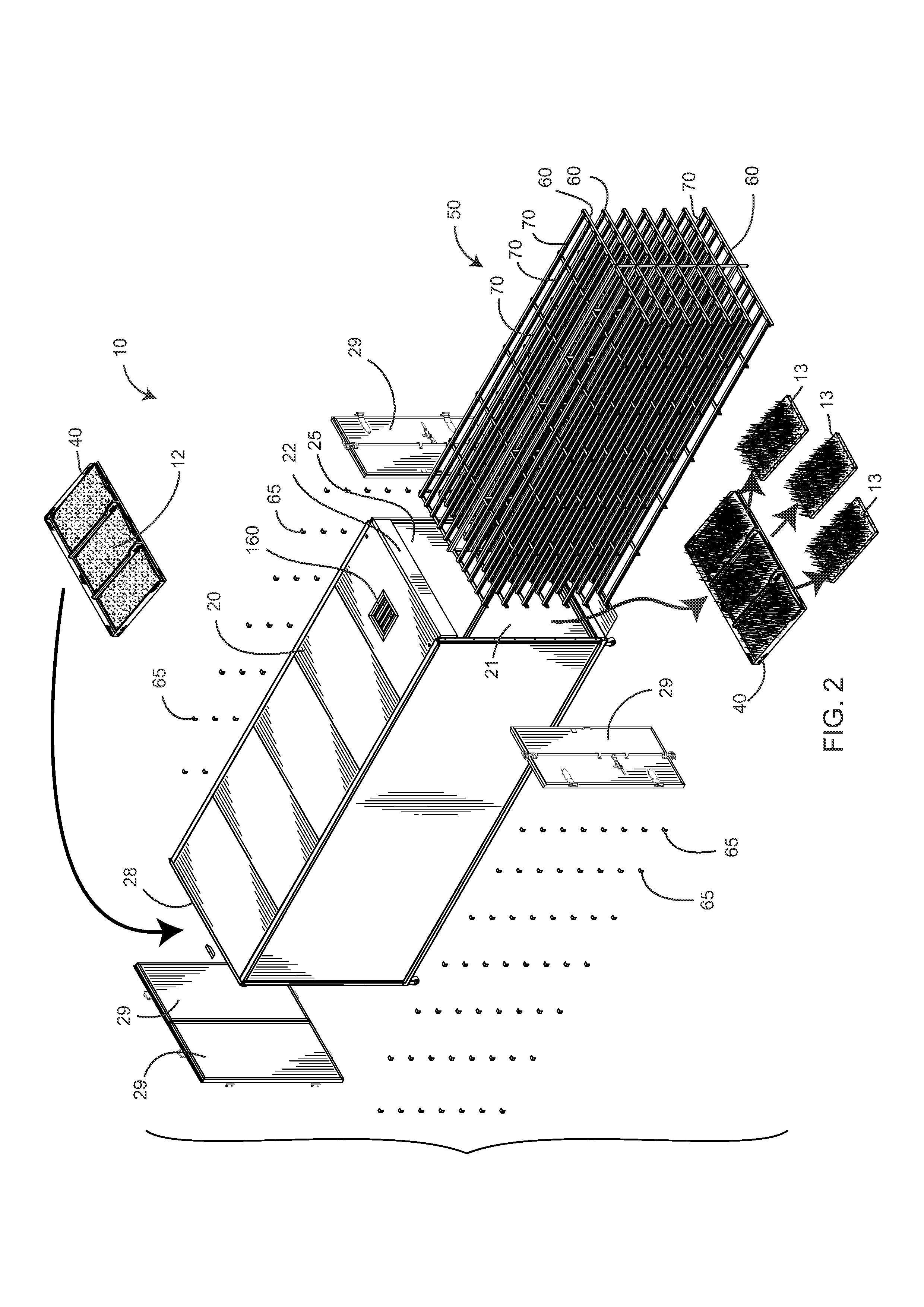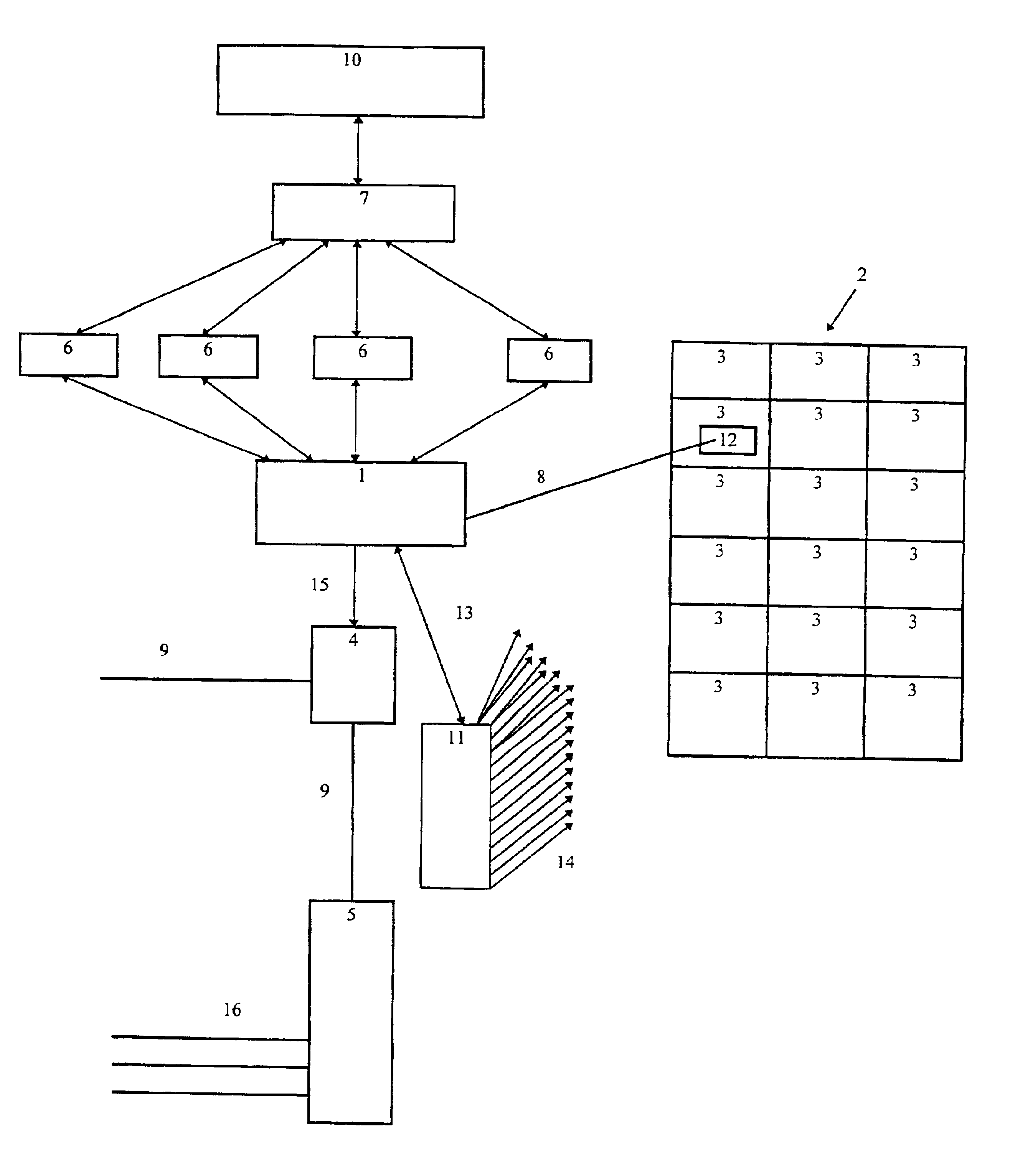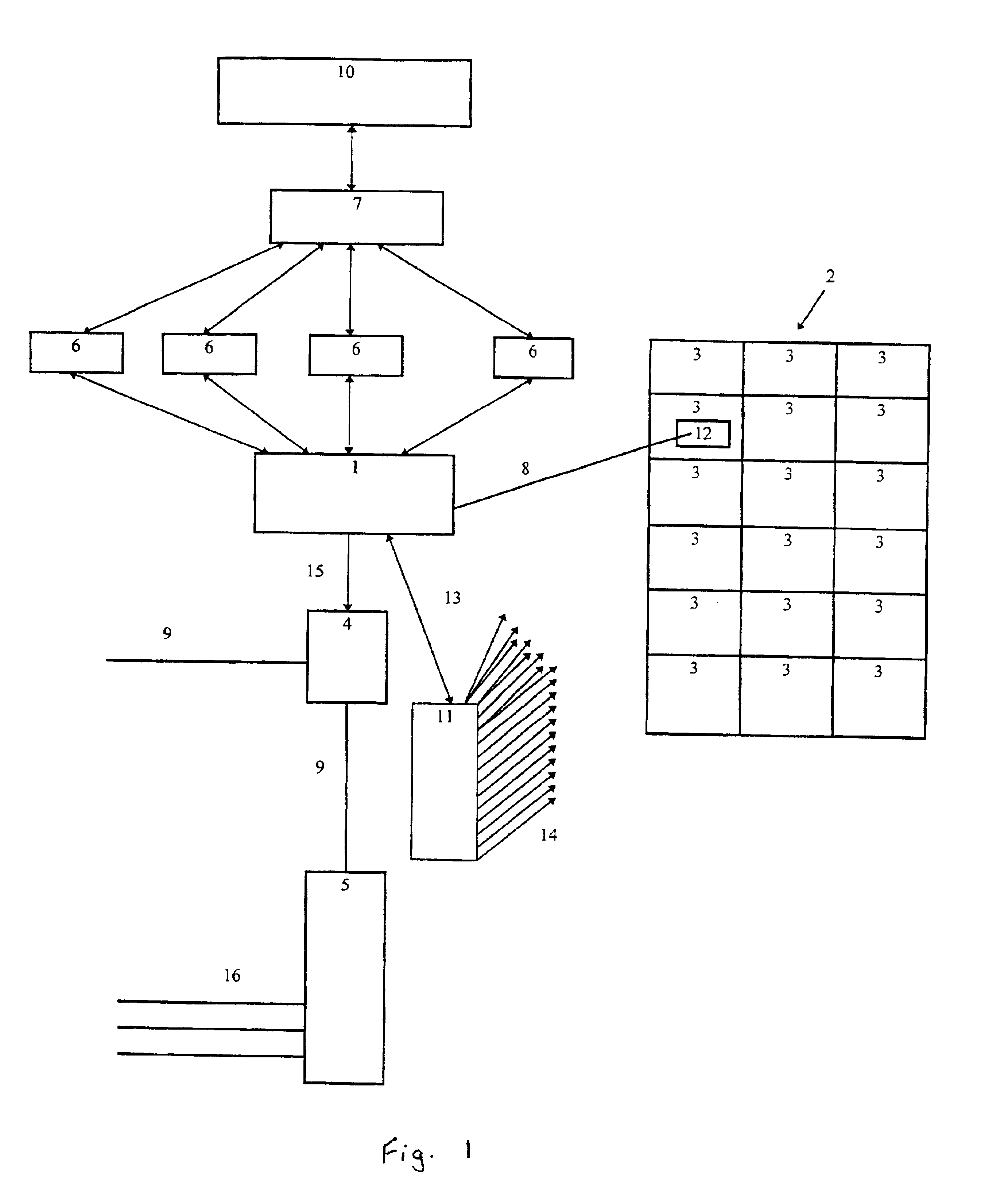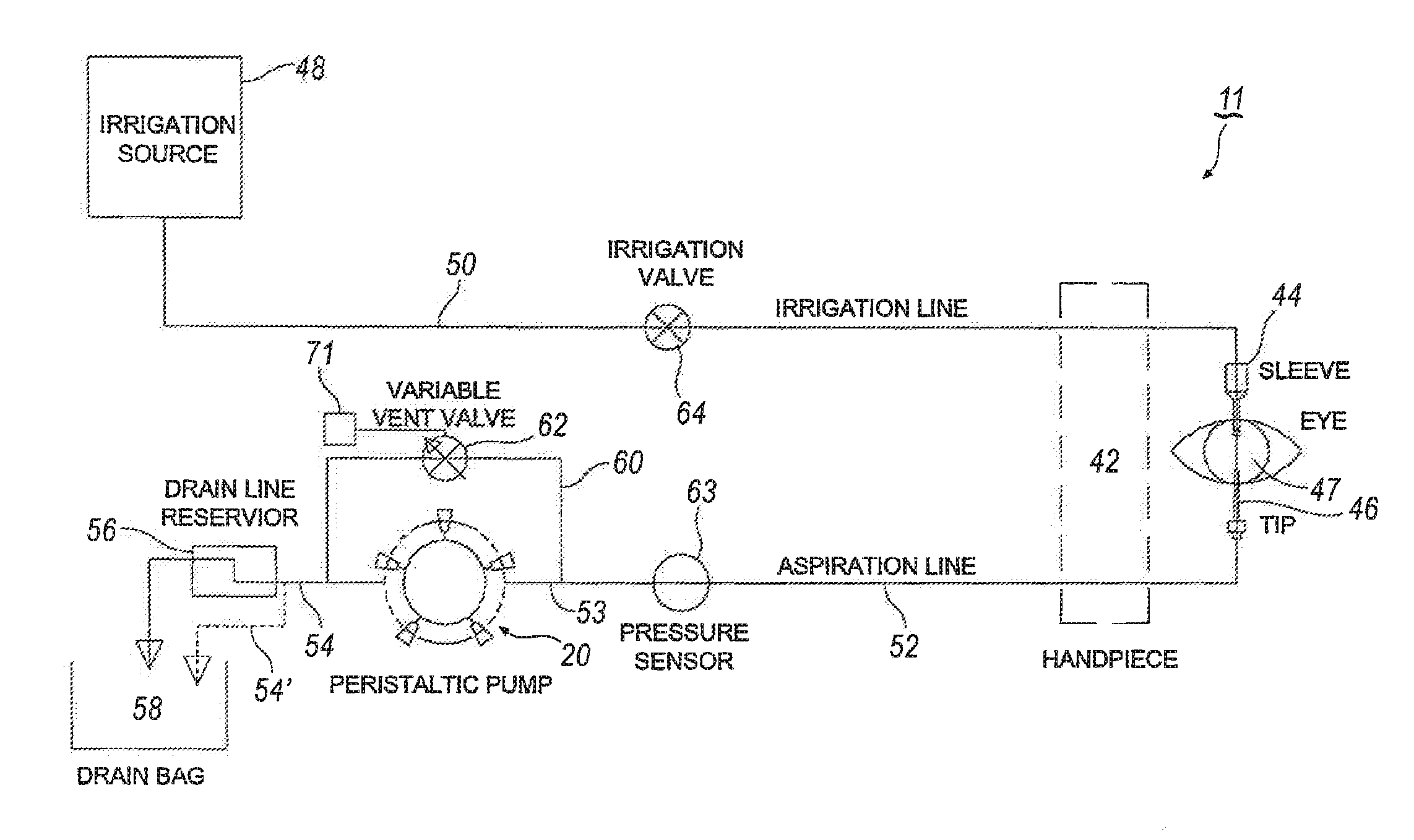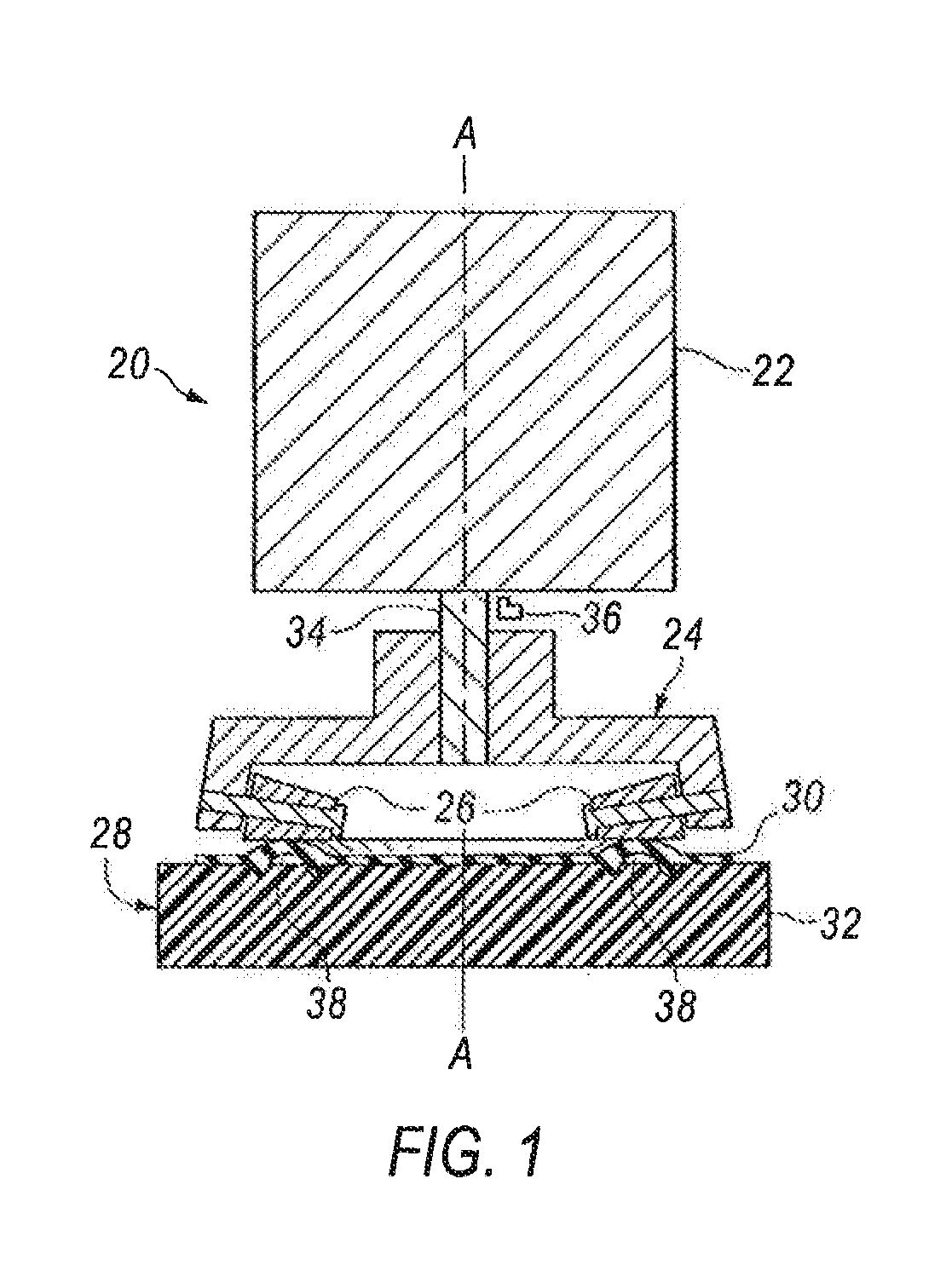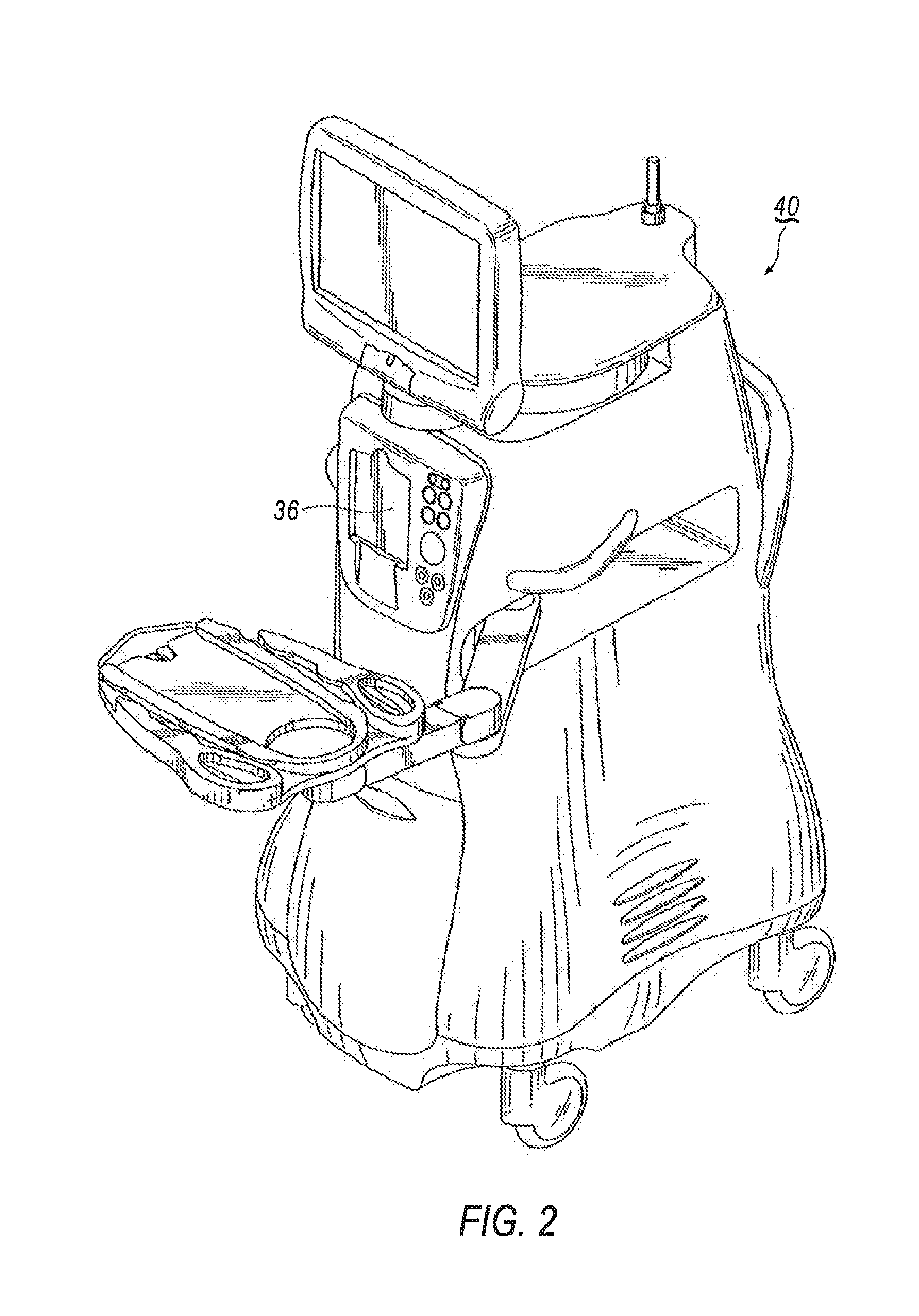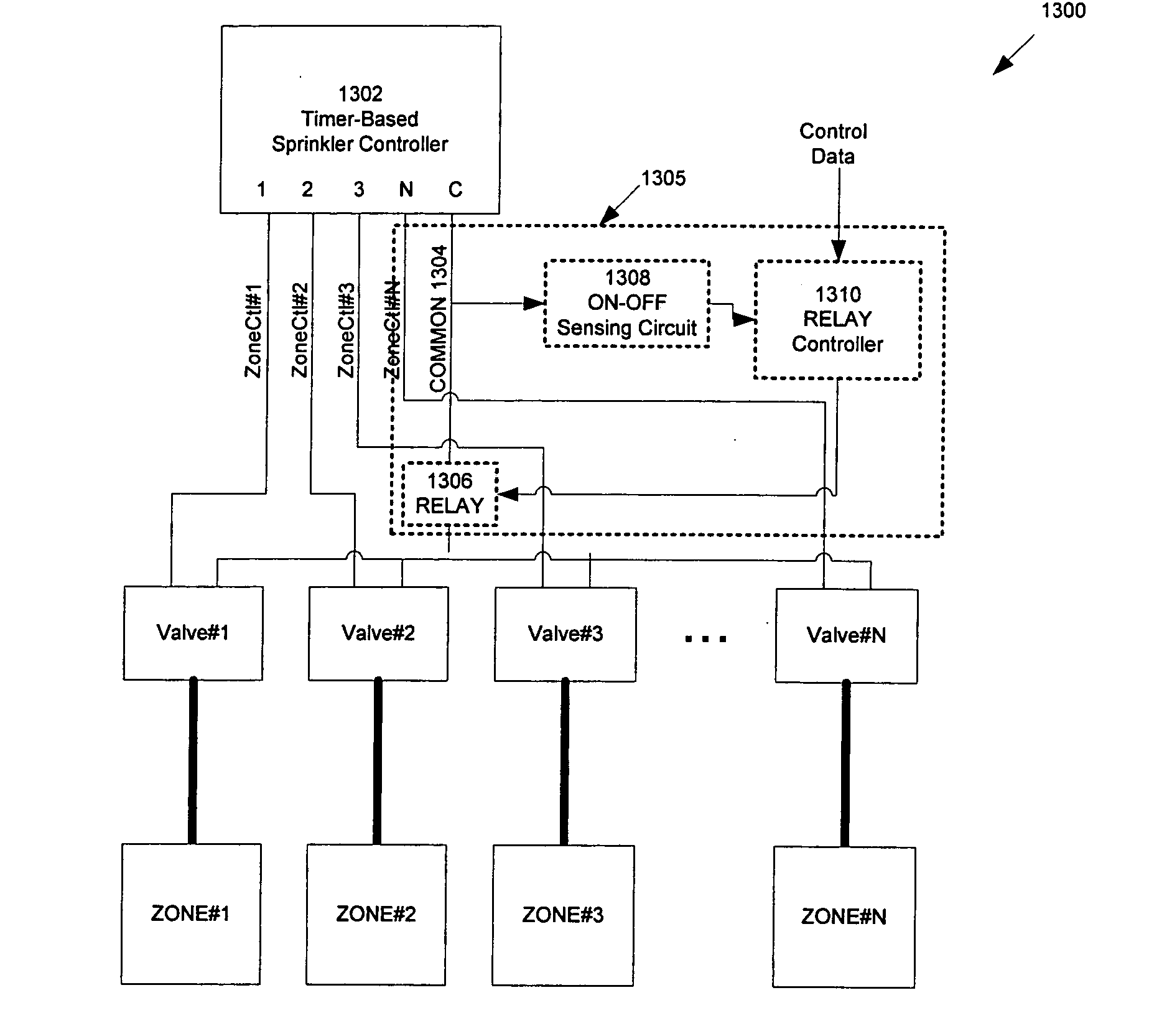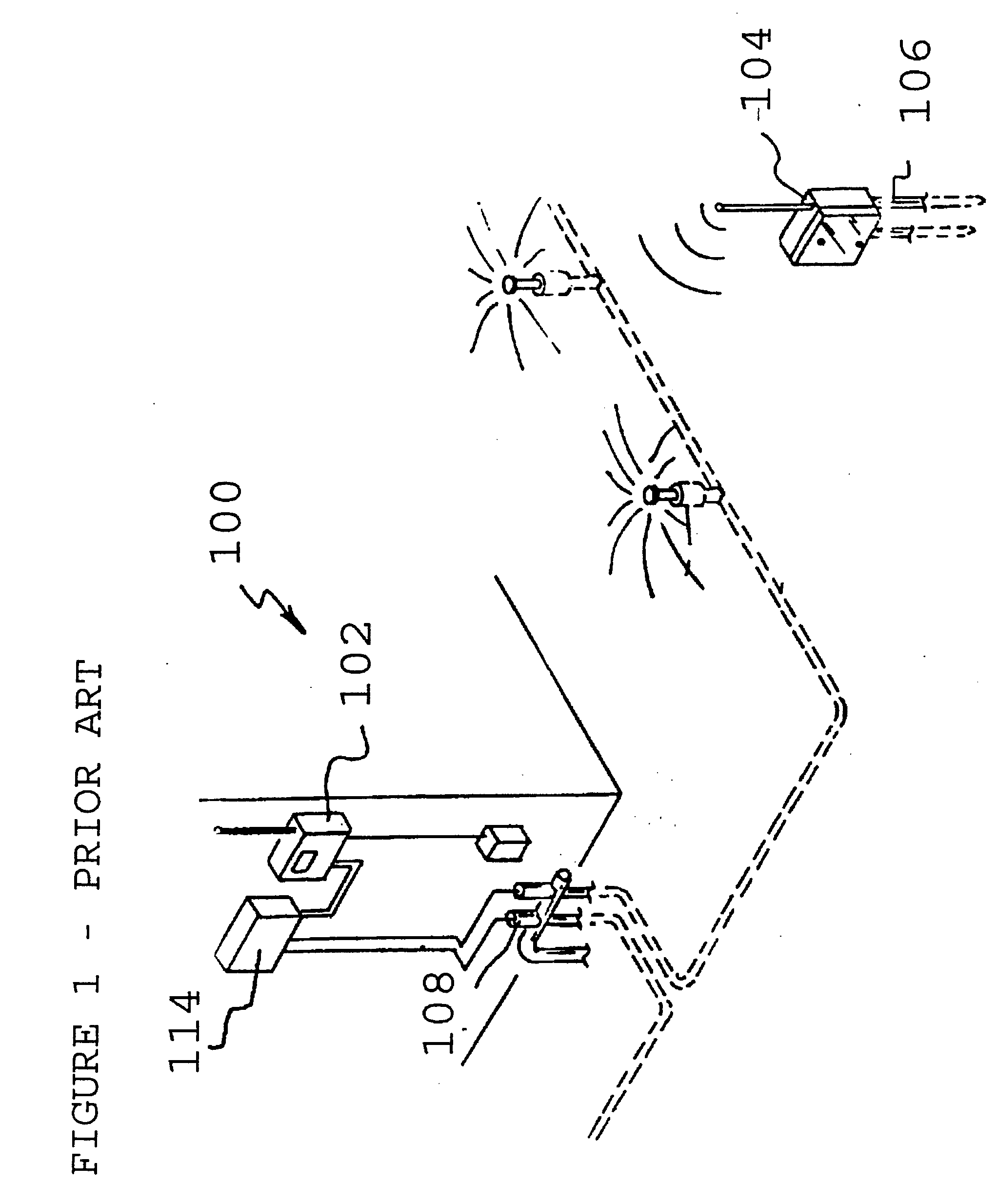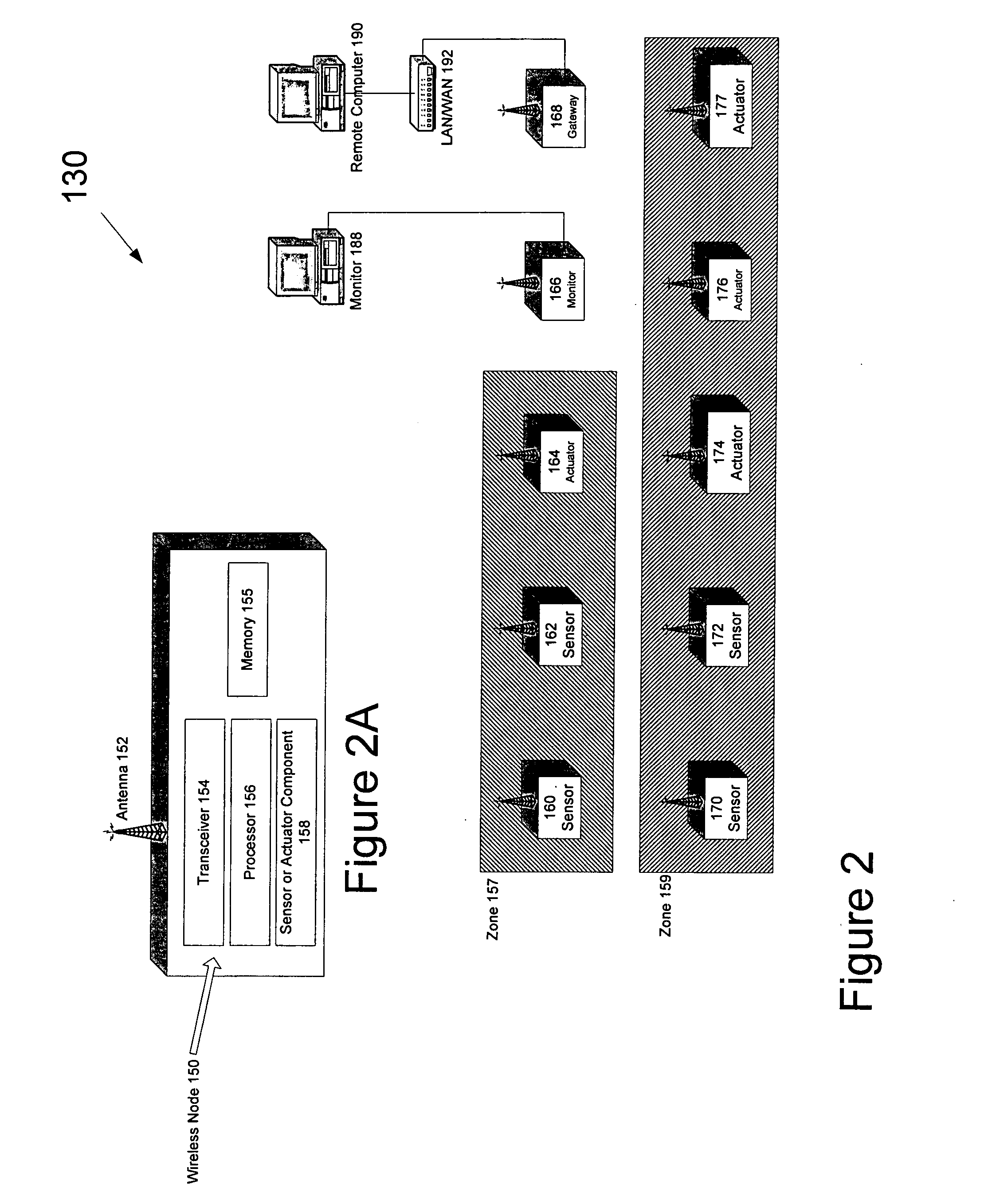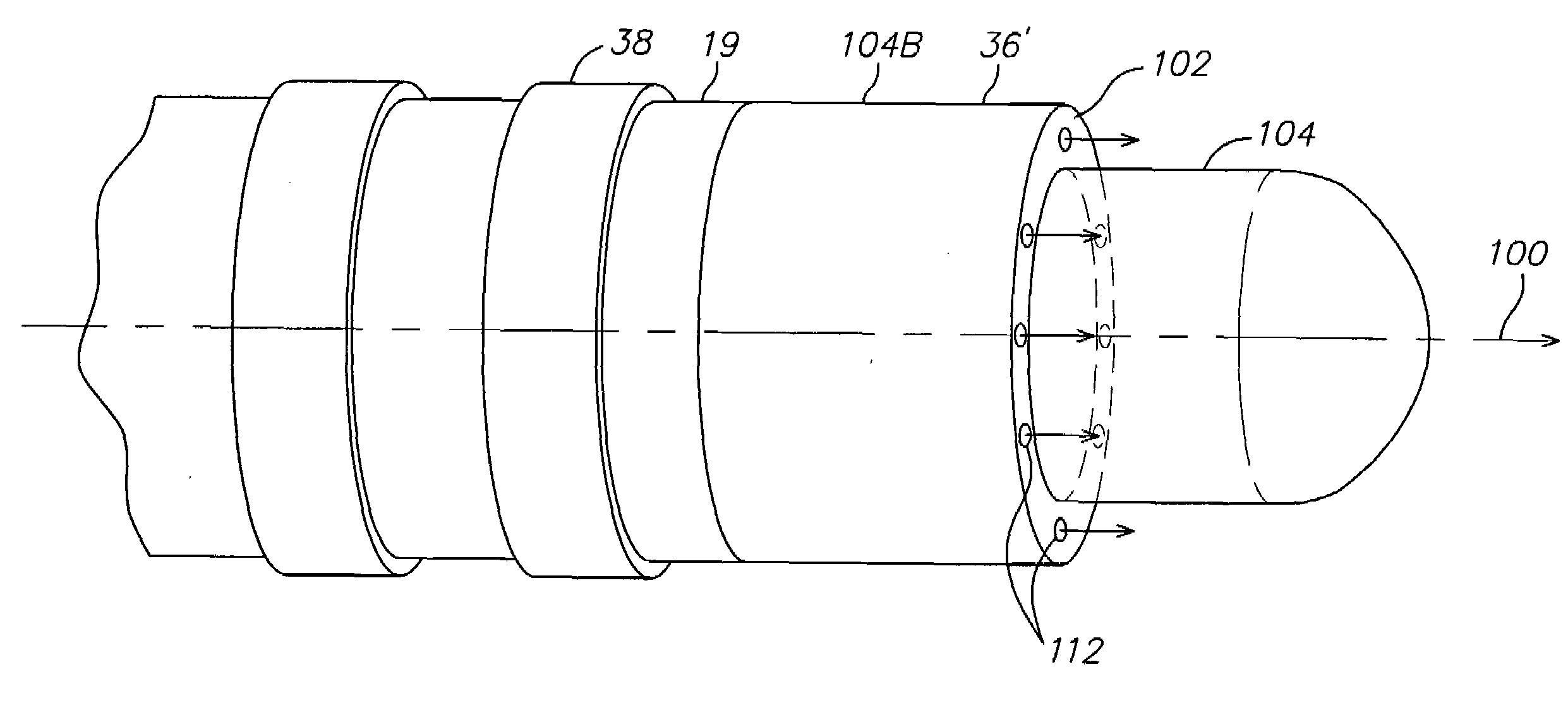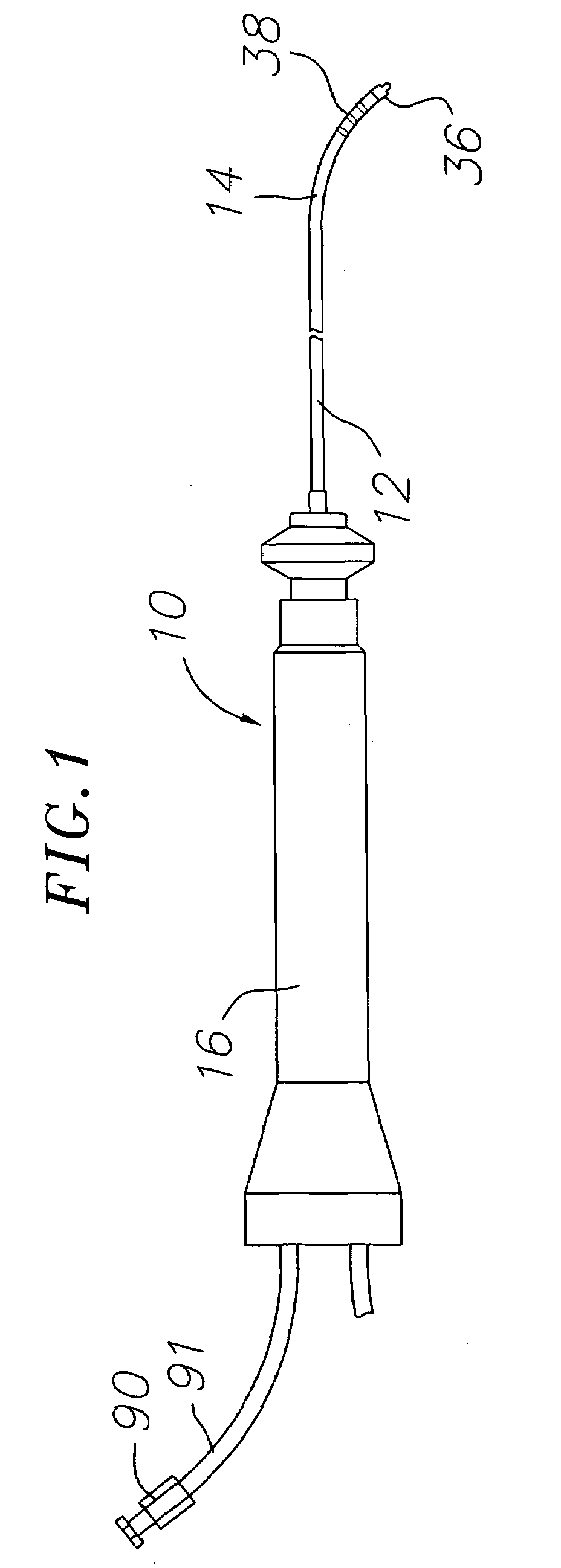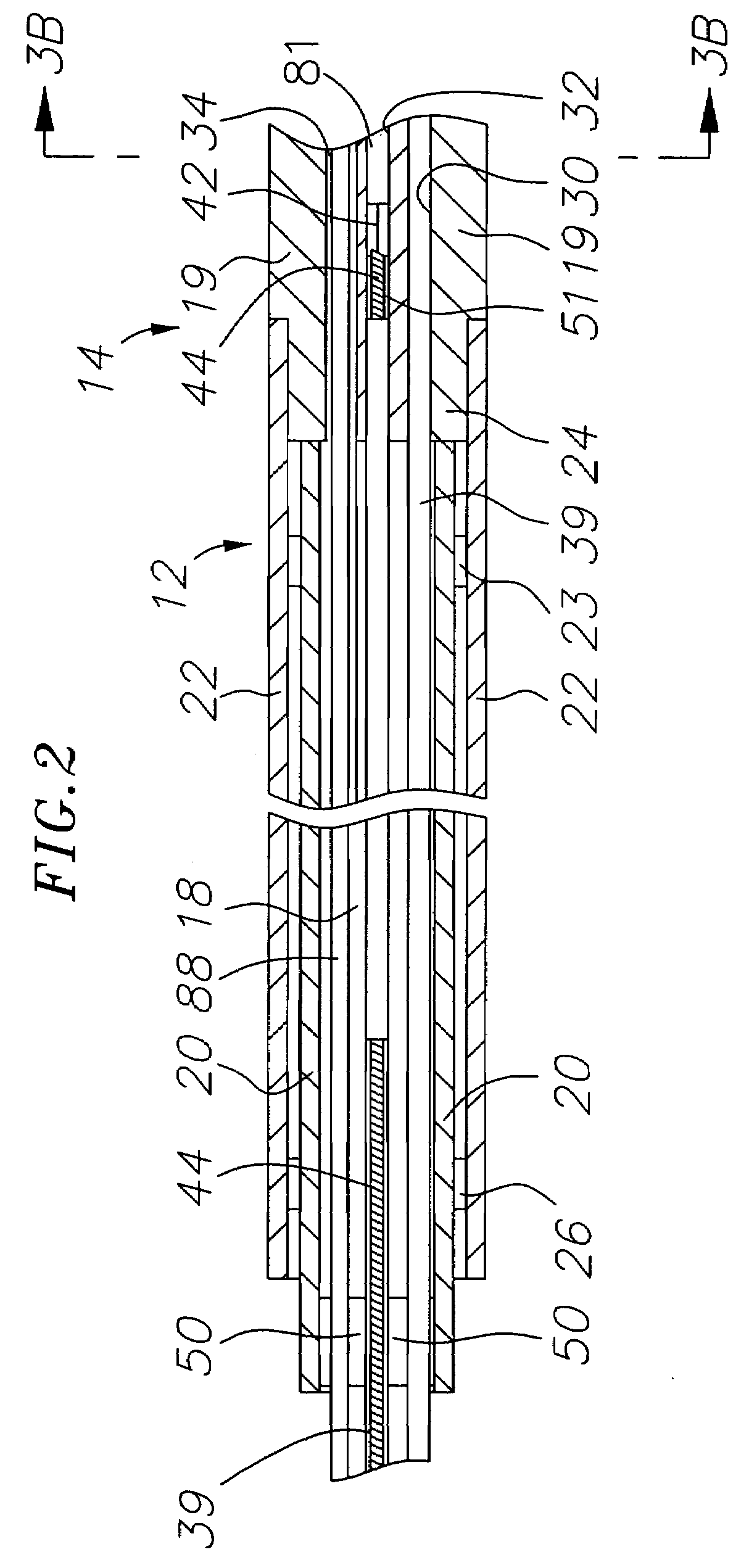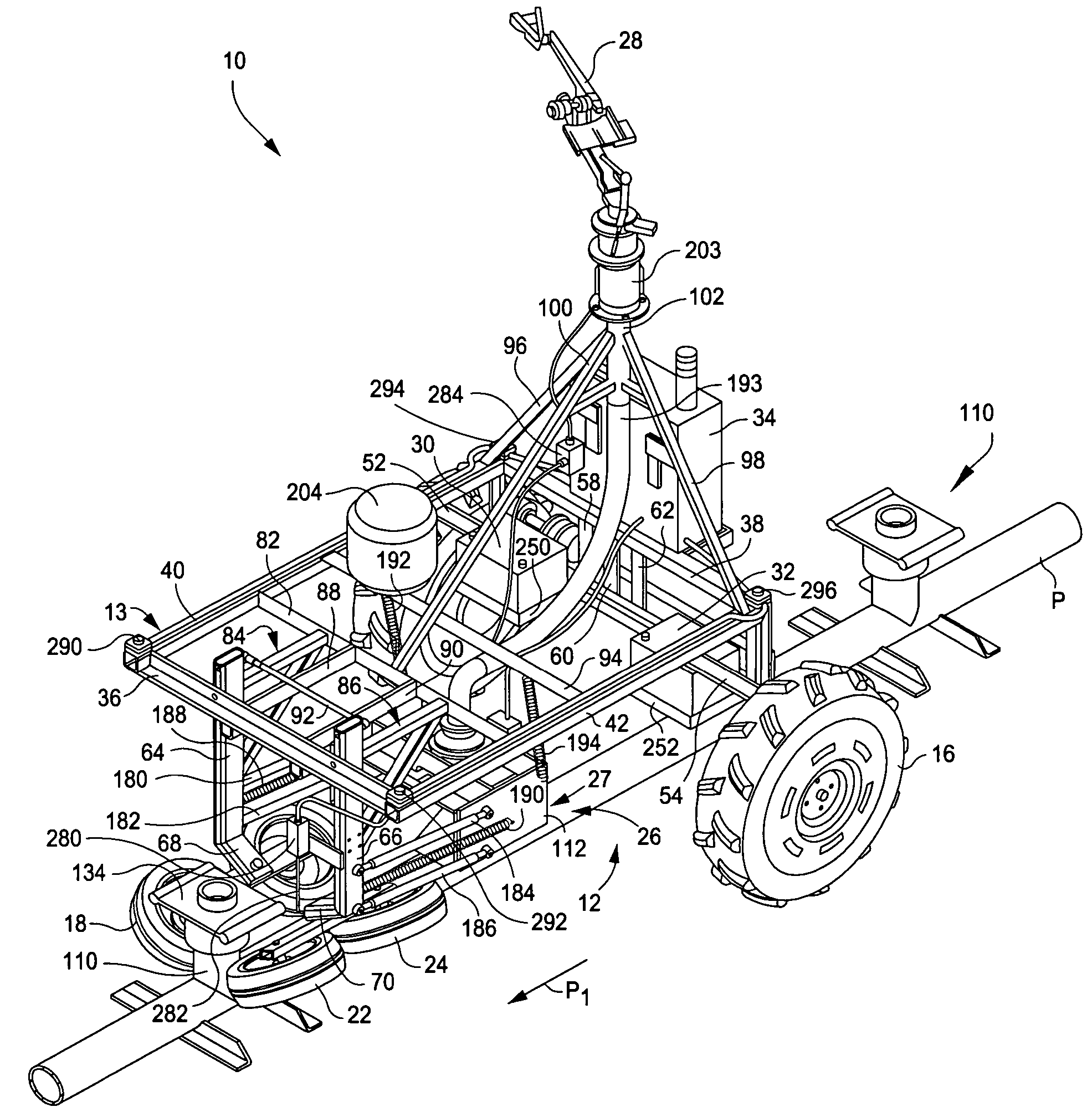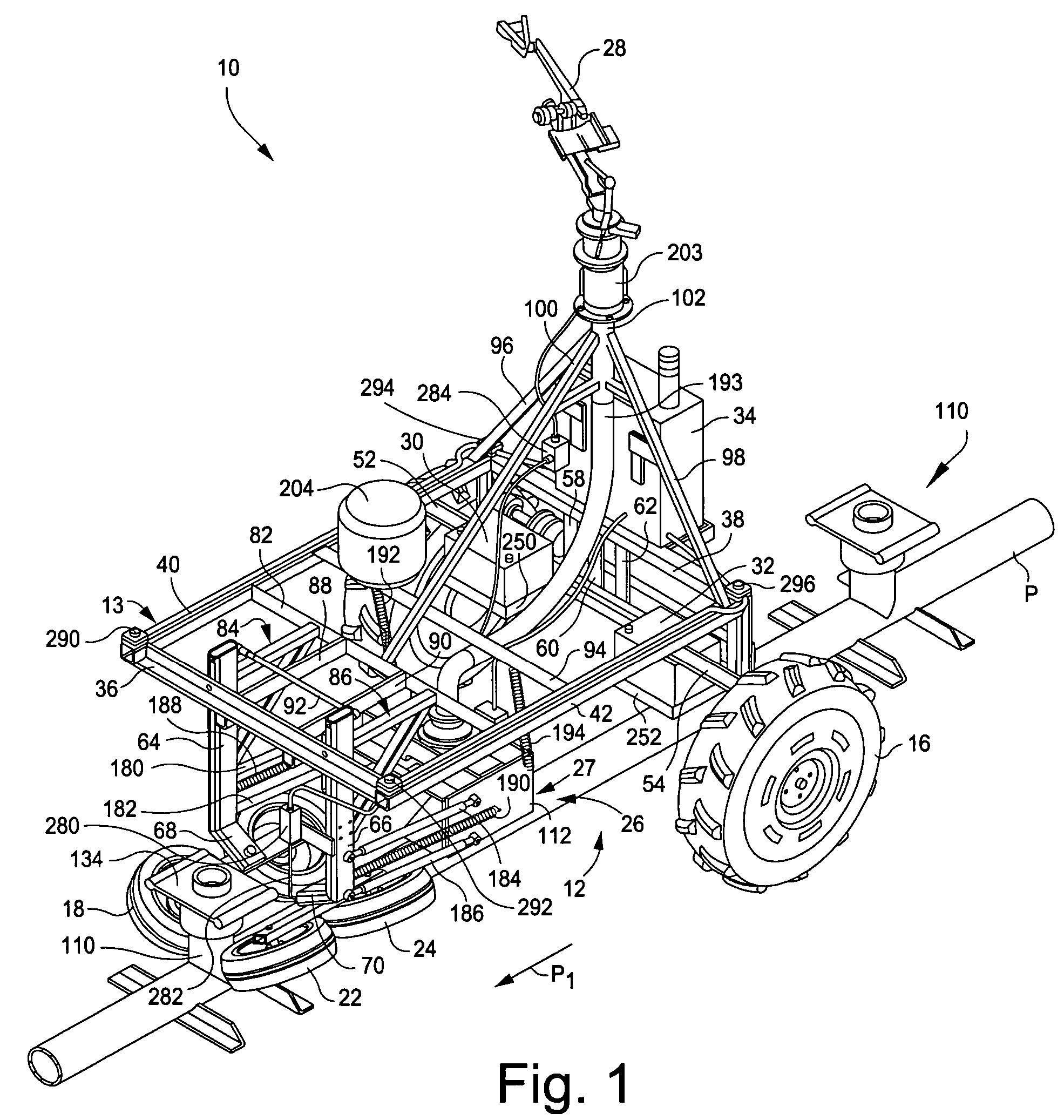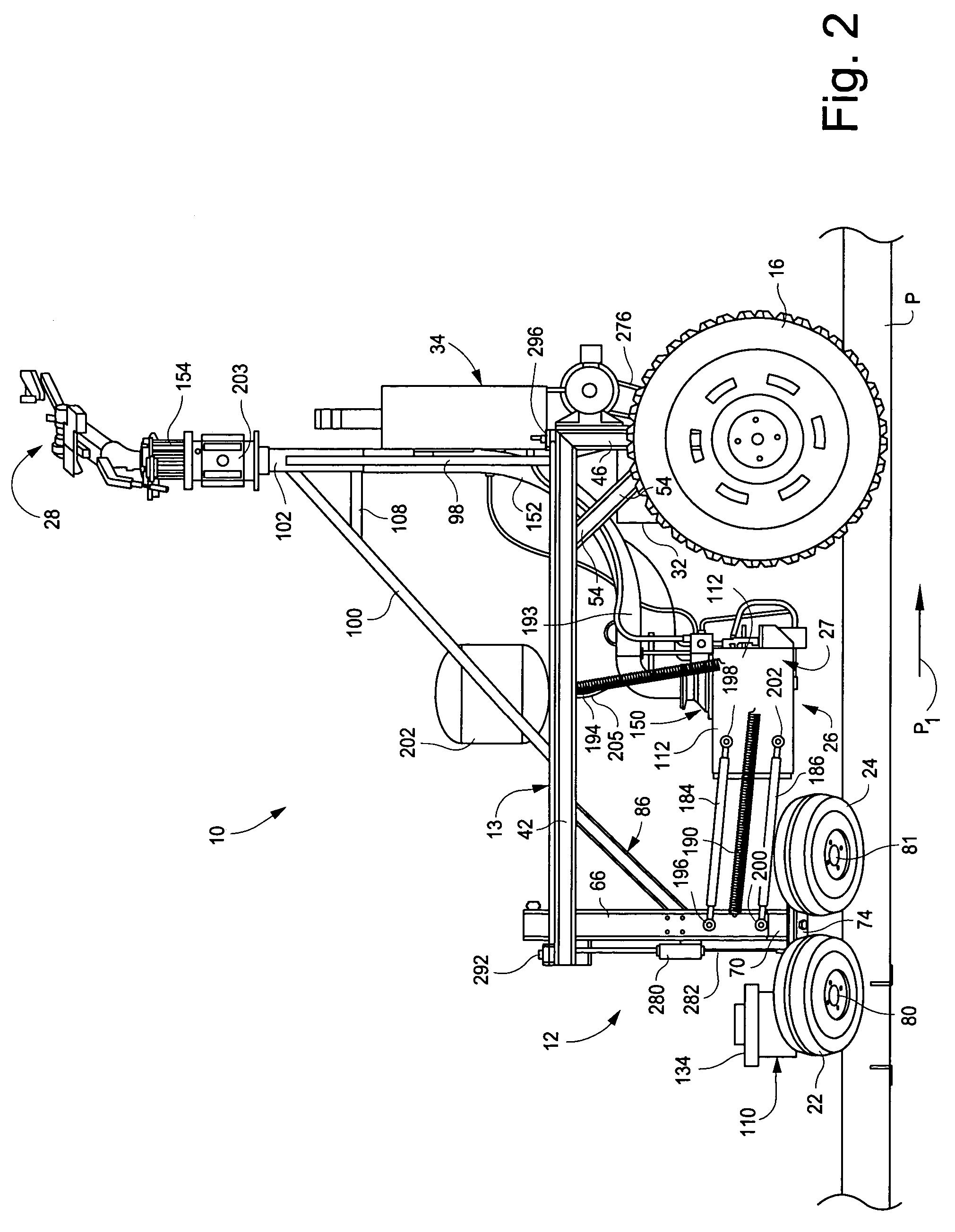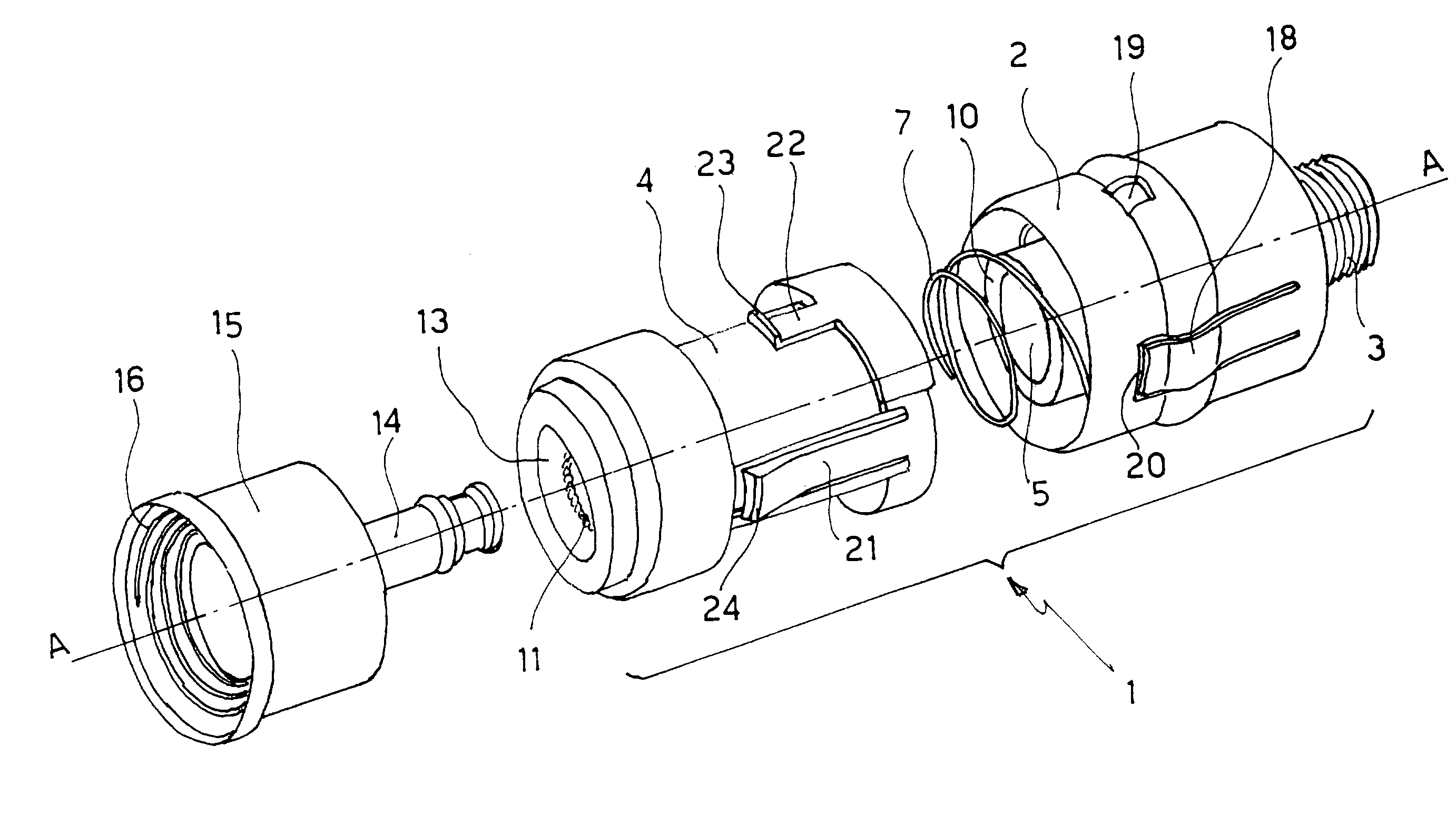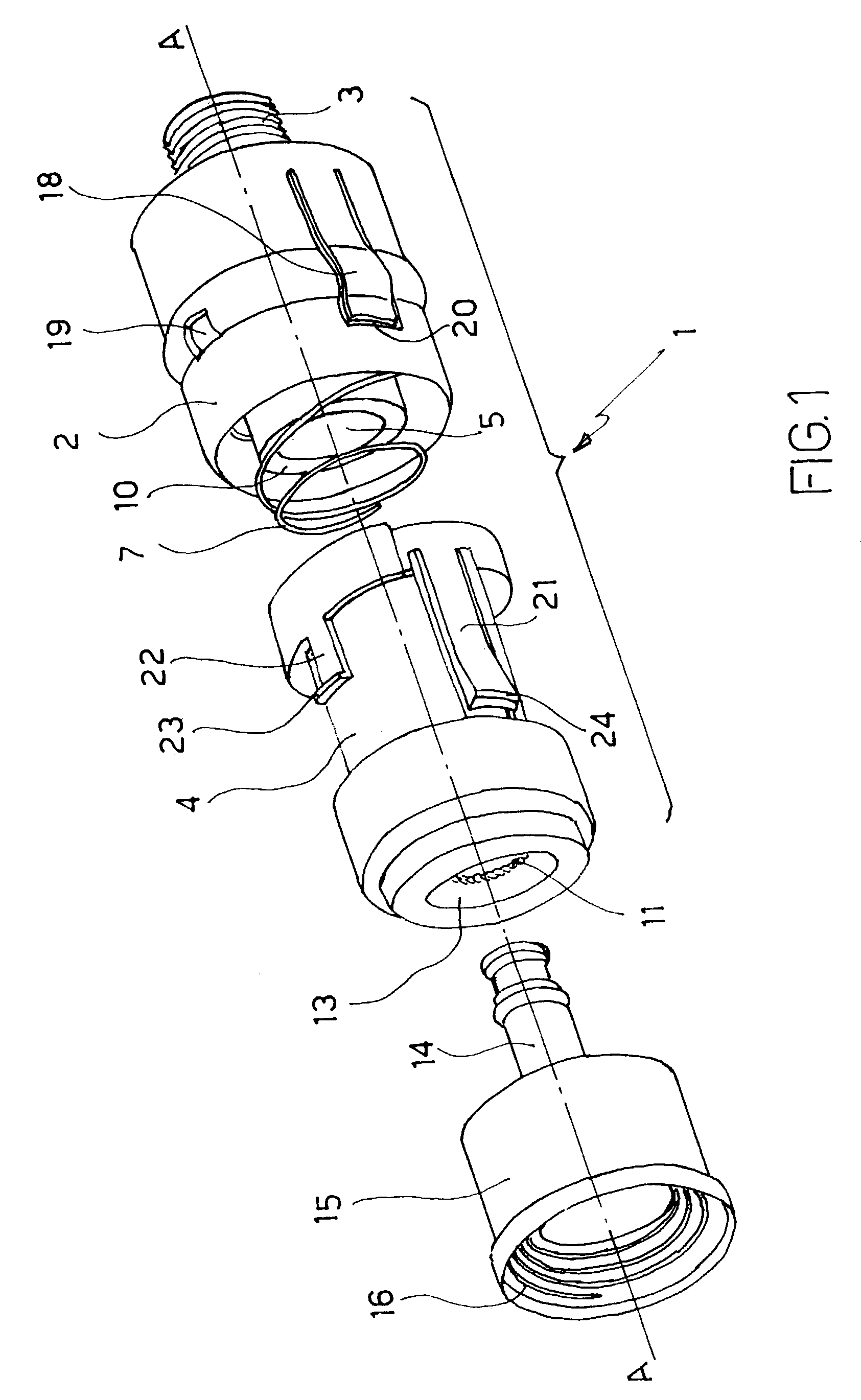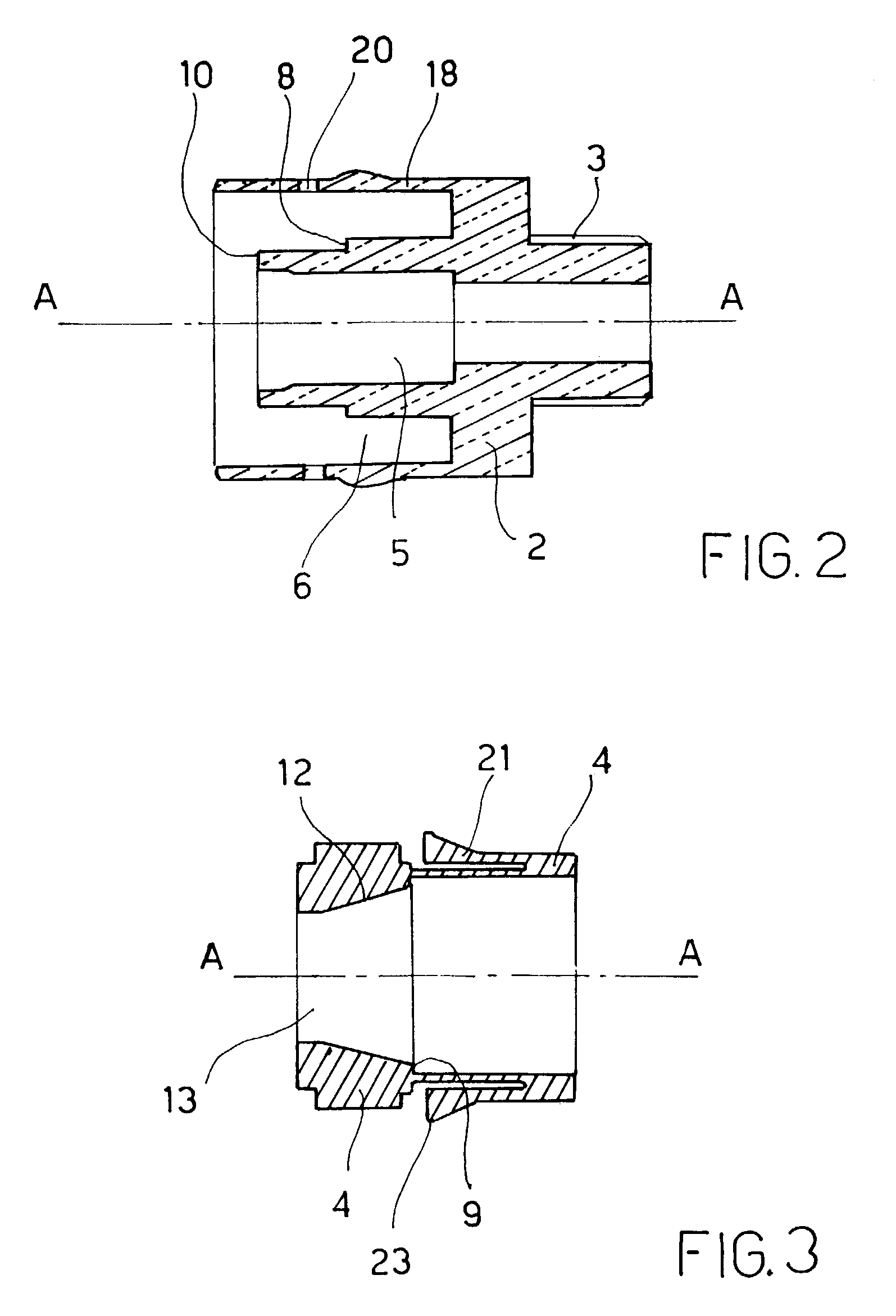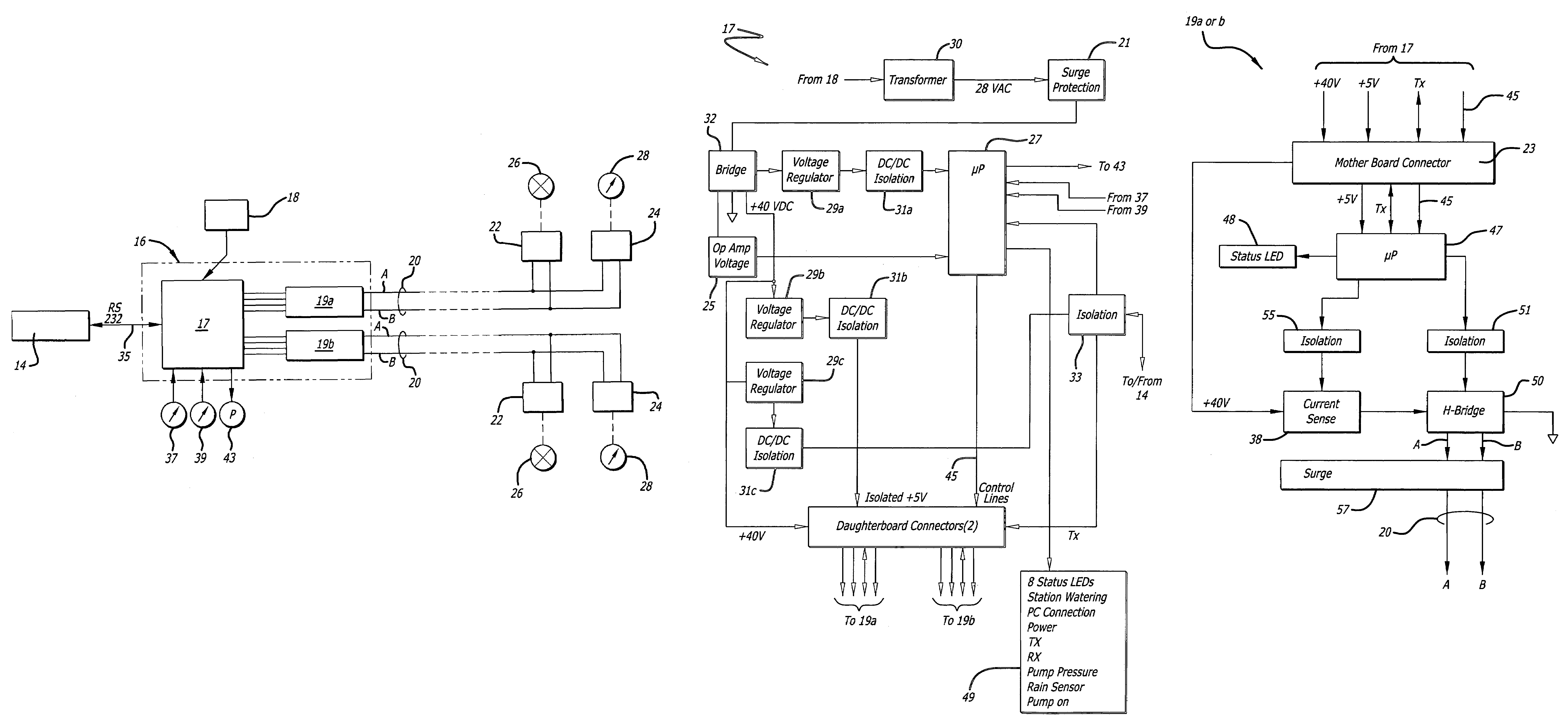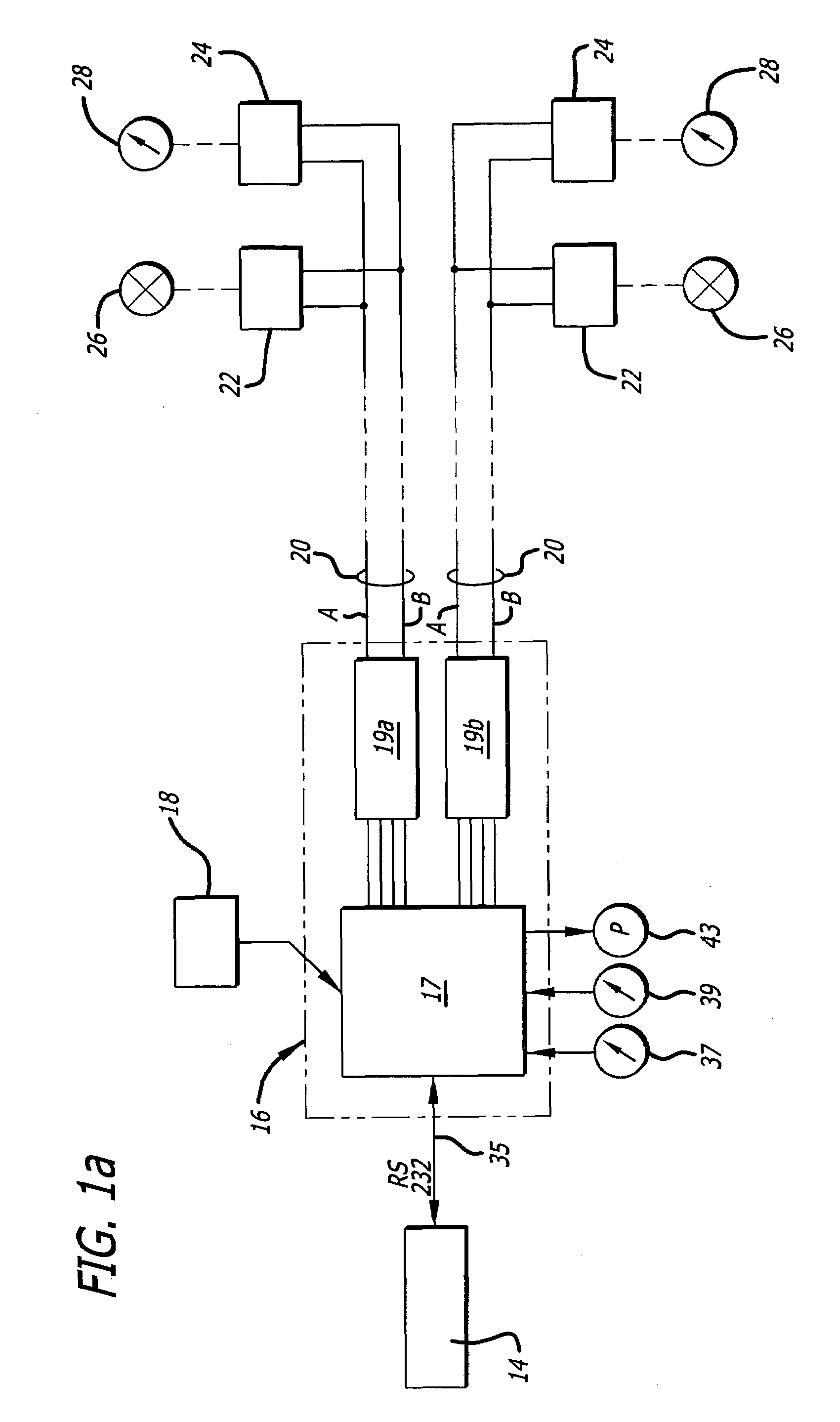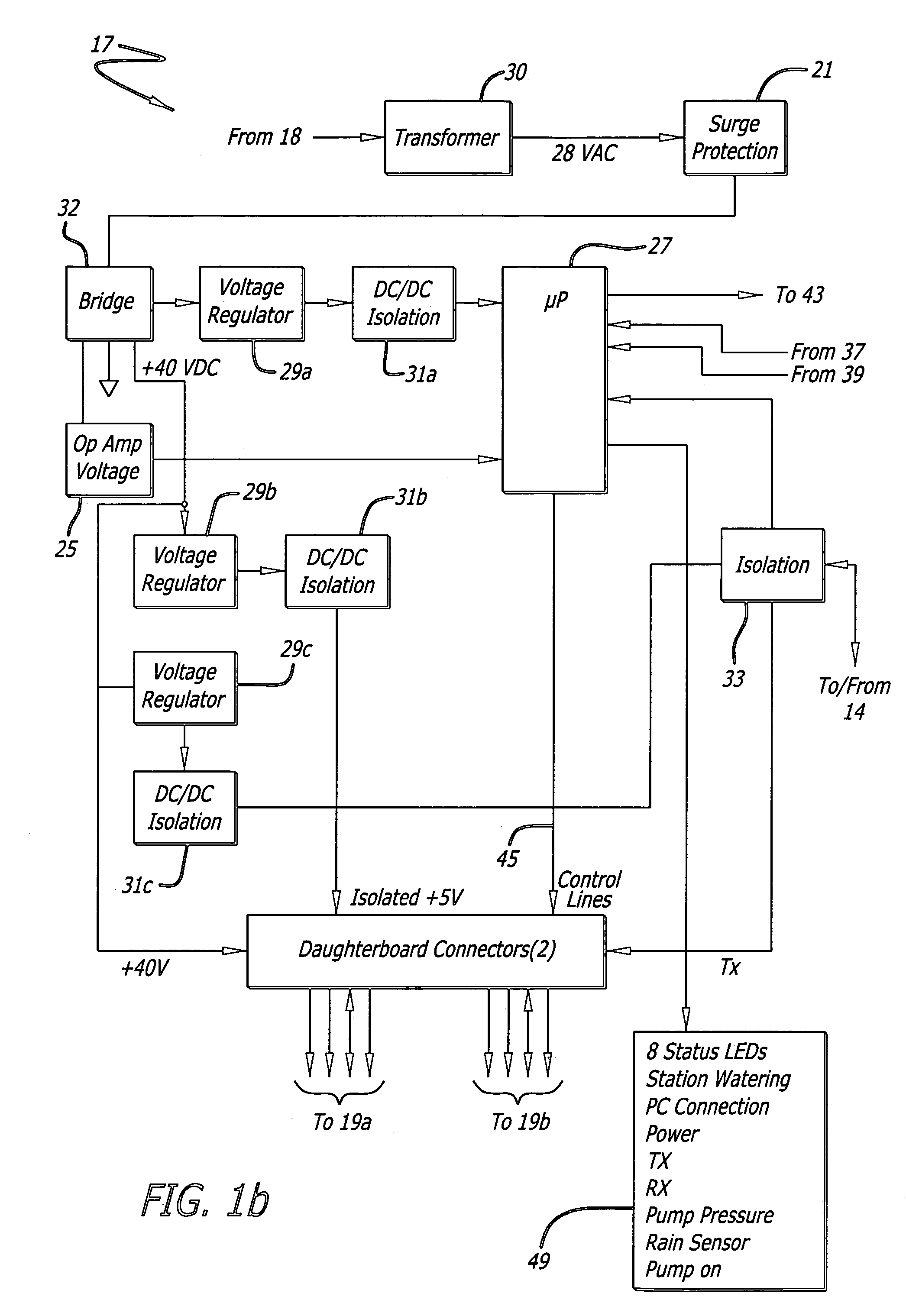Patents
Literature
Hiro is an intelligent assistant for R&D personnel, combined with Patent DNA, to facilitate innovative research.
1415 results about "Water irrigation" patented technology
Efficacy Topic
Property
Owner
Technical Advancement
Application Domain
Technology Topic
Technology Field Word
Patent Country/Region
Patent Type
Patent Status
Application Year
Inventor
In sprinkler or overhead irrigation, water is piped to one or more central locations within the field and distributed by overhead high-pressure sprinklers or guns. A system using sprinklers, sprays, or guns mounted overhead on permanently installed risers is often referred to as a solid-set irrigation system.
Circumferential medical closure device and method
A flexible medical closure screen device for a separation of first and second tissue portions is provided, which includes a mesh screen comprising tubular vertical risers, vertical strands with barbed filaments, and horizontal spacers connecting the risers and strands in a grid-like configuration. An optional perimeter member partly surrounds the screen and can comprise a perimeter tube fluidically coupled with the vertical risers to form a tubing assembly. Various input / output devices can optionally be connected to the perimeter tube ends for irrigating and / or draining the separation according to methodologies of the present invention. Separation closure, irrigation and drainage methodologies are disclosed utilizing various combinations of closure screens, tubing, sutures, fluid transfer elements and gradient force sources. The use of mechanical forces associated with barbed strands for repositionably securing separated tissues together is disclosed. The use of same for eliminating or reducing the formation of subcutaneous voids or pockets, which can potentially form hematoma and seroma effects, is also disclosed. Alternative embodiments of the invention have circumferential configurations for approximating and closing separated tissue portions such as tendons, nerves and blood vessels. Tissue closure methods include the steps of circumferentially applying a screen to separated tissue portions and penetrating the tissue portions with prongs.
Owner:3M INNOVATIVE PROPERTIES CO
Medical closure screen installation systems and methods
InactiveUS20050177190A1Easy to drainReduce and eliminate formationSuture equipmentsStaplesVertical tubeWater irrigation
A medical closure screen device for a separation of first and second tissue portions is provided, which includes a mesh screen comprising tubular vertical risers, vertical strands with barbed filaments, and horizontal spacers connecting the risers and strands in a grid-like configuration. An optional perimeter member partly surrounds the screen and can comprise a perimeter tube fluidically coupled with the vertical risers to form a tubing assembly. Various input / output devices can optionally be connected to the perimeter tube ends for irrigating and / or draining the separation according to methodologies of the present invention. Separation closure, irrigation and drainage methodologies are disclosed utilizing various combinations of closure screens, tubing, sutures, fluid transfer elements and gradient force sources. The use of mechanical forces associated with barbed strands for repositionably securing separated tissues together is disclosed. The use of same for eliminating or reducing the formation of subcutaneous voids or pockets, which can potentially form hematoma and seroma effects, is also disclosed. Further disclosed are alternative embodiment medical closure screen installation systems and methods.
Owner:3M INNOVATIVE PROPERTIES CO
Two-wire controlling and monitoring system for irrigation of localized areas of soil
InactiveUS6766221B1Good power deliveryElectric signal transmission systemsSelf-acting watering devicesMonitoring systemEngineering
A two-wire controlling and monitoring system for in particular irrigation of localized areas of soil according to a aspect of the invention comprises a water pipeline, a first plurality of controllable irrigation valves, a second plurality of field sensors measuring specific irrigation parameters, and a third plurality of localized irrigation control units. The third plurality of localized irrigation control units each comprises a sensor decoder connected to a specific field sensor of the second plurality of field sensors and / or a line decoder connected to a specific controllable irrigation valve of the first plurality of controllable irrigation valves. The two-wire controlling and monitoring system further comprises a controller and power supply unit having a set of schedules of instructions and supplying power by applying a first alternating DC voltage signal to a two-wire cable interconnecting the controller and power supply unit and the third plurality of localized irrigation control units. The two-wire cable provides the power from the controller and power supply unit to each of the third plurality of localized irrigation control units. The controller and power supply unit transmits the schedules of instructions to the third plurality of localized irrigation control units through the two-wire cable and receives the specific irrigation parameters from the third plurality of localized irrigation control units through the two-wire cable.
Owner:S RAIN CONTROL
Wireless sensor system for environmental monitoring and control
InactiveUS20080129495A1Increase rangeTransmission systemsWatering devicesLine sensorWireless transceiver
A wireless sensor system for providing irrigation control includes a multiple number of sensor nodes and a multiple number of actuator nodes. Each sensor node includes a wireless transceiver, a processor and a sensor device and provides sensor data. Each actuator node includes a wireless transceiver, a processor and an actuating circuit for driving at least one irrigation valve. In operation, a first sensor node communicates a message to a first actuator node through wireless communication. The message can contain sensor data or control commands. The first actuator node controls the at least one irrigation valve based on the message. Furthermore, the first sensor node can transmit messages to the first actuator node through other sensor or actuator nodes in the system where the other sensor or actuator nodes act as repeater for relaying the messages. The range of the wireless sensor system is thus extended.
Owner:DIGITAL SUN
System for controlling irrigation applications
InactiveUS20030179102A1Programme controlElectric signal transmission systemsWater irrigationComputer science
A system for controlling an irrigation system having a monitor for remotely monitoring and communicating irrigation related information in the system, a controller in communication with the monitoring means for receiving the information, processing the information to coding functional commands, and sending the information to the irrigation system, and a decoder in communication with the controller for decoding the coded signal at specific sites in the irrigation system and performing a function based upon the signal. A method for remotely controlling an irrigation system by providing the system with irrigation related information and remotely modulating the system based upon the irrigation related information. A software program for controlling an irrigation system, the program having a CPU for running the program and an algorithm for controlling the irrigation system.
Owner:BARNES ANDREW
Irrigation controller
An irrigation controller for selectively turning on and off a set of sprinkler valve stations. The irrigation controller is programmable by a user. The irrigation controller includes an irrigation control processor. The irrigation control processor includes an input port, an output port, a memory element for storing an irrigation control program and irrigation control parameters, the irrigation control program implementing a plurality of functionalities that are selectively enabled, a processing unit for executing the irrigation control program, and a bus connecting said processing unit to said memory element and to said input and output ports. An input device is interfaced with the input port. The output port is provided with interface with the sprinkler valve stations for controlling the turning on and off of the sprinkler valve stations. The input device cooperates with the control program to enable at least one specific functionality from the functionalities in response to a predetermined input being received from the user through the input device.
Owner:MILLER ROBERT
Device to remove kidney stones
The device to remove kidney stones is a medical retrieval basket device adapted to provide irrigation and suction to the region of the basket. The device includes a retrieval basket assembly having a sheath, an elongated member extending through the sheath, and a basket assembly coupled to the distal end of the elongated member, in a generally known arrangement. The retrieval basket assembly extends from a handle which provides suction and irrigation to, and through, the retrieval basket assembly. Fittings on the handle connect fluid and suction sources through fluid conduits within the handle to the sheath of the retrieval basket assembly. In one embodiment, the retrieval basket assembly's sheath has an expandable distal end portion that improves the retrieval basket assembly's ability to capture debris from lithotripsy of a stone.
Owner:GIST CHRISTOPHER W
Catheter with flexible pre-shaped tip section
ActiveUS7623899B2Improve security featuresImprove abilitiesMulti-lumen catheterDiagnostic recording/measuringVeinLeft atrium
A catheter for mapping and / or ablating continuous linear or circumferential lesions at the intersection of a generally flat structure, such as the left atrium, and the ostium of generally cavernous regions of the heart, including pulmonary vein and the pulmonary venous antrum, comprises a catheter body with an intermediate section that is connected to a tip assembly by a highly flexible section. The intermediate section has at its distal end a preformed section, e.g., a curve, the intermediate section being deflectable in a direction opposite to the curve. The highly flexible section presets the tip assembly at an off-axis and / or off-plane angles from the preformed section. Accordingly, the preformed section is adapted to sit in the region and the preset angles of the ablation assembly enable contact with surrounding tissue. A high bending modulus enables the flexible section absorb displacement force applied to the ablation assembly, such as when the tip assembly encounters uneven tissue surface, without displacing the curve from the region. The tip assembly can be irrigated as enabled by a plurality of irrigation ports, a coil electrode, and a porous covering to disperse fluid over the outer surface of the tip assembly.
Owner:BIOSENSE WEBSTER INC
Surgical Port With Embedded Imaging Device
Disclosed is a disposable access port for use in endoscopic procedures, including laparoscopic procedures. The access port includes a cannula with an embedded camera in communication with an external control box. In operation, a trocar is combined with the access port to facilitate insertion of the access port into an anatomical site. Prior to insertion, the camera is pushed inside the cannula, where it remains during insertion. The trocar is removed after the access port has been inserted to allow surgical instruments to access the anatomical site. During removal of the trocar, a portion of the trocar urges the camera out of the cannula, thereby allowing visualization of the anatomical site. The camera can be fixedly or adjustably mounted on the port. A camera may also be mounted on the trocar. The trocar may include irrigation and suction channels to facilitate a clear view of the anatomical site.
Owner:PSIP LLC
Laparoscopic apparatus for performing electrosurgical procedures
InactiveUS20070135812A1Surgical instruments for heatingSurgical instruments for aspiration of substancesControl signalPERITONEOSCOPE
A system and apparatus for irrigating a surgical site during an electrosurgical procedure are disclosed. The system includes a hand piece having an elongated housing connected to a multilumen tube extending proximally from the housing and having an irrigation tube for delivering irrigation fluid, a suction tube for withdrawing irrigation fluid, and electrical wiring, a first controls for adjusting flow of irrigation fluid within the irrigation tube and second controls for adjusting flow of irrigation fluid within the suction tube. A valve cassette is connected to the multilumen tube, which includes an irrigation valve configured to control the flow within the irrigation tube and a suction valve configured to control the flow within the suction tube. A hardware control module controls the irrigation valve and the suction valve based on control signals from the first and second controls.
Owner:COVIDIEN AG
Automatically Adjusting Irrigation Controller
Owner:RAIN BIRD CORP
Modular irrigation controller with separate field valve line wiring terminals
ActiveUS7289886B1Compact designEliminate failure problemsSelf-acting watering devicesWatering devicesTelecommunications linkLine tubing
A modular irrigation controller includes a processor capable of executing a stored watering program and controlling a plurality of removable station modules in accordance with the watering program. Each station module includes a station module circuit for opening and closing a plurality of values. A plurality of connectors can mate each mate to establish a communications link between the station modules and the processor. A plurality of terminals are each connectable with a corresponding one of a plurality of field valve lines from the valves. The terminals are mounted separate from the station modules and are connected to the connectors. This allows the irrigation controller to have a more compact design, provides connection terminals for spare field valve lines, and eliminates malfunctions due to erroneous re-connection of field valve lines during station module replacement.
Owner:HUNTER INDUSTRIES
Irrigation controller
InactiveUS20050171646A1Computer controlSelf-acting watering devicesProcessing elementWater irrigation
An irrigation controller for selectively turning on and off a set of sprinkler valve stations. The irrigation controller is programmable by a user. The irrigation controller includes an irrigation control processor. The irrigation control processor includes an input port, an output port, a memory element for storing an irrigation control program and irrigation control parameters, the irrigation control program implementing a plurality of functionalities that are selectively enabled, a processing unit for executing the irrigation control program, and a bus connecting said processing unit to said memory element and to said input and output ports. An input device is interfaced with the input port. The output port is provided with interface with the sprinkler valve stations for controlling the turning on and off of the sprinkler valve stations. The input device cooperates with the control program to enable at least one specific functionality from the functionalities in response to a predetermined input being received from the user through the input device.
Owner:MILLER ROBERT
Virtual dial irrigation controller
ActiveUS7225057B2Improve reliabilityImprove functionalitySelf-acting watering devicesWatering devicesLiquid-crystal displayWater irrigation
Owner:TORO CO THE
Method and system for transmitting and utilizing forecast meteorological data for irrigation controllers
An irrigation controller (101a, 101b) includes a receiver (105a, 105b) and a processor. The processor is configured to facilitate receiving, in accordance with the receiver, an indication of rainfall which is forecast to fall on one or more locations (109a, 109b). Further, the processor is programmed to determine a minimum allowable water level and an optimal water level at the locations (109a, 109b). The processor is also programmed to determine water available at the locations (109a, 109b). In addition, the processor is programmed to determine an amount of water to be delivered so that the water available and the forecast rainfall exceed the minimum allowable water level, and avoid exceeding the optimal water level.
Owner:SIGNATURE CONTROL SYST
Atraumatic arthroscopic instrument sheath
ActiveUS20050171470A1Eliminate needKeeping the surgical field clearGuide needlesSurgical needlesSurgical siteArthroscopy
A removable, resilient atraumatic sheath for arthroscopic instruments. The sheath covers sharp edges on the arthroscopic instrument, particularly the distal tip of the rigid cannula, and thereby protects tissue and objects near a surgical site from accidental trauma. The sheath may be provided in the form of an inflow / outflow sheath that allows a surgeon to irrigate and drain a surgical field without the use of a separate irrigation instrument.
Owner:PRISTINE SURGICAL LLC
Electrosurgical device with floating-potential electrode and methods of using same
ActiveUS20050234446A1Efficient heatingImprove detection efficiencySurgical instruments for heatingSurgical instruments for aspiration of substancesSurgical siteWater irrigation
Disclosed herein are improved, efficient electrosurgical probes suitable for tissue vaporization and cutting of tissue structures, more particularly for performing electrosurgical cutting, ablation (volumetric tissue vaporization), coagulating and / or modification within a body tissue, cavity or vessel or on the surface of a patient. The system and method of the present invention optionally include means for irrigation and / or aspiration of the surgical site and therefore may be used in relatively dry environments for, for instance, oral, otolaryngological, laparoscopic, and dermatologic procedures.
Owner:RF MEDICAL
Two-wire controlling and monitoring system for irrigation of localized areas of soil
InactiveUS20050004715A1Good power deliveryImprove corrosion resistanceWatering devicesCultivating equipmentsDrip irrigationMonitoring system
Owner:S RAIN CONTROL
Multiple function surgical device
InactiveUS20050171467A1Reduce the overall diameterSurgical scissorsBlunt dissectorsFiltrationSurgical site
A surgical device providing multiple functions including aspiration, irrigation, traction, filtration, dissection and compression of tissue, the surgical device comprising an elongate shaft having a proximal end and a distal end, a mobilization tip operatively attached at the distal end of the elongate shaft for manipulating tissue, and a valve assembly operatively connected to the proximal end of the elongate shaft for selectively delivering and removing an irrigation fluid to and from a surgical site through the elongate shaft. The surgical device is operable with one hand. The surgical device is dimensioned according to its use in either open or minimally invasive surgery. The mobilization tip comprises a traction-enhancing material formed of reticulated foam or from a woven or braided fabric. The mobilization tip further includes a porous filter for preventing biological matters from being inadvertently drawn into the aspiration holes or windows at the distal end of the elongate shaft.
Owner:LANDMAN JAIME
Apparatus and method for using a steerable catheter device
InactiveUS20050038412A1Great sensitivity and tactile feelHigh sensitivityGuide needlesGuide wiresMedicineWater irrigation
A handle includes a body portion and a handle portion which is slidably and rotatably mounted on the body portion. Shoulders on the body portion and the handle portion limit relative sliding movement of the body portion and handle portion. A catheter open at both ends has one end fixed to the handle portion for movement therewith, the opposite end of the catheter having a shape memory tip. A fitting is threadedly connected to an enlarged part of the body portion. A sheath is threadedly connected to the fitting and the catheter is slidable and rotatable within the sheath. An annular channel is provided between the sheath and the catheter, this channel being in fluid communication with a bore in the fitting. The outer end of the sheath has holes therethrough in fluid communication with the channel. An irrigation inflow and aspiration outflow tube is also in fluid communication with the bore in the fitting. A first lock is provided adjacent the fitting for controlling the amount of frictional resistance to lengthwise movement of the catheter relative to the sheath and to lock the catheter in position. A medical device such as an endoscope may be received within the catheter for movement relative thereto. A second lock is supported by the handle portion for locking a medical device in position relative to the catheter.
Owner:CYBERSONICS
Enhanced ablation and mapping catheter and method for treating atrial fibrillation
A catheter for ablating tissue is provided. The catheter comprises an elongated generally-tubular catheter body having proximal and distal ends. An electrode assembly is provided at the distal end of the catheter body. The electrode assembly including a porous electrode arrangement that is generally transverse to the catheter body. The porous electrode arrangement comprises one or more electrodes electrically connected to a suitable energy source and a porous sleeve mounted in surrounding relation to the one or more electrodes and defining an open space between the porous sleeve and the one more electrodes. One or more irrigation openings fluidly connect the open space to a lumen extending through the catheter through which fluid can pass. In use, fluid passes through the lumen in the catheter, through the one or more irrigation openings, into the open space and through the porous sleeve.
Owner:BIOSENSE WEBSTER INC
Wireless sensor and control transmitter system
InactiveUS20050137752A1Easy to implementImprove convenienceOperating means/releasing devices for valvesSelf-acting watering devicesLine sensorControl system
A wireless sensor and control transmitter system is provided for operating an irrigation or other hydraulic system. The system includes a master module unit hardwired to and in communication with the hydraulic system controller, and a field module unit that is hardwired to and in communication with field electromechanical control devices such as valves, solenoids and servo motors, and field sensors indicating, for example, atmospheric conditions. The master module unit and field module unit communicate with digital wireless communication and can act as a simple wireless bridge. The master module and field module units are capable of digitizing input signals from the devices to which they are hardwired and transmitting them to the opposite module; they are further capable of deciphering the digitized signals received to reproduce the original input signal and communicating it to the device to which it is hardwired. Supplemental functionality may be added to an existing hydraulic control system by including the WSCX and its system features of control and sensor functionality that may not otherwise be available in an existing controller system.
Owner:TECHSTREAMS CONTROL SYST AN ARIZONA
Fodder-growing enclosure
InactiveUS8234812B1Facilitate ready removalEasy to slideClimate change adaptationAgriculture gas emission reductionWater sourceEngineering
A transportable fodder production unit is disclosed that includes an insulated container having a front end and a rear end, a plurality of trays each having drain apertures through a bottom side thereof, a racking system for supporting each of the trays with a plurality of shelves extending from the front end of the container to the rear end of the container, an irrigation system attachable to a water source and having a water tank in fluid communication with a plurality of spray heads through a pump and a plurality of pipes, a lighting system that maintains a predetermined illumination within the container, a thermal control system that maintains the temperature inside the container within a predetermined temperature range, and a central control system for activating the other systems and maintaining electrical load balancing on a power source.
Owner:COLLESS TERRY +1
Irrigation control system
InactiveUS6850819B1Precise managementMinimise over irrigationWatering devicesFog dispersionControl systemRadar
An irrigation control system for land comprising: (a) at least one meter to measure one or more wheather conditions in a first area; (b) at least one monitor to (i) examine rainfall data derived from a radar scanning at least the first area according to predetermined criteria and (ii) to extract data which is representative of the scanned rainfall in a sub-area of the first area; (c) a store to store the extracted data; and (d) a controller connected directly or indirectly to the meter and the monitor and to the store, to calculate a moisture content value for the sub-area and a predetermined moisture content value for the sub-area, and to regulate the irrigation in a sub-area.
Owner:IRRIGATION CONTROL NETWORKS
Selectively Moveable Valve Elements for Aspiration and Irrigation Circuits
Various arrangements of fluidics systems are disclosed. In one arrangement, an aspiration circuit for a fluidics system is disclosed that selectively controls aspiration. The aspiration circuit comprises an aspiration line operatively connected to a surgical instrument, an aspiration exhaust line operatively connected to a waste receptacle; an aspiration vent line connected at a first end to the aspiration line; and a selectively variable vent valve operatively connected to the aspiration vent line. The variable vent valve may be selectively moved to vary aspiration pressure within the aspiration line. Other fluidics systems are disclosed that include a selectively positionable irrigation valve that may also be incorporated into a fluidics system that includes a variable vent valve.
Owner:ALCON INC
Two-wire control of sprinkler system
A control system and method for an automatic sprinkler system is disclosed. The automatic sprinkler system includes a first control line and a common line coupled to control a first valve. The control system includes a relay coupled in series with the common line, a sensing circuit coupled to detect the assertion and deassertion of the first valve, and a controller coupled to receive a control data. The controller provides a control signal to enable the relay based on the control data. In operation, the relay is turned on or off based on the control data for controlling the on / off duration of the first value. The relay may be incorporated in the sprinkler system. In one embodiment, the control system learns the programming of the sprinkler system by monitoring the common line to determine the start time, the duration, and the irrigation frequency of the first irrigation zone.
Owner:DIGITAL SUN
Ablation catheter with improved tip cooling
ActiveUS20070156131A1Cool evenlyMinimizing turbulent flowSurgical instruments for heatingSurgical instruments for irrigation of substancesWater irrigationCooling fluid
A catheter has a catheter body having an outer wall, proximal and distal ends, and at least one lumen extending therethrough. A tip section distal the catheter body includes an irrigated tip electrode and a segment of flexible tubing with at least one lumen therethrough. The tip electrode has a stepped profile which provides laminar flow (or at least minimizes turbulent flow and eddies) of irrigation / cooling fluid over its surface, which in turn provides more uniform cooling of the tip electrode, particularly where the tip electrode is elongated. In one embodiment, the tip electrode has a longitudinal axis, an outer ring surface generally perpendicular to the longitudinal axis, and an outer cylindrical surface extending distally from the outer ring surface along the longitudinal axis. Openings are provided in the outer ring surface to permit fluid (e.g., saline) to pass from an interior of the tip electrode to the outer ring surface and flow in a laminar manner over the cylindrical surface.
Owner:BIOSENSE WEBSTER INC
Traveling sprinkler incorporating automatic water supply valve docking station
ActiveUS7300004B2Easy alignmentEasy to operateWatering devicesMovable spraying apparatusDocking stationValve actuator
Owner:PROJECT 088
Fast coupling for irrigation systems, particularly domestic irrigation systems
The invention relates to fast couplings for connecting hoses, particularly for domestic irrigation. A fast coupling is formed by a first body and a second body reciprocally connected by inserting first lugs projecting from the second body in first slots made on the first body. A male connector is locked inside the fast coupling by radially pressing an end of the male connector with a torus-shaped elastic element. Unlocking the second body from the first body causes the automatic ejection of the mail connector.
Owner:FERRARI GROUP
Two-wire power and communications for irrigation systems
ActiveUS7358626B2Minimize power consumptionFunctional valve typesElectric signal transmission systemsElectrical polarityPulse sequence
A large number of irrigation system devices connected to a common two-wire cable can be powered and individually controlled from a central location by transmitting over the cable DC pulses of alternating polarity. Control information is conveyed by transmitting a command pulse train consisting of a series of pulses, separated by short no-power intervals, whose polarities indicate logic ones or zeros. Following a command pulse train, a selected watering station decoder acknowledges receipt of instructions by drawing current during a predetermined pulse of an alternating-polarity power pulse cycle, while a sensor decoder returns binary data by drawing current during one or the other of the alternating-polarity pulses of a series of power pulse cycles.
Owner:TORO CO THE
Features
- R&D
- Intellectual Property
- Life Sciences
- Materials
- Tech Scout
Why Patsnap Eureka
- Unparalleled Data Quality
- Higher Quality Content
- 60% Fewer Hallucinations
Social media
Patsnap Eureka Blog
Learn More Browse by: Latest US Patents, China's latest patents, Technical Efficacy Thesaurus, Application Domain, Technology Topic, Popular Technical Reports.
© 2025 PatSnap. All rights reserved.Legal|Privacy policy|Modern Slavery Act Transparency Statement|Sitemap|About US| Contact US: help@patsnap.com
